
|

Poultry Industry News
|
Stop Press
|
10/01/2025 |
|
 Seasonal Return of Avian Influenza Seasonal Return of Avian Influenza
As anticipated, avian influenza has returned to commercial turkeys and has impacted the first egg production complex of the fall season. Effective September 25th, there were twelve outbreaks in the Dakotas and Minnesota involving close to 750,000 growing turkeys and one large egg production complex of 3.1 million hens and 250,000 pullets in Wisconsin. Concurrently, USDA surveys have detected H5 avian influenza virus with a Eurasian genome in twelve states over the past thirty days. Of specific concern is the frequency of isolations from black vultures that now appear to be disseminators of the pathogen in addition to migratory waterfowl.
Although high levels of structural and operational biosecurity are advised, even the most stringent precautions will not provide absolute protection. Had the U.S. commenced preemptive vaccination of replacement pullets during the first quarter of 2025 during the period of winter losses we would have been in a more favorable position as we enter the fourth quarter of the year with the potential for losses.

|
Monthly Broiler Production Statistics, August-September 2024
|
09/28/2025 |
|
Broiler Chick Placements August-September-July 2025.
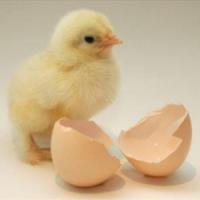
According to the September 24th 2025 USDA Broiler Hatchery Report, 1.239 million eggs were set over five weeks extending from August 23rd 2025 through September 20th 2025 inclusive. This was three percent higher compared to the corresponding period in 2024.
Total chick placements for the U.S. over the five-week period amounted to 971.0 million chicks. Claimed hatchability for the period averaged 79.7 percent for eggs set three weeks earlier. Each 1.0 percent change in hatchability represents approximately 1.94 million chicks placed per week and 1.84 million broilers processed, assuming five percent culls and mortality and within the current range of weekly settings.
Cumulative chick placements for the period January 7th through December 30th 2024 amounted to 9.67 billion chicks. For January 4th through September 20th 2025 chick placements attained 7.32 billion, up one percent from the corresponding week in 2024.
According to the September 22nd 2025 edition of USDA Chickens and Eggs, pullet breeder chicks hatched and intended for U.S. placement during August 2025 amounted to 8.24 million, down 5.3 percent (0.46 million pullet chicks) from August 2024 and 0.7 percent (61,000 pullet chicks) less than the previous month of July 2025. Broiler breeder hen complement attained 59.94 million on September 1st 2025, 2.5 percent (1.56 million hens) down from September 1st 2024 and 0.3 percent (180,000 hens) lower than August 1st 2025.
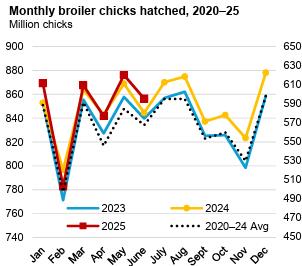
Broiler Production September 2025
As documented in the September 25th 2025 USDA Weekly Poultry Slaughter Reports for the processing week ending September 20th 2025, 175.0 million broilers were processed at 6.70 lbs. live. This was 2.5 percent more than the 170.8 million processed during the corresponding week in September 2024. Broilers processed in 2025 to date amounted to 6,242 million, 2.1 percent more than for the corresponding period in 2024.
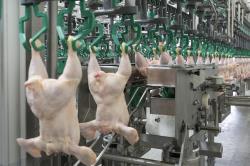
Ready to cook (RTC) weight for the most recent week in September was 903.0 million lbs. (410,462 metric tons). This was 3.8 percent more than the 870.0 million lbs. during the corresponding week in September 2024. Dressing percentage was a nominal 76.0 percent. For 2025 to date RTC broiler production attained 31,704 million lbs. (15.078 million metric tons). This quantity was 3.5 percent more than for the corresponding period in 2024.
The USDA posted live-weight data for the past week ending September 20th and YTD 2025 including:-
|
Live Weight Range (lbs.)
|
<4.25
|
4.26-6.25
|
6.26-7.25
|
>7.76
|
|
Proportion past week (%)
|
14
|
28
|
28
|
30
|
|
Change from 2020 YTD (%)
|
-8
|
+2
|
0
|
+11
|
September 2025 Frozen Inventory
According to the September 25th 2025 USDA Cold Storage Report, issued monthly, stocks of broiler products as of August 31st 2025 compared to August 31st 2024 showed differences with respect to the following categories:-
- Total Chicken category attained 790.9 million lbs. (359.5 thousand metric tons) corresponding to approximately one week of production based on recent weekly RTC output. The August 2025 inventory was up 4.3 percent compared to 758,551 million lbs. (344.8 thousand metric tons) on August 31st 2024 and up 1.9 percent from the previous month of July 2025.
- Leg Quarters were down 9.0 percent to 56.9 million lbs. compared to August 31st 2024 consistent with the data on exports. Inventory was up 2.0 percent from July 31st 2025. Given the trend in inventory of leg quarters it is evident that this category continues to be shipped in varying quantities as the principal (96 percent) chicken export product to a number of nations with the top five importers representing 51.1 percent of the January-July 2025 export total of 1,768,136 metric tons of chicken parts. The top ten importing nations represented 66.5 percent of broiler exports with Mexico was the leading importer followed by Cuba Taiwan, the Philippines, and Canada.
- The Breasts and Breast Meat category was up 17.1 percent from August 31st 2024 to 240.5 million lbs. indicating a relatively lower domestic consumer demand for this category despite concern over inflation in the cost of alternative proteins. August 31st 2025 stock was 1.1 percent lower than on July 31st 2025. The trend through the first eight months of 2025 suggests stable but low retail and food service demand for the white meat category. This is despite promotion of chicken sandwiches and wraps by QSRs in the face of a higher cost for beef coupled with an increasing pattern of eat-at-home consumption.
- Total inventory of dark meat (drumsticks legs, thighs and thigh quarters but excluding leg quarters) on August 31st 2025 decreased 2.9 percent from August 31st 2024 to 60.9 million lbs. This difference suggests an increase in domestic demand for lower-priced dark meat against the prevailing price of white chicken meat. Higher prices for competitive proteins offer an opportunity to increase domestic demand for this category with innovative product development and promotion.
- Wings showed a 7.2 percent decrease from August 2024, contributing to a stock of 55.4 million lbs. Inventory of wings was 5.7 percent higher compared to July 2025. Movement in stock over the past 12 months has demonstrated lower demand for this category due in part from competitive “boneless wings.” Increased consumption traditionally associated with significant sports events including the College and Super Bowls reduced the volumes of storage in January and February 2025. The progressive increase in unit price during 2024 plateaued in 2025 due to consumer fatigue and competition from competing protein snacks despite continued interest in professional and collegiate football.
- The inventory of Paws and Feet was 4.7 percent higher than on August 31st 2024 to 29.9 million lbs. Stock was was 9.6 percent higher than on July 31st 2025. Prior to the April 2020 Phase-1 Trade Agreement approximately half of the shipments of paws and feet destined for Hong Kong were landed and transshipped to the Mainland, a trend that is re-emerging.
- The Other category comprising 330.0 million lbs. on August 31st 2025 was down 1.0 percent from August 2024 but represented a substantial 41.7 percent of inventory. The high proportion of the Other category suggests further classification or re-allocation by USDA to the designated major categories.
August 2025 Processed Broiler Production
The USDA Poultry Slaughter Report released on September 25th 2025 covered August 2025 comprising 21 working days, one less than August 2024. The following values were documented for the month:-
- A total of 797.2 million broilers were processed in August 2025, down 17.1 million or 2.1 percent from August 2024;
- Total live weight in August 2025 was 5,304 million lbs., down 38.7 million lbs. or 0.7 percent from August 2024;
- Unit live weight in August 2025 was 6.65 lbs., up 0.09lb. (1.4 percent) from August 2024.
- RTC in August 2025 attained 4,021 million lbs., down 17.8 million lbs. or 0.4 percent from August 2004.
- WOG yield in August 2025 was 75.8 percent, up from 75.6 percent in August 2024.
- The proportion marketed as chilled in August 2025 comprised 93.4 percent of RTC output compared to 93.6 percent in August 2024.
- Ante-mortem condemnation as a proportion of live weight attained 0.19 percent during August 2025 unchanged from 0.19 percent in August 2024.
- Post-mortem condemnations as a proportion of processed mass corresponded to 0.43 percent during August 2025 compared to 0.44 percent in August 2024.
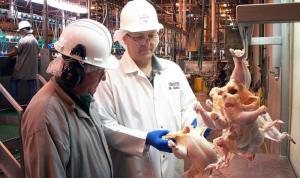
Comments
Mexico has recognized the OIE principle of regionalization after intensive negotiations between SENASICA and the U.S. counterpart, USDA-APHIS assisted by USAPEEC. Provided importing nations adhere to OIE guidelines on regionalization, localized outbreaks of avian influenza or possibly Newcastle disease will affect exports only from states or counties with outbreaks in commercial flocks. The response of China, Japan and some other nations is less predictable with bans placed on a nationwide or statewide basis. The response by China to outbreaks is influenced more by self-interest than considerations of scientific fact or international trade obligations. Other importing nations have confined restrictions to counties following the WOAH principle of regionalization. The challenge facing the U.S. as the second largest exporting nation after Brazil, will be to gain acceptance for controlled vaccination against HPAI in specific industry sectors and regions with appropriate surveillance and certification to the satisfaction of importing nations.

|
U.S Broiler Chick Production-By the Numbers
|
09/25/2025 |
|
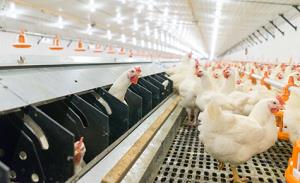 The following production data reflecting calendar month was summarized from the September 23rd 2025 edition of the USDA Chickens and Eggs-: The following production data reflecting calendar month was summarized from the September 23rd 2025 edition of the USDA Chickens and Eggs-:
- August 2025 broiler hatching egg production was 1,186 million, down 2.5 percent from August 2024.
- August 2025 broiler hatch was 878.6 million, up 0.4 percent from August 2024.
- January to August 2025 cumulative broiler hatch was 6,853 million, up 0.6 percent compared to the first eight months of 2025.
- September 1st 2025 broiler hatching eggs in incubators attained 748.5 million, up 1.0 percent from September 1st 2024.
- August 2025 U.S. Broiler parent pullets placed amounted to 8.2 million, down 5.3 percent from August 2024.
- September 1st 2025 broiler parent hen population was 59.9 million, down 2.5 percent from September 1st 2024.
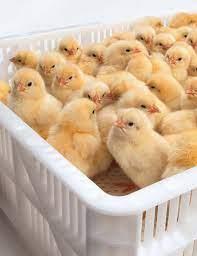  The take-away from the September report is a transitory reduction in the national breeder flock consistent with improved hatch. The U.S. Industry responds to prevailing domestic and export demand by selecting appropriate capacity in relation to price for a broad range of products The take-away from the September report is a transitory reduction in the national breeder flock consistent with improved hatch. The U.S. Industry responds to prevailing domestic and export demand by selecting appropriate capacity in relation to price for a broad range of products

|
Interview with Erik Visser, CEO of Hamlet Protein
|
09/25/2025 |
|
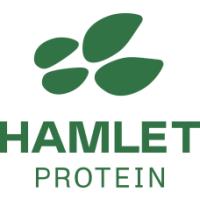 Hamlet Protein was founded in 1989 in Denmark to improve the inherent nutritional quality of soybean meal, specifically for immature livestock. The company has continuously emphasized scientific research as a basis for marketing to young animal nutrition solutions for calves, piglets, chicks and poults. Hamlet Protein has developed unique, patented mild temperature enzymatic treatment that results in a feed ingredient with enhanced nutritional quality. Hamlet Protein was founded in 1989 in Denmark to improve the inherent nutritional quality of soybean meal, specifically for immature livestock. The company has continuously emphasized scientific research as a basis for marketing to young animal nutrition solutions for calves, piglets, chicks and poults. Hamlet Protein has developed unique, patented mild temperature enzymatic treatment that results in a feed ingredient with enhanced nutritional quality.
Hamlet Protein partners with feed mills, integrators and farmers, initially in the E.U. but since globally with a production facility located in Findlay, OH and a sales office in China. Hamlet Protein is guided by the principle that healthy profits are derived from healthy animals.
Hamlet Protein scientists collaborate with reputable universities and research centers around the world, and technical representatives cooperate with customers in conducting trials and sharing knowledge.
Recently CHICK-NEWS had the opportunity to discuss world trends in livestock production with CEO Erik Visser who has occupied the position since 2019 and has contributed to expansion of the Company footprint from the EU to include U.S. production and distribution
CHICK-NEWS: Erik, please provide an overview of the current state of World livestock production.
EV: Expansion and profitability will depend strongly on global geopolitical events. There is obvious a disruption resulting from the volatile tariff situation and a clear concern on a further destabilization of global trade. GDP growth in the E.U. is slowing and China – traditionally an import-export market for animal protein and feed ingredient producers - will face head-winds if exports are disrupted.
This said, poultry and aquaculture will be the clear winners in 2026. There will be limited growth in swine production and there are evident problems with beef including restoration of the North American herd and the emergence of New World Screwworm infestation north of the Panama Canal.
CHICK-NEWS: Livestock profitability will be dependent on consumer demand that in turn is influenced by prevailing economic conditions. Your views?
EV: Global real GDP growth is forecast at 3.2 percent over 2025 similar to 2024 but still below the pre-COVID years. Inflation is abating but tariffs are likely to impact this trend. Political developments in main European economies Germany and France will dominate the direction of progress for the EU.
Real GDP growth is expected to recover in Latin America. In contrast Asia remains a bright spot with growth projected at over 5.1 percent.
CHICK-NEWS: Feed is the principal cost in livestock production. What do you envisage for the coming year?
EV: Ukraine as a major exporter continues to supply commodities despite ongoing hostilitiesHamlet Protein expects feed costs to remain relatively stable given this year’s bountiful crops in all producing areas including the Americas.
CHICK-NEWS: Hamlet Protein uses soybean meal as its major input. Do you envisage any shortages?
EV: Brazil is the world's top producer with more than 50 percent of total production emanating from that country and its neighbors, followed by North America with 30 percent of global production.
With record crops in most production areas and reduced demand from China, prices will remain at a moderate level consistent with a plentiful supply.
In the event of a trade war between the U.S. and China, exports from the U.S. will be curtailed although alternative markets may develop. This is good news for the livestock sector.
CHICK-NEWS: Do you envisage other factors influencing production and profitability in the coming year?
EV: Sustainability is a crucial focus especially in the E.U. but is now less prominent in the U.S. policy making. The same could be said of welfare and worker rights. Agriculture is restrained in Europe as a result of ESG regulations despite a further delay in implementing proposed deforestation regulations.
Artificial intelligence has yet to make an impression on livestock production although technologies are under evaluation albeit with limited implementation. The restraint comprises a lack of reliable data to train AI algorithms.
CHICK-NEWS: Do you have any final messages for your constituency?
EV: We believe that attracting the younger generation to livestock production and processing will be critical to the future of all livestock segments of the industry.

With increasing regulations, especially relating to antibiotics, and ongoing financial pressures, efficiency in production must match genetic potential. Accordingly providing young livestock with appropriate diets that are readily digestible to improve feed conversion efficiency will be necessary to maintain profitability.
Hamlet Protein has strong market shares in North America, Europe and Asia and the company footprint will be extended to Latin America, the Middle East and Africa in the coming year. Research on protein kinetics will continue driving the growth and profitability of our diverse client base.

|
HP AviStart Supercharges Early Broiler Growth
|
09/25/2025 |
|
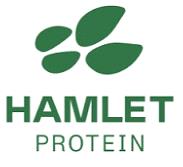 Introduction Introduction
HP AviStart was developed by Hamlet Protein based on subjecting selected high-quality soybean meal to a unique patented enzymatic and heat process. Inclusion of HP AviStart in pre-starter and starter diets, promotes digestion and absorption of amino acids in the immature chick and poult’s intestinal tract, promoting growth that is measurable at harvest. Processing of soybean meal to produce HP AviStart sharply reduces anti-nutritional factors. With benefits to feed conversion efficiency and the integrity of foot pads. The combination of enzymatic treatment at moderate temperatures, facilitates rapid digestion of protein and absorption of amino acids along the proximal small intestine, compared to non-processed soybean meal.
The Science Supporting HP AviStart
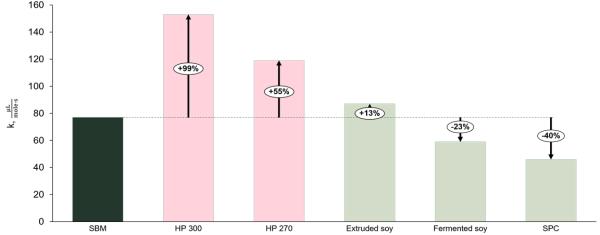 |
One of the mechanisms of action of HP AviStart can be measured by applying protein kinetics, which quantifies the speed of digestion of protein in the different intestinal segments, establishes the site at which amino acids are absorbed, and finally demonstrates their level in the portal circulation - ready for tissue deposition. Protein quality is traditionally evaluated by its digestibility. This parameter quantifies residual undigested protein at the termination of the ileum. The speed of digestion, the rate of amino acid absorption and the site within the small intestine are not considered when determining the digestibility coefficient. A rapid rate of protein digestion is an important factor in attaining feed conversion efficiency, especially during the first ten days of growth when the digestive tract is immature and is increasing in size disproportionately to deposition of muscle tissue. The speed of protein degradation can be measured in vitro from the hydrolysis constant, which is determined indirectly by pH titration under controlled incubation in the presence of proteolytic enzymes over a two-hour period.
The difference in the kinetics of protein digestion and subsequent absorption of constituent amino acids among conventional feed-grade soybean meal and alternative protein sources demonstrates the beneficial effects of enzymatic processing under controlled mild heat. It is evident from the following figure that HP AviStart is absorbed at a faster rate than conventional soybean meal characterizing the product as a “fast protein”.
Enzymatic processing in the presence of heat over a defined period as applied by the Hamlet Protein process inactivates anti-nutritional factors. Although trypsin inhibitor is usually inactivated by solvent extraction with flash evaporation, crushing plants may either under- or over- process soybean meal with deleterious effects on growth rate. Heat processing does not generally degrade or inactivate other anti-nutritional factors including galacto-oligosaccharides including stachyose and raffinose. These compounds contribute to fermentation in the terminal intestinal tract, and provoke inflammation of the mucosa, leading to dysbacteriosis, and predisposing to a range of intestinal conditions including clostridial necrotic enteritis
|
Anti-nutritional factor
|
Mean of n=180
|
|
Trypsin inhibitor mg/g
|
3.5
|
|
Stachyose g/kg
|
63.9
|
|
Raffinose g/kg
|
10.9
|
|
Beta conglycinin ppm
|
15x103 to 150x103
|
ANTI-NUTRITIONAL FACTORS IN U.S. SOYBEAN MEAL
Scientific trial
Inclusion of HP AviStart in a broiler starter diet at five percent over a ten-day period resulted in a four percent increase in live weight, representing a statistically significant (p ? 0.05) increase compared to controls receiving an isonitrogenous diet incorporating conventional soybean meal. The increase in live weight was attributed to deposition of muscle tissue as a result of more efficient digestion due to the availability of amino acids from HP AviStart, classified as a ‘fast protein’. This presumption is supported by increased trypsin activity throughout the intestinal tract and higher jejunal mRNA expression of transporters of peptides and amino acids. These observations are correlated with elevated levels of amino acids in the portal vessels supplying the liver, compared to controls receiving conventional soybean meal.
Financial appraisal of HP AviStart
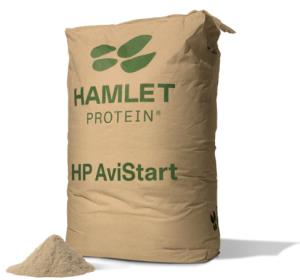 To determine the potential benefit of adding HP AviStart to a broiler pre-starter or starter diet, realistic assumptions were included in the following projection: To determine the potential benefit of adding HP AviStart to a broiler pre-starter or starter diet, realistic assumptions were included in the following projection:
- The cost of 48 percent soybean meal is $300 per tonThe cost of HP AviStart is around to $800 per ton
- Conventional starter diet contains 27 percent soybean meal
Then:
The contribution to diet cost of soybean meal at this inclusion level is $81 per ton.
If HP AviStart displaces soybean meal at an inclusion level of five percent of the diet, the combined cost per ton would be:
22 percent soybean meal, amounting to $66
5 percent HP AviStart, amounting to $40
Cost of combination $106 per ton
Differential as a result of the inclusion of HP AviStart is equivalent to an increase of $25 per ton or 1.25 cents per lb.
In the field:
Projected feed consumption over the first ten days will be 0.57 lb. The incremental cost of HP AviStart inclusion will be 0.71 cents per bird
- Assume a live weight of 6.5 lb. at harvest
- With a standard WOG 75 percent yield, 4.9 lb. of RTC will be attained per bird
Each 1 percent improvement in live weight represents 0.05 lb./bird
- Assume RTC value after primary processing at $1.00 per lb.
1 percent improvement in growth is equivalent to 5 cents in incremental value
The Benefit to Cost ratio with each 1 percent improvement is therefore 5/0.7 or 7.1
By applying proportionality, a 2 percent increase would generate a 14.2:1 ratio, a 3 percent improvement, a 21.2:1 ratio and the determined 4 percent results in a Benefit to Cost ratio of 28.4:1
Proportionately higher growth rates and improvements in feed conversion efficiency can be attained by increasing the inclusion of HP AviStart, representing a “fast protein” with low levels of anti-nutritional factors. The calculation does not take into account the beneficial effect of improved footpad quality, contributing to incremental revenue as an export product.
HP AviStart is positioned as an ingredient with attributes supported by demonstrated biological mechanisms relating to rapid and efficient absorption of amino acids and diminished effects of anti-nutritional factors. The in vitro studies involving protein kinetics are supported by controlled trials demonstrating an improvement in live weight at harvest, approximating four percent, compared to controls receiving conventional corn-soybean meal diets.

|
USPOULTRY Foundation Selects Topics for Research
|
09/25/2025 |
|
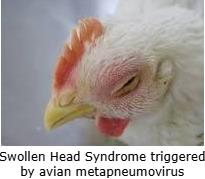 According to a September 22nd release, USPOULTRY and the associated Foundation have suggested topics in their solicitation for research funding. The Board Research Initiative has highlighted the following diseases:- According to a September 22nd release, USPOULTRY and the associated Foundation have suggested topics in their solicitation for research funding. The Board Research Initiative has highlighted the following diseases:-
- Control of histomoniasis (“blackhead”) in turkeys and chickens
- Control of turkey coronavirus (TCV)
- Developing effective vaccination strategies for avian metapneumovirus
Requests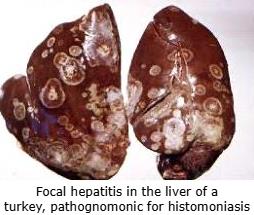 for proposals released by USPOULTRY and also the USDA reflect emerging and ongoing diseases and conditions of clinical and economic importance in the poultry industry. for proposals released by USPOULTRY and also the USDA reflect emerging and ongoing diseases and conditions of clinical and economic importance in the poultry industry.
|
Brought to you by Hamlet Protein
|
09/24/2025 |
|
 This special edition is sponsored by Hamlet Protein, manufacturers of HP AviStart a soybean meal product subjected to a patented multi-stage enzymatic treatment at mild temperature. The product incorporated at five percent or higher to chick and poult diets displacing conventional soybean meal over the first ten days post-hatch enhances growth rate and feed conversion efficiency as detailed in the featured article. This special edition is sponsored by Hamlet Protein, manufacturers of HP AviStart a soybean meal product subjected to a patented multi-stage enzymatic treatment at mild temperature. The product incorporated at five percent or higher to chick and poult diets displacing conventional soybean meal over the first ten days post-hatch enhances growth rate and feed conversion efficiency as detailed in the featured article.
This edition presents current industry statistics on broiler production including export data, a projection for 2026, a summary of recent USDA-FAS GAIN reports and a commentary on the non-viability of vegetable-based alt-meat as exemplified by the Q2 results posted by Beyond Meat Inc.
View the Findlay OH plant tour: https://www.youtube.com/watch?v=o68Elk4qWTI
|
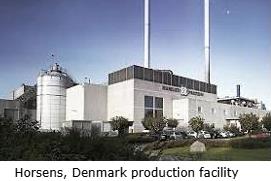 |
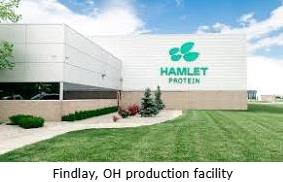
|
|
U.S. Broiler and Turkey Exports, January-July 2025
|
09/23/2025 |
|
 OVERVIEW OVERVIEW
Total exports of bone-in broiler parts and feet during January-July 2025 attained 1,768,136 metric tons, 7.0 percent lower than in January-July 2024 (1,900,254 metric tons). Total value of broiler exports increased by 0.5 percent to $2,654 million ($2,642 million).
Total export volume of turkey products during January-July 2025 attained 104,448 metric tons, 15.6 percent less than in January-July 2024 (123,778 metric tons). Total value of turkey exports increased by 12.9 percent to $316 million ($368 million).
Average unit price attained by the broiler industry is constrained by the fact that leg quarters comprise over 96 percent of broiler meat exports by volume (excluding feet). Leg quarters represent a relatively low-value undifferentiated commodity lacking in pricing power. Exporters of commodities are subjected to competition from domestic production in importing nations. Generic products such as leg quarters are vulnerable to trade disputes and embargos based on real or contrived disease restrictions. To increase sales volume and value the U.S. industry will have to become more customer-centric offering value-added presentations with attributes required by importers. Whether this will increase margins is questionable given that leg quarters are regarded as a by-product of broiler production. A more profitable long-term strategy for the U.S. industry would be to develop products using dark meat to compete with and displace pork and beef in the domestic retail and institutional markets. Due to a shortage and hence high price for beef presentations this opportunity is now evident.
HPAI is now accepted to be panornitic affecting the poultry meat industries of six continents with seasonal and sporadic outbreaks. The incidence rate and location of cases in the U.S. has limited the eligibility for export from many plants depending on restrictions imposed by importing nations. Incident cases in the U.S. have now resumed after a three month hiatus but a resurgence is anticipated during the Fall.
Uncertainty surrounding tariff policy is an added complication potentially impacting export volume in 2025. In the event of reduced exports, leg quarters would be diverted to the domestic market resulting in a depression in average value derived from a processed bird.
To offset an anticipated decline in exports of U.S. agricultural products the USDA will make available $285 million during 2026 for trade promotion including trade reciprocity missions and credit guarantees under the GSM-102 program.
EXPORT VOLUMES AND PRICES FOR BROILER MEAT
The following table prepared from USDA data circulated by the USAPEEC, compares values for poultry meat exports during January-July 2025 compared with the corresponding months during 2024:-
|
PRODUCT
|
Jan.-July 2024
|
Jan.-July 2025
|
DIFFERENCE
|
|
Broiler Meat & Feet
|
|
|
|
|
Volume (metric tons)
|
1,900,254
|
1,768,136
|
-132,118 (-7.0%)
|
|
Value ($ millions)
|
2,642
|
2,654
|
+12 (+0.5%)
|
|
Unit value ($/m. ton)
|
1,390
|
1,501
|
+111 (+8.0%)
|
|
Turkey Meat
|
|
|
|
|
Volume (metric tons)
|
123,748
|
104,448
|
-19,300 (-15.6%)
|
|
Value ($ millions)
|
368
|
416
|
+48 (+13.6%)
|
|
Unit value ($/m. ton)
|
2,973
|
3,983
|
+1.010 (+34.0%)
|
COMPARISON OF U.S. CHICKEN AND TURKEY EXPORTS
JANUARY-JULY 2025 COMPARED TO 2024
BROILER EXPORTS
Total broiler parts, predominantly leg quarters but including feet, exported during January-July 2025 compared with the corresponding months in 2024 declined by 7.0 percent in volume but value was up 0.5 percent. Unit value was 8.0 percent higher to $1,501 per metric ton.
 During 2024 exports attained 3,251,000 metric tons valued at $4,689 million, down 10.5 percent in volume and down 1.1 percent in value compared to 2023. Unit value was up 10.7 percent to $1,442 per metric ton During 2024 exports attained 3,251,000 metric tons valued at $4,689 million, down 10.5 percent in volume and down 1.1 percent in value compared to 2023. Unit value was up 10.7 percent to $1,442 per metric ton
Broiler imports in 2025 are projected to attain an inconsequential 67,000 metric tons (134 million lbs.) compared to 82,000 metric tons (180,000 million lbs.) in 2024
The top five importers of broiler meat represented 51.1 percent of shipments during January-July 2025. The top ten importers comprised 66.5 percent of the total volume reflecting concentration among the significant importing nations.
Eighth-ranked China declined 51.9 percent in volume to 50,717 tons and concurrently by 29.8 percent in value to $165 million over the first seven months of 2025 compared to the corresponding period in 2024. Unit value increased by 45.6 percent to $3,246 per metric ton reflecting the high proportion of feet in consignments
Nations gaining in volume compared to the corresponding period in 2024 (with the percentage change indicated) in descending order of volume with ranking indicated by numeral were:-
3. Taiwan, (+8%); 4. Philippines, (+43%); 5. Canada, (+22%); 10. Haiti, (+31%); 11. Ghana, (+24%); 12, Dominican Rep., (+1%) and 16. Congo-Kinshasa), (+171%)
Losses during January-July 2025 offset the gains in exports with declines for:-
1. Mexico, (-2%); 2. Cuba, (-8%); 6. Guatemala, (-1%); 7. Viet Nam, (-20); 8. China, (-52%); 9. Angola, (-23%); 12. UAE, (-33%); 14. Georgia, (-4%) and Hong Kong, (-44%).
TURKEY EXPORTS
The volume of turkey meat exported during January-July 2025 declined by 15.6 percent to 104,448 metric tons from January-July 2024 but value was 13.6 percent higher at $416 million. Average unit value was 34.0 percent higher at $3,983 per metric ton.
Imports of turkey products attained 15,000 metric tons (33 million lbs.) in 2024 with a similar projection for 2025.
It is important to recognize that exports of chicken and turkey meat products to our USMCA partners amounted to $1,264 million in 2021, $1,647 million during 2022, $1,696 in 2023 and $1,204 million over the first seven-months of 2025. It will be necessary for all three parties to the USMCA to respect the terms of the Agreement in good faith since punitive action against Mexico or Canada on issues unrelated to poultry products will result in reciprocal action by our trading partners to the possible detriment of U.S. agriculture. This is especially important as all three nations have recently elected chief executives and administrations.
The emergence of H5N1strain avian influenza virus with a Eurasian genome in migratory waterfowl in all four Flyways of the U.S. during 2022 was responsible for sporadic outbreaks of avian influenza in backyard flocks and serious commercial losses in egg-producing complexes and turkey flocks but to a lesser extent in broilers. The probability of additional outbreaks of HPAI over succeeding weeks appears likely with recorded outbreaks in turkey farms in ND, SD and MN. Consistent with fall migration of waterfowl. Incident cases affecting egg-production and turkey flocks will be a function of shedding by migratory and domestic birds and possibly free-living mammals or even extension from dairy herds. Protection of commercial flocks at present relies on the intensity and efficiency of biosecurity including wild-bird laser repellant installations, representing investment in structural improvements and operational procedures. These measures are apparently inadequate to provide absolute protection, suggesting the need for preventive vaccination in high-risk areas for egg-producing, breeder and turkey flocks.
The application of restricted county-wide embargos following the limited and regional cases of HPAI in broilers with restoration of eligibility 28 days after decontamination has supported export volume for the U.S. broiler industry. Exports of turkey products were more constrained with plants processing turkeys in Minnesota, the Dakotas, Wisconsin and Iowa impacted. The future challenge will be to gain acceptance for limited preventive vaccination of laying hens and turkeys in high-risk areas accompanied by intensive surveillance. It is now accepted that H5N1 HPAI is panornitic in distribution among commercial and migratory birds across six continents. The infection is now seasonally or regionally endemic in many nations with intensive poultry production, suggesting that vaccination will have to be accepted among trading partners as an adjunct to control measures in accordance with WOAH policy.
The live-bird market system supplying metropolitan areas, the presence of numerous backyard flocks, gamefowl and commercial laying hens allowed outside access, potentially in contact with migratory and now some resident bird species, all represent an ongoing danger to the entire U.S. commercial industry. The live-bird segments of U.S. poultry production represent a risk to the export eligibility of the broiler and turkey industries notwithstanding WOAH compartmentalization for breeders and regionalization (zoning) to counties or states for commercial production.

|
Updated USDA-ERS Poultry Meat Projection for September
|
09/23/2025 |
|
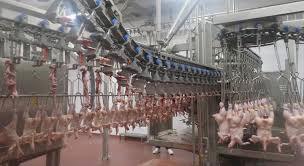 On September 19th 2025 the USDA-Economic Research Service released updated production and consumption data with respect to broilers and turkeys, covering 2024, a projection for 2025 and a forecast for 2026. On September 19th 2025 the USDA-Economic Research Service released updated production and consumption data with respect to broilers and turkeys, covering 2024, a projection for 2025 and a forecast for 2026.
The revised 2025 projection for broiler production is for 47,925 million lbs. (21.785 million metric tons) up 2.0 percent from 2024. USDA projected per capita consumption of 103.0 lbs. (46.8 kg.) for 2025, up 1.9 percent from 2024. Exports will attain 6,506 million lbs. (2.957 million metric tons), 1.6 percent below the previous year.
The 2026 USDA forecast for broiler production will be 48,300 million lbs. (21.955 million metric tons) up 0.8 percent from 2025 with per capita consumption up 0.2 lb. to 103.2 lbs. (46.9 kg). Exports will be 1.6 percent higher compared to 2025 at 6,610 million lbs. (3.005 million metric tons), equivalent to 13.7 percent of production.
Production values for the broiler and turkey segments of the U.S. poultry meat industry are tabulated below:-
|
Parameter
|
2024
(actual)
|
2025
(projection)
|
2026
(forecast)
|
Difference
2024 to 2025
|
|
Broilers
|
|
|
|
|
|
Production (million lbs.)
|
46,994
|
47,925
|
48,300
|
+2.0
|
|
Consumption (lbs. per capita)
|
101.1
|
103.0
|
103.2
|
+1.9
|
|
Exports (million lbs.)
|
6,680
|
6,506
|
6,610
|
-2.6
|
|
Proportion of production (%)
|
14.2
|
13.6
|
13.7
|
-4.2
|
|
|
|
|
|
|
|
Turkeys
|
|
|
|
|
|
Production (million lbs.)
|
5,121
|
4,837
|
5,040
|
-5.6
|
|
Consumption (lbs. per capita)
|
13.8
|
13.1
|
13.4
|
-5.1
|
|
Exports (million lbs.)
|
486
|
417
|
435
|
-14.2
|
|
Proportion of production (%)
|
9.5
|
8.6
|
8.6
|
-9.6
|
Source: Livestock, Dairy and Poultry Outlook released September 19th 2025
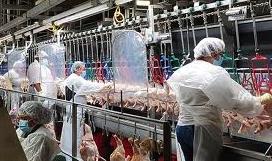 The September USDA report updated projection for the turkey industry for 2025 including annual production of 4,837 million lbs. (2.199 million metric tons), down 5.5 percent from 2024. Consumption in 2025 is projected to be 13.1 lbs. (6.0kg.) per capita, down by 5.1 percent from the previous year. Export volume will attain 417 million lbs. (189,500 metric tons) in 2025. Values for production and consumption of RTC turkey in 2025 are considered to be realistic, given year to date data, the prevailing economy, variable weekly poult placements, production levels, losses from HPAI and inventories consistent with season. The September USDA report updated projection for the turkey industry for 2025 including annual production of 4,837 million lbs. (2.199 million metric tons), down 5.5 percent from 2024. Consumption in 2025 is projected to be 13.1 lbs. (6.0kg.) per capita, down by 5.1 percent from the previous year. Export volume will attain 417 million lbs. (189,500 metric tons) in 2025. Values for production and consumption of RTC turkey in 2025 are considered to be realistic, given year to date data, the prevailing economy, variable weekly poult placements, production levels, losses from HPAI and inventories consistent with season.
The 2026 forecast for turkey production is 5,040 million lbs. (2.291 million metric tons) up an optimistic 4.2 percent from 2025 with per capita consumption up 2.3 percent to 13.4 lbs. (6.1 kg). Exports will be 4.3 percent higher than in 2025 to 435 million lbs. (197,728 metric tons) equivalent to 8.6 percent of production.
Export projections do not allow for a breakdown in trade relations with existing major partners including Mexico, Canada and China nor the impact of catastrophic diseases including HPAI and vvND in either the U.S. or importing nations

|
Recent Broiler Production and Trade Data from GAIN Reports
|
09/23/2025 |
|
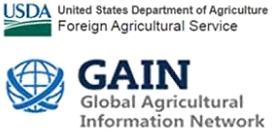 Over the past four weeks USDA-FAS has released GAIN reports detailing broiler production, trade and domestic consumption for six nations. Over the past four weeks USDA-FAS has released GAIN reports detailing broiler production, trade and domestic consumption for six nations.
The following table projects data for the industries in the six nations covering 2026
|
Nation
|
Mexico
|
Turkey
|
Argentine
|
Philippines
|
Ukraine
|
S. Korea
|
|
Production*
|
4,150
|
2,900
|
2,575
|
1,810
|
1,440
|
925
|
|
Imports*
|
1,150
|
0
|
30
|
560
|
40
|
250
|
|
Exports*
|
5
|
445
|
150
|
0
|
490
|
1,175
|
|
Domestic*
Consumption
|
5,285
|
2,455
|
2,455
|
2,375
|
990
|
1,110
|
|
Per capita (kg.)
|
40.3
|
28.5
|
53.4
|
20.4
|
17.1
|
21.3
|
|
Consumption (lbs.)
|
88.7
|
62.7
|
117.5
|
45.0
|
37.6
|
46.9
|
*Thousand metric tons
National RTC Production, Trade and Consumption Data
 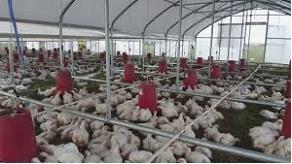
|
QUARTERLY RESULTS FOR JBS AND BRF
|
08/19/2025 |
|
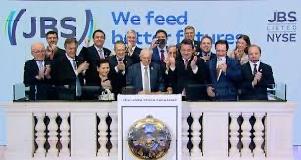 The two significant public-quoted protein producers based in Brazil recently published quarterly results that may be compared with Tyson Foods in the accompanying posting in this edition:- The two significant public-quoted protein producers based in Brazil recently published quarterly results that may be compared with Tyson Foods in the accompanying posting in this edition:-
JBS NV (JBS)
|
Parameter
|
Q2 2025
|
Q2 2024
|
|
Revenue*
|
$20,998
|
$19,284
|
|
Net Income*
|
$528
|
$329
|
|
Diluted EPS
|
$0.48
|
$0.30
|
|
Gross margin %
|
13.5
|
15.4
|
|
Operating margin %
|
5.2
|
6.0
|
|
Profit margin %
|
2.5
|
1.7
|
|
Total assets*
|
$41,816
|
$40,685
|
|
Long-term debt*
|
$18,459
|
$17,737
|
|
Market cap*
|
$33,160
|
$25,770 (Sept)
|
Pilgrim’s Pride Mainly broiler segment represented:-
22.6 % of sales ($4,755*)
41.3 % of operating income
 BRF (BRFS) BRF (BRFS)
|
Parameter
|
Q2 2025
|
Q2 2024
|
|
Revenue*
|
$2,744
|
$2,666
|
|
Net Income*
|
$131
|
$195
|
|
Gross margin %
|
26.6
|
26.3
|
|
Operating margin %
|
11.1
|
11.5
|
|
Profit margin %
|
4.8
|
7.3
|
|
Total assets*
|
$11,481
|
$11,192
|
|
Long-term debt*
|
$3,982
|
$4,110
|
|
Market cap*
|
$5,900
|
$7,130 (Sept)
|
-$U.S. x 1,000
|
Brought to you by Big Dutchman
|
08/19/2025 |
|
This special edition of CHICK-NEWS sponsored by BIG Dutchman USA features the unique DuoChain feeding system designed to supplement existing systems as a retrofit or as an original installation. The additional articles on industry statistics indicating current realities and trends should be of benefit to subscribers in planning and execution of projects.
|
U.S Broiler Chick Production-By the Numbers
|
08/19/2025 |
|
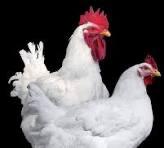 The following production data reflecting the past calendar month was summarized from the July 21st 2025 edition of the USDA Chickens and Eggs-: The following production data reflecting the past calendar month was summarized from the July 21st 2025 edition of the USDA Chickens and Eggs-:
June 2025 broiler hatching egg production was 1,149 million, down 1.0 percent from June 2024.
June 2025 broiler hatch was 856.3 million, up 1.4 percent from June 2024.
January to June 2025 cumulative broiler hatch was 5,094 million, up 0.5 percent from first half of 2025
 July 1st 2025 broiler hatching eggs in incubators, 754.3 million, up 1.4 percent from July 1st 2024 July 1st 2025 broiler hatching eggs in incubators, 754.3 million, up 1.4 percent from July 1st 2024
June 2025 U.S. Broiler parent pullets placed, 9.4 million, down <0.1 percent from June 2024
July 1st 2025 broiler parent hen population 60.4 million, down 2.4 percent from July 2024.
The take-away from July data is stability of the national breeder flock. This is consistent with prevailing demand, capacity and prices
|
Broiler Month
|
08/19/2025 |
|
Broiler Chick Placements June-July 2025.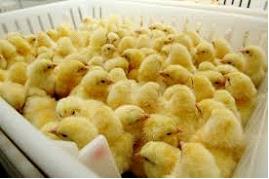
According to the July 30th 2025 USDA Broiler Hatchery Report, 1.257 million eggs were set over five weeks extending from June 28th 2025 through July 26th 2025 inclusive. This was 1.0 percent higher compared to the corresponding period in 2024.
Total chick placements for the U.S. over the five-week period amounted to 972.9 million chicks. Claimed hatchability for the period averaged 79.3 percent for eggs set three weeks earlier. Each 1.0 percent change in hatchability represents approximately 1.94 million chicks placed per week and 1.84 million broilers processed, assuming five percent culls and mortality and within the current range of weekly settings.
Cumulative chick placements for the period January 7th through December 30th 2024 amounted to 9.67 billion chicks. For January 4th through July 28th 2025 chick placements attained 5.00 billion, up one percent from the corresponding week in 2023.
 According to the July 21st 2025 edition of the USDA Chickens and Eggs, pullet breeder chicks hatched and intended for U.S. placement during June 2025 amounted to 9.38 million, down 3.9 percent (0.39 million pullet chicks) from June 2024 and 16.5 percent (1.38 million pullet chicks) more than the previous month of May 2025. Broiler breeder hen complement attained 60.37 million on July1st 2025, 2.4 percent (1.46 million hens) more than on July 1st 2024. According to the July 21st 2025 edition of the USDA Chickens and Eggs, pullet breeder chicks hatched and intended for U.S. placement during June 2025 amounted to 9.38 million, down 3.9 percent (0.39 million pullet chicks) from June 2024 and 16.5 percent (1.38 million pullet chicks) more than the previous month of May 2025. Broiler breeder hen complement attained 60.37 million on July1st 2025, 2.4 percent (1.46 million hens) more than on July 1st 2024.
Broiler Production July 2025
As documented in the July 31st 2025 USDA Weekly Poultry Slaughter Reports for the processing week ending July 26th 2025, 170.1 million broilers were processed at 6.53 lbs. live. This was 1.8 percent more than the 167.1 million processed during the corresponding week in July 2024. Broilers processed in 2025 to date amounted to 4,966 million, 1.9 percent more than for the corresponding period in 2024.
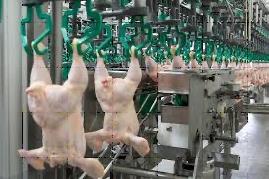
Ready to cook (RTC) weight for the most recent week in July was 827.2 million lbs. (376,005 metric tons). This was 0.3 percent less than the 829.3 million lbs. during the corresponding week in July 2024. Dressing percentage was a nominal 76.0 percent. For 2025 to date RTC broiler production attained 24,755 million lbs. (11.25 million metric tons). This quantity was 3.3 percent more than for the corresponding period in 2024.
The USDA posted live-weight data for the past week ending July 26th and YTD 2025 including:-
|
Live Weight Range (lbs.)
|
<4.25
|
4.26-6.25
|
6.26-7.25
|
>7.76
|
|
Proportion past week (%)
|
17
|
28
|
30
|
35
|
|
Change from 2020 YTD (%)
|
-7
|
+2
|
-1
|
+10
|
June 2025 Frozen Inventory
According to the July 25th 2025 USDA Cold Storage Report, issued monthly, stocks of broiler products as of June 30th 2025 compared to June 30th 2024 showed differences with respect to the following categories:-
- Total Chicken category attained 764.8 million lbs. (347.6 thousand metric tons) corresponding to approximately one week of production based on recent weekly RTC output. The June 2025 inventory was up 2.5 percent compared to 745,779 million lbs. (339.0 thousand metric tons) on June 30th 2024 and up 1.5 percent from the previous month of May 2025.
- Leg Quarters were up by 0.6 percent to 55.0 million lbs. compared to June 2024 consistent with the data on exports. Inventory was up 2.5 percent from May 2025. Given the trend in inventory of leg quarters it is evident that this category continues to be shipped in varying quantities as the principal (96 percent) chicken export product to a number of nations with the top five importers representing 48.6 percent of the January-May 2025 export total of 1,259,559 metric tons of chicken parts. Mexico was the leading importer with 23.3 percent followed by Cuba (7.9%); Taiwan, (6.6%); Philippines, (6.3%) and Canada, (5.8%)
- The Breasts and Breast Meat category was up 10.1 percent from June 2024 to 227.1 million lbs. indicating a relatively lower domestic consumer demand for this category despite concern over inflation in the cost of alternative proteins. June 30th 2025 stock was 2.1 percent higher than on May 31st 2025. The trend through the first five months of 2025 suggests stable but low retail and food service demand for the white meat category. This is despite promotion of chicken sandwiches and wraps by QSRs in the face of a higher cost for beef and an increasing pattern of eat-at-home consumption.
- Total inventory of dark meat (drumsticks legs, thighs and thigh quarters but excluding leg quarters) on June 30th 2025 decreased 2.3 percent from June 2024 to 63.7 million lbs. This difference suggests an increase in domestic demand for lower-priced dark meat against the prevailing price of white chicken meat. Higher prices for competitive proteins offer an opportunity to increase domestic demand for this category with innovative product development and promotion.
- Wings showed a 5.0 percent decrease from June 2024, contributing to a stock of 52.5 million lbs. Inventory of wings was 7.7 percent lower compared to May 2025. Movement in stock over the past 12 months has demonstrated lower demand for this category due in part from competitive “boneless wings.” Increased consumption traditionally associated with significant sports events including the College and Super Bowls reduced the volumes of storage in January and February 2025. The progressive increase in unit price during 2024 plateaued in 2025 due to consumer fatigue and competition from competing protein snacks despite continued interest in professional and collegiate football.
- The inventory of Paws and Feet was 4.2 percent higher than on June 30th 2024 to 31.9 million lbs. Stock was was 2.2 percent higher than on May 31st 2025. Prior to the April 2020 Phase-1 Trade Agreement approximately half of the shipments of paws and feet destined for Hong Kong were landed and transshipped to the Mainland, a trend that is re-emerging.
- The Other category comprising 321.8 million lbs. on June 30th 2025 was down 0.6 percent from June 2024 but represented a substantial 42.1 percent of inventory. The high proportion of the Other category suggests further classification or re-allocation by USDA to the designated major categories.
June 2025 Processed Broiler Production
The USDA Poultry Slaughter Report released on July 25th 2025 covered June 2025 comprising 20 working days, one less than June 2024. The following values were documented for the month:-
- A total of 787.3 million broilers were processed in June 2025, up 34.1 million or 4.5 percent from June 2024;
- Total live weight in June 2025 was 5,190 million lbs., up 255.8 million lbs. or 5.2 percent from June 2024;
- Unit live weight in June 2025 was 6.59 lbs., up 0.04lb. (0.6 percent) from June 2024.
- RTC in June 2025 attained 3,926 million lbs., up 5.3 million lbs. or 5.4 percent from June 2004.
- WOG yield in June 2025 was 75.6 percent, up from 75.5 percent in June 2024.
- The proportion marketed as chilled in June 2025 comprised 93.6 percent of RTC output compared to 93.4 percent in June 2024.
- Ante-mortem condemnation as a proportion of live weight attained 0.20 percent during June 2025 compared to 0.19 percent in June 2024.
- Post-mortem condemnations as a proportion of processed mass corresponded to 0.43 percent during June 2025 compared to 0.47 percent in June 2024.
-
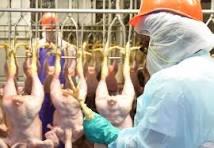
Comments
Mexico has recognized the OIE principle of regionalization after intensive negotiations between SENASICA and the U.S. counterpart, USDA-APHIS assisted by USAPEEC. Provided importing nations adhere to OIE guidelines on regionalization, localized outbreaks of avian influenza or possibly Newcastle disease will affect exports only from states or counties with outbreaks in commercial flocks. The response of China, Japan and some other nations is less predictable with bans placed on a nationwide or statewide basis. The response by China to outbreaks is influenced more by self-interest than considerations of scientific fact or international trade obligations. Other importing nations have confined restrictions to counties following the WOAH principle of regionalization. The challenge facing the U.S. as the second largest exporting nation will be to gain acceptance for controlled vaccination against HPAI in specific industry sectors and regions with appropriate surveillance and certification to the satisfaction of importing nations.

|
USDA-WASDE REPORT #663, August 11th 2025
|
08/12/2025 |
|
OVERVIEW
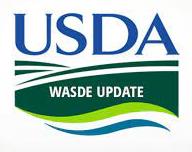 The USDA provided updated projections for the production of corn and soybeans in the August12thWorld Agriculture Supply and Demand Estimates (WASDE) #663, reflecting the 2025 crop. Production values for corn and soybeans were updated from previous editions. Projections of crop size and ending stocks are derived from acreage planted, recent annual crop yields, the latest crop progress reports, data relating to domestic use and tariff policy and competition that influence exports. The USDA provided updated projections for the production of corn and soybeans in the August12thWorld Agriculture Supply and Demand Estimates (WASDE) #663, reflecting the 2025 crop. Production values for corn and soybeans were updated from previous editions. Projections of crop size and ending stocks are derived from acreage planted, recent annual crop yields, the latest crop progress reports, data relating to domestic use and tariff policy and competition that influence exports.
The August WASDE report confirmed that the 2025 corn crop will be harvested from an expanded 88.7 million acres, (82.7 million acres in 2024). The soybean crop will be harvested from a reduced 80.1 million acres, (86.3 million acres in 2024).
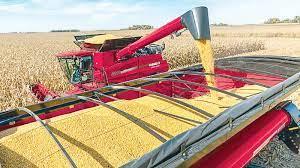 The August WASDE yield value for the 2025 corn crop was predicted at 188.8 bushels per acre up 4.3 percent from July. By comparison yield was 183.1 bushels per acre in 2024. The projected value for soybean yield was an optimistic 53.6 bushels per acre up 2.1 percent from July. By comparison yield was 51.7 bushels per acre for the previous 2024 crop. The August WASDE yield value for the 2025 corn crop was predicted at 188.8 bushels per acre up 4.3 percent from July. By comparison yield was 183.1 bushels per acre in 2024. The projected value for soybean yield was an optimistic 53.6 bushels per acre up 2.1 percent from July. By comparison yield was 51.7 bushels per acre for the previous 2024 crop.
The August WASDE projection for the ending stock of corn was increased 27.5 percent from July to 2,117 million bushels. The August USDA projection for the ending stock of soybeans was down 6.5 percent from July to 290 million bushels due to reduced supply and lower exports.
The August WASDE projected the corn price for the 2025-2026 market year at an average of 390 cents per bushel. The projected average season price for soybeans was unchanged at 1,010 cents per bushel. The price of soybean meal was lowered 3.4 percent to $280 per ton. USDA commodity prices suggest stable to lower feed costs for livestock and poultry producers. Row crop farmers and especially corn growers will experience declining margins. In some areas corn will be below break-even given relative production costs and per bushel prices. It is probable that high support prices will be required if importing nations respond negatively to tariffs proposed by the Administration.
Projections for world output included in the August 2025 WASDE report, reflect the most recent estimates for the production and export of commodities especially in the Southern Hemisphere with an emphasis on Argentine and Brazil. Economists also considered the impacts of weather patterns arising from the La Nina event especially on South America.
It is accepted that USDA projections for export will be influenced by the fluid situation relating to tariffs. Exports are also based on the perceived intentions and needs of China. This Nation has sharply curtailed purchases of commodities and especially U.S. soybeans during the previous and current market year.
CORN
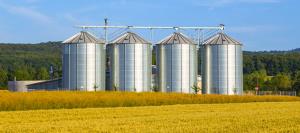 Production parameters for corn were updated from the July WASDE, influenced by data on crop progress and acreage planted. The August WASDE Report projected a 2025 crop of 16,742 million bushels, compared to 15,413 million bushels for the previous 2024 record harvest. As of August 10th, 94 and 14 percent of the crop had attained the stages of silking and dent respectively. The “Feed and Residual” category was raised 4.3 percent from July to 6,100 million bushels. The Food and Seed category was projected at 1,380 million bushels. The Ethanol and Byproducts Category was raised 1.8 percent to 5,600 million bushels consistent with estimated demand for E-10 and higher blends for driving needs. Projected corn exports were raised 7.5 percent to 2,875 million bushels, based on recent orders and shipments. The anticipated ending stock of corn will be 2,117 million bushels or 11.8 percent of projected availability. Production parameters for corn were updated from the July WASDE, influenced by data on crop progress and acreage planted. The August WASDE Report projected a 2025 crop of 16,742 million bushels, compared to 15,413 million bushels for the previous 2024 record harvest. As of August 10th, 94 and 14 percent of the crop had attained the stages of silking and dent respectively. The “Feed and Residual” category was raised 4.3 percent from July to 6,100 million bushels. The Food and Seed category was projected at 1,380 million bushels. The Ethanol and Byproducts Category was raised 1.8 percent to 5,600 million bushels consistent with estimated demand for E-10 and higher blends for driving needs. Projected corn exports were raised 7.5 percent to 2,875 million bushels, based on recent orders and shipments. The anticipated ending stock of corn will be 2,117 million bushels or 11.8 percent of projected availability.
The forecast USDA average season farm price for corn in the August WASDE report was 390 cents per bushel. At 16H00 EDT on August 12th after the noon release of the WASDE, the CME spot price for corn was 394 cents per bushel, 1.0 percent above the USDA projection but down 7.1 percent from July 12th CME price.
AUGUST 2025 WASDE #663 Projections for the 2025 Corn Harvest:
|
Harvest Area
|
88.7 m acres
|
(97.3 m. acres planted, with harvest corresponding to 91.2% of acres planted)
|
|
Yield
|
188.8 bushels per acre
|
(Updated from 181.0 bushels per acre in the July WASDE)
|
|
Beginning Stocks
|
1,305 m. bushels
|
|
|
Production
|
16,742 m. bushels
|
|
|
Imports
|
25 m. bushels
|
|
|
Total Supply
|
18,072 m. bushels
|
Proportion of Supply
|
|
Feed & Residual
|
6,100 m. bushels
|
33.7%
|
|
Food & Seed
|
1,380 m bushels
|
7.6%
|
|
Ethanol & Byproducts
|
5,600 m. bushels
|
31.0%
|
|
Domestic Use
|
13,080 m. bushels
|
72.3%
|
|
Exports
|
2,875 m. bushels
|
15.9%
|
|
Ending Stocks
|
2,117 m. bushels
|
11.8%
|
Average Farm Price: 390 cents per bushel.
SOYBEANS
 Production parameters for corn were updated from the July WASDE, influenced by crop progress data and acreage planted. The August WASDE Report projected a 2025 yield of 53.6 bushels per acre but with reduced acreage planted compared to 2024. The August WASDE projected the soybean crop to be 4,292 million bushels. As of August 10th, 71 percent of the crop was setting pods. Crush volume was unchanged from July at 2,540 million bushels despite recently increased industry capacity. Projected exports were reduced 6.0 percent to 1,705 million bushels based on the prospect of reduced imports by China following uncertainty over tariffs and diplomatic conflict. Ending stocks were anticipated to be 290 million bushels, down 6.5 percent from the July WASDE. Prior to 2018, China, the largest trading partner for U.S. agricultural commodities, imported the equivalent of 25 percent of U.S. soybeans harvested. Production parameters for corn were updated from the July WASDE, influenced by crop progress data and acreage planted. The August WASDE Report projected a 2025 yield of 53.6 bushels per acre but with reduced acreage planted compared to 2024. The August WASDE projected the soybean crop to be 4,292 million bushels. As of August 10th, 71 percent of the crop was setting pods. Crush volume was unchanged from July at 2,540 million bushels despite recently increased industry capacity. Projected exports were reduced 6.0 percent to 1,705 million bushels based on the prospect of reduced imports by China following uncertainty over tariffs and diplomatic conflict. Ending stocks were anticipated to be 290 million bushels, down 6.5 percent from the July WASDE. Prior to 2018, China, the largest trading partner for U.S. agricultural commodities, imported the equivalent of 25 percent of U.S. soybeans harvested.
The USDA WASDE August projection for the ex-farm price for soybeans was unchanged from July at 1,010 cents per bushel. At 16H00 EDT on August 12th following release of the WASDE, the CME spot price was 1,032 cents per bushel, 2.2 percent above the August USDA projection and 2.5 percent above the July 12th CME price.
AUGUST 2025 WASDE #663 Projection for the 2025 Soybean Harvest:-
|
Harvest Area
|
80.1 m acres
|
80.9 m. acres planted. Harvest corresponding to 99.0% of planted acreage)
|
|
Yield
|
53.6 bushels per acre
|
(Updated from 52.5 bushel/acre in the July WASDE)
|
|
Beginning Stocks
|
350 m. bushels
|
|
|
Production
|
4,292 m. bushels
|
|
|
Imports
|
20 m. bushels
|
|
|
Total Supply
|
4,642 m. bushels
|
Proportion of Supply
|
|
Crush Volume
|
2,540 m. bushels
|
54.7%
|
|
Exports
|
1,705 m. bushels
|
36.7%
|
|
Seed
|
73 m. bushels
|
1.6%
|
|
Residual
|
34 m. bushels
|
0.8%
|
|
Total Use
|
4,352 m. bushels
|
93.8%
|
|
Ending Stocks
|
290 m. bushels
|
6.2%
|
Average Farm Price: 1,010 cents per bushel
SOYBEAN MEAL
The projected parameters for soybean meal were retained from July. Production will attain 59.9 million tons, consistent with the unchanged soybean crush volume of 2,540 million bushels. Projected production reflects the stagnant demand for biodiesel despite expanded U.S. crushing capacity. Crush volume is driven both by exports and domestic consumption for livestock feed and for soy oil supplying the food and biodiesel segments. The projection of domestic use was 41,775 million tons. Exports were estimated at 18.7 million tons.
The USDA projected the ex-plant price of soybean meal at $310 is unchanged since the February WASDE as an average for the season based on supply and demand considerations. USDA predicted an ending stock of 475,000 tons representing 0.8 percent of supply.
At 16H00 EDT on August 12th the CME spot price for soybean meal was $292 per ton, up 4.3 percent compared to the August WASDE projection of $280 per ton and up 2.8 percent from the July CME price.
AUGUST 2025 WASDE #663 Projection of Soybean Meal Production and Use
|
Beginning Stocks
|
450
|
|
Production
|
59,850
|
|
Imports
|
650
|
|
Total Supply
|
60,950
|
|
Domestic Use
|
41,775
|
|
Exports
|
18,700
|
|
Total Use
|
60,475
|
|
Ending Stocks
|
475
|
(Quantities in thousand short tons)
Average Price ex plant:$280 per ton
I
MPLICATIONS FOR PRODUCTION COST
 The price projections based on CME quotations for corn and soybeans suggest lower feed production costs for broilers and eggs. Going forward, prices of commodities will be determined by World supply and demand and U.S. domestic yield, use and exports. The price projections based on CME quotations for corn and soybeans suggest lower feed production costs for broilers and eggs. Going forward, prices of commodities will be determined by World supply and demand and U.S. domestic yield, use and exports.
For each 10 cents per bushel change in corn:-
- The cost of egg production would change by 0.45 cent per dozen
- The cost of broiler production would change by 0.25 cent per live pound
For each $10 per ton change in the cost of soybean meal:-
- The cost of egg production would change by 0.35 cent per doze
- The cost of broiler production would change by 0.30 cent per live pound.
WORLD SITUATION
With respect to world coarse grains and oilseeds the August 2025 WASDE Report included the following appraisals by USDA:-
COARSE GRAINS:
“Global coarse grain production for 2025/26 is forecast 24.9 million tons higher to 1.572 billion.
This month’s 2025/26 foreign coarse grain outlook is for lower production, trade, and ending
stocks relative to last month. Foreign corn production is down reflecting cuts to the EU and
Serbia that are partially offset by increases for Ukraine and Canada. For the EU and Serbia
extreme heat and dryness in southeastern Europe during the month of July reduces yield
prospects. Area is also lowered for the EU. Ukraine production is raised on greater area. Canada
is higher reflecting an increase in yield expectations. Foreign barley production for 2025/26 is
reduced with a decline for Uruguay”.
“Major global coarse grain trade changes for 2025/26 include higher corn exports for the United
States and Ukraine but reductions for Serbia and the EU. Corn imports are raised for Mexico, the
EU, Egypt, Colombia, and Turkey but lowered for Canada. Foreign corn ending stocks are down,
reflecting declines for China, Indonesia, and the EU that are partly offset by increases for
Ukraine and Egypt. Global corn stocks, at 282.6 million tons, are up 10.4 million”.
OILSEEDS:
“Global 2025/26 oilseed production is lowered 3.3 million tons to 690.1 million mainly on lower
soybean, sunflower seed, and cottonseed production. Global sunflower seed production is
lowered 1.2 million tons to 55.1 million on hot and dry weather conditions leading to lower yields for the EU, Ukraine, Turkey, and Serbia”.
“Global soybean supply and demand forecasts for 2025/26 include lower production, exports, and ending stocks. Global production for 2025/26 is lowered mainly on lower production for the
United States and Serbia. Exports are reduced for the United States but raised for Argentina and
Uruguay. Imports are reduced for the EU, Iran, and Vietnam. Global ending stocks are reduced
1.2 million tons to 124.9 million on lower stocks for Argentina, the EU, Iran, Vietnam, and the
United States.”
World and U.S. Data Combined for Coarse Grains and Oilseeds:-
|
Factor: Million m. tons
|
Coarse Grains
|
Oilseeds
|
|
Output
|
1,572*
|
690
|
|
Supply
|
1,884
|
834
|
|
World Trade
|
243
|
214
|
|
Use
|
1,574
|
581
|
|
Ending Stocks
|
310
|
144
|
*Values rounded to one million metric ton
(1 metric ton corn= 39.37 bushels. 1 metric ton of soybeans = 36.74 bushels)
(“ton” represents 2,000 pounds)

|
Products
|
08/08/2025 |
|
DuoChain
|
08/07/2025 |
|
QUARTERLY RESULTS FOR TYSON FOODS AND PILGRIM’S PRIDE
|
08/04/2025 |
|
The two largest U.S.-based public-quoted broiler producers recently published quarterly results confirming the disproportionate profitability of chicken in comparison to other animal-derived protein.
 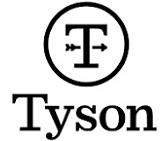 Tyson Foods Inc. (TSN) Tyson Foods Inc. (TSN)
|
Parameter
|
Q3 2025
|
Q3 2024
|
|
Revenue*
|
$13,884
|
$13,353
|
|
Net Income*
|
$69
|
$196
|
|
Diluted EPS
|
$0.17
|
$0.54
|
|
Gross margin %
|
8.2
|
6.6
|
|
Operating margin %
|
1.9
|
2.6
|
|
Profit margin %
|
0.5
|
1.5
|
|
Total assets*
|
$36,464
|
$37,100
|
|
Long-term debt*
|
$10,089
|
$11,514
|
|
Market cap*
|
$18,710
|
$21,190 (Sept)
|
TSN broiler segment represented:-
75.3% of sales ($4220*).
141% of operating income.
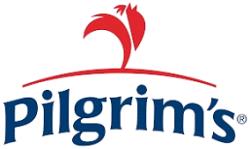 Pilgrim’s Pride Corporation (PPC) Pilgrim’s Pride Corporation (PPC)
|
Parameter
|
Q2 2025
|
Q2 2024
|
|
Revenue*
|
$4,757
|
$4,559
|
|
Net Income*
|
$356
|
$326
|
|
Diluted EPS
|
$1.49
|
$1.37
|
|
Gross margin %
|
15.0
|
15.2
|
|
Operating margin %
|
10.8
|
10.7
|
|
Profit margin %
|
7.5
|
7.2
|
|
Total assets*
|
$10,119
|
$10,650
|
|
Long-term debt*
|
$11,380
|
$10,920
|
|
Market cap*
|
$11,640
|
$10,920 (Sept)
|
*$x1,000
|
Brought to you by Big Dutchman
|
08/04/2025 |
|
This special focus edition sponsored by Big Dutchman highlights the DuoChain trough feeder that can be installed as a single line in broiler rearing and laying houses to enhance productivity and save space. The system can be added as an extra feeder line in an existing house, as a retrofit or for new barns.
The accompanying general interest articles confirm limited growth in broiler production, continued gain in bird weight, increasing domestic demand at the expense of beef but with emerging challenges in the export market.
|
Big Dutchman Breeder Products
|
08/03/2025 |
|
The Big Dutchman broiler breeder catalog lists the full range of products and accessories, including:
- Champion® chain feeders for conventional single-circuit and DuoChain installations
- Flex-vey® auger fill systems
- Big Dutchman feed bins (silos) featuring auto-lock ground control access and drip-lip design features for deflection of rainwater
- Feed weigh scales for silos to facilitate measured feed distribution
- Nipple drinkers with or without drip cups and optional water filtering and automatic flushing features
- NXB single-hole nests with bird excluders.
- Relax communal nests designed for optimal gathering of clean hatching eggs
- The EggTrax egg transfer system promoting gentle transport of eggs
- EggSort egg collection tables for convenience and saving of labor
- Titan fans with capacities ranging from 2,800 cfm to 3,500 cfm at 0.05" SP with high efficiency of power consumed
- NBC fan units incorporating belt-driven fans in either 52" or 54" size with displacements from 3,400 to 4,500 cfm with associated galvanized cones and stainless-steel shutters
- RainMaker evaporative pad cooling systems with plastic-coated pads for prolonged life
- SOLaire™ radiant brooders incorporating stainless-steel components
- BigFoot radiant tube heaters for high-efficiency area applications
- Swing20 in-house poultry scale to monitor average flock weight
- ZeusLED ceiling lights for long life and sustainability
- DOL 53 ammonia sensors compatible with the ViperTouch climate computer
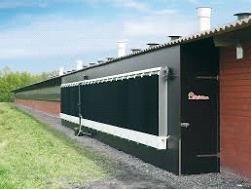
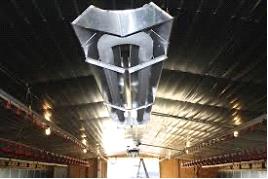
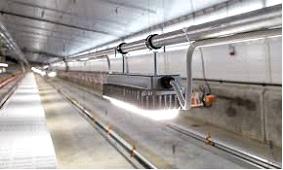
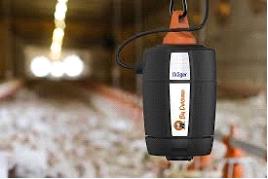
|
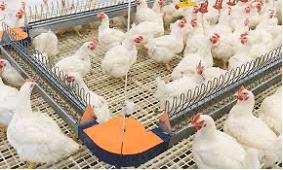 |
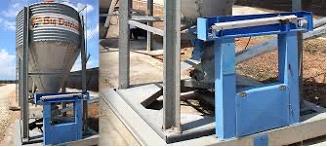 |
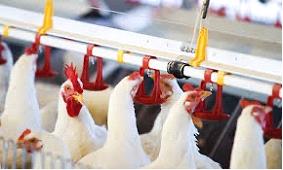 |
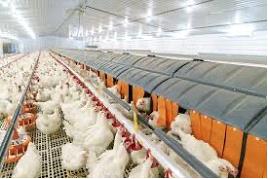 |
 |
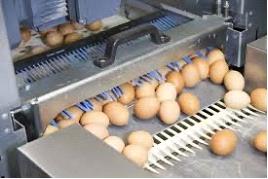 |
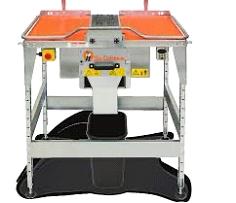 |
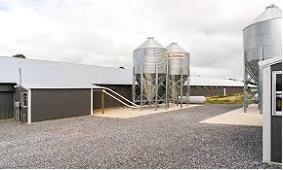 |
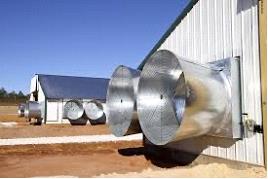 |
| |
B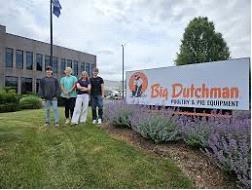 ig Dutchman assists customers in selecting and installing equipment for both retrofits and new buildings. ig Dutchman assists customers in selecting and installing equipment for both retrofits and new buildings.
Projects are tailored to the specifications and operating parameters established by the producer, considering factors such as flock size, labor availability and training, climate, sustainability, welfare requirements, and return on investment.
Additional information can be accessed on the Big Dutchman website by clicking on the company logo at the top of this edition.

|
Big Dutchman DuoChain
|
08/03/2025 |
|
Production manuals published by primary breeders stress the need to achieve uniformity in the growth and development of both cockerels and pullets to attain genetic potential. This is achieved in part by ensuring even and rapid distribution of feed for both sexes during rearing and subsequently after the onset of production.
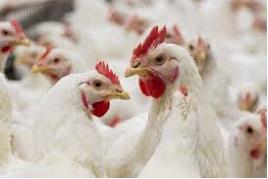
The Big Dutchman DuoChain system was developed to satisfy the feed intake requirements of breeder flocks and to optimize floor area by saving space.
In response to original customer requests for a single-length chain feeder system for cockerels, Big Dutchman engineers designed a chain feeding system that compresses a complete circuit into a single trough. This allows simultaneous transport of feed in both directions.
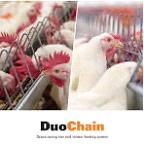
After successful field testing, the application of the DuoChain principle was extended to flocks of rearing pullets, mature hens, and cockerels. By combining the proven efficiency and durability of the Challenger feed chain with an innovative drive system, compatible corners, and a divided trough, it was possible to feed flocks within a short period. The DuoChain system eliminates competition and selective eating, resulting in uniform body weight, organ development, and maturity during rearing and even feed intake during production.
Each trough is 4.8 inches in width and 2.5 inches in depth from the inward curved lips to the base. The parallel chains moving in opposite directions are located within the trough with a shallow longitudinal partition. The feed hopper is placed either at the front or centrally along the line. Each unit can accommodate a house length of 500 ft. Separate grills are provided for the exclusion of males from the female trough or with suitably spaced “toast rack” grills to exclude females from the male feeder line.
|

Chains run in both directions for fast
and space-saving feed distribution
|

Single Ttrough chain loop
with center divider
|
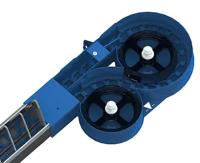 |
With a single-phase power supply chain, speeds of 60, 90, 100, or 120 feet per minute can be selected depending on house configuration. With a three-phase supply, variable speed control is optional.
Since the DuoChain installation comprises a single line, it can be installed in existing houses to increase feeding space or as a retrofit to provide separate male feeding that is considered essential for modern broiler breeds.
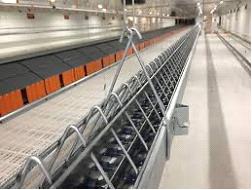
Advantages of the DuoChain system include:
- Either a suspended or standing installation is available. In the U.S., most systems are suspended with height adjusted by a winch
- Selecting a range of chain speeds to suit flock size and house layout
- Adjustment of height to accommodate the growth of cockerels and pullets
- Rapid feed distribution is achieved to prevent both skip-a-day and restricted daily issues
- Chain feeding promotes natural wear of the upper and lower beaks
- The open trough allows for ease of cleaning and prevents the accumulation of stale feed that may contribute to mycotoxicosis
- Visualization of the flock is facilitated by the uniform positioning of both cockerels and pullets during feeding throughout the rearing phase and then in laying houses after transfer

Following breeder recommendations for feeding space (2 inches per bird through 35 days and 6 inches for up to 105 days), DuoChain feeders will contribute to uniformity irrespective of whether a grading program is used to achieve low flock CV% values.

|
Besco Structures is Committed to Client Satisfaction
|
06/25/2025 |
|
Besco Structures has integrated design engineering, procurement, construction, project management and service into a cohesive model contributing to client satisfaction. Besco is ISO 9001: 2015 certified and is qualified by experience and resources to undertake retrofits, additional buildings and greenfield projects for poultry housing, hatcheries, packing and processing plants, feed mills and ancillary buildings
- Design engineers review client requirements through a process of active listening and interaction with regard to an immediate project and for future expansion. This contributes to establishing specifications for buildings to achieve optimal flock performance over the long term.
- Besco Structures has available the services of external consultants to compliment the comprehensive experience gained in completing projects in the U.S., France, Poland, Malaysia, Brazil, China and the Philippines.

- Besco Structures is committed to meticulous engineering standards to develop solutions through collaboration among clients, vendors and erectors. All designs developed by Besco Structures comply with IBC and Eurocode standards and will conform to regional laws and local ordinances. In designing projects Besco engineers consider environmental factors including seismic loads, climatic extremes including snow load, wind force and the topography of a selected site to ensure long-term structural integrity.
- The sourcing and purchasing expertise within Besco Structures contributes to securing quality materials at competitive prices that are reflected in the capital cost of projects whether individual houses or multi-building complexes.

- With current concerns over fires in both recently constructed and older buildings, Besco designs flame-resistance into all structures. Besco buildings are constructed of steel and incorporate insulated metal panels that resist fire. Individual components that may be damaged in a fire or a climatic event can be removed and replaced. A fire in a conventional house erected with wooden structural components and flammable panels usually results in a total loss of the building. Steel structures and non-flammable panels mitigate fire damage and allow repair and replacement of equipment and installations limiting business interruption by reducing the time required to resume production.
- Experience gained in four continents ensures timely delivery and adherence to predetermined completion dates consistent with the biological cycle of flock placement.

Projects completed by Agricon before re-branding as Besco Structures |

- Besco construction teams provide on-site management for projects extending from sequenced delivery of components to final handover and commissioning. Besco Structures delivers buildings with high standards of quality and craftsmanship reducing the need for subsequent modifications and refits and minimizing expenditure on future maintenance.
The Besco Structures approach to engineering, planning and execution is integral to the promise of enduring performance.

|
Besco Special
|
06/25/2025 |
|
Introduction
This special focus edition is sponsored by Besco Structures. On June 15th, Agricon LLC announced their rebranding to become Besco Structures. This emphasizes the company mission to provide engineered steel buildings incorporating quality, durability and innovation for a broad range of applications including agriculture.
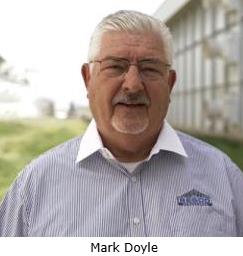 Mark Doyle, Director of Besco Structures stated, “While our name has changed our commitment to excellence remains steadfast.” The new name represents a broader scope and represents the company expertise in delivering engineered buildings. Mark Doyle, Director of Besco Structures stated, “While our name has changed our commitment to excellence remains steadfast.” The new name represents a broader scope and represents the company expertise in delivering engineered buildings.
Besco Structures will continue the service and expertise in engineering and execution associated with Agricon LLC in both the domestic and international markets.
Specific services to be offered by Besco Structures will include:
- Custom design and engineering
- Manufacturing structural components to precise specifications

- Prompt delivery of building components with ease of erection
- Comprehensive customer support
In commenting on the change in name from Agricon, Brian Steffen, CEO of the Bahler Group, the holding company stated, “This rebranding is a testament to our ongoing commitment to providing our customers with the best possible products and service. We are confident that Besco Structures will become the industry standard for excellence in steel buildings for agriculture in addition to a wide range of industries.”


|
Ziggity Special Focus Edition
|
06/10/2025 |
|
This special edition of CHICK-NEWS is sponsored by Ziggity Systems, innovators and manufacturers of poultry watering systems for nearly 50 years. In addition to updated USDA statistics on broiler and turkey production and exports, information is provided on the new Ziggity Max6™ drinker and the basics of operating watering systems for broilers.
|
SELECTION AND MANAGEMENT OF BROILER WATERING SYSTEMS TO ACHIEVE OPTIMAL RETURN
|
06/09/2025 |
|
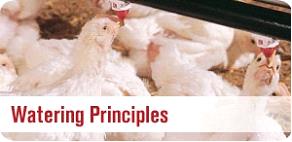 Basic principles of physiology and flock management converge to achieve the genetical potential of current broiler strains irrespective of harvest weight. Care in selection, installation, operation and maintenance of watering systems contributes to optimal live bird parameters, quality, yield and returns to both contractor and integrator. Basic principles of physiology and flock management converge to achieve the genetical potential of current broiler strains irrespective of harvest weight. Care in selection, installation, operation and maintenance of watering systems contributes to optimal live bird parameters, quality, yield and returns to both contractor and integrator.
- How Broilers Regulate Water Intake
Birds drink when they are thirsty. The hormonal and neural mechanisms involved in thirst have developed through the evolution of chickens over millennia. More recently intensive index selection for commercial traits favoring rapid growth and breast yield has influenced behavior and water requirement. The stimulus to drink is initiated by baroreceptors sensitive to blood pressure and osmoreceptors that respond to changes in the chemical composition of blood. Thirst reflects the interpretation of signals received from receptors that are processed by centers in the brain that encourage drinking.
In contrast to mammals, chickens have two added complications in regulation of water intake. Heat is lost by evaporative cooling only from respiratory surfaces as skin is insulated by feathers. Avian kidneys are relatively inefficient, consistent with their reptilian ancestry. The glomeruli, microscopic structures in the kidney responsible for filtration are less numerous than in mammals and are smaller and relatively inefficient, placing an additional burden on the neural and hormonal factors that regulate thirst.
 |
When birds are subjected to high ambient temperature, respiratory rate increases to enhance evaporation of water from the surfaces of the trachea, pharynx and oral cavity. With the change in state from liquid to vapor, latent heat is lost, effectively cooling the bird. This process requires water drawn from the blood necessitating replacement from extracellular water. The resultant changes in blood composition stimulate thirst. Evaporative cooling results in increased water consumption by the flock that is evident when comparing water meter readings against ambient temperature.
With an understanding of factors that influence thirst, it is self-evident that simple rule-of-thumb formulas relating to flow-rate of nipple type drinkers are simplistic, meaningless and potentially counterproductive. Water intake by any flock is influenced by age, strain, growth rate and environmental conditions in the house. These include ventilation settings in relation to temperature, humidity and ammonia content of air. It is not possible to induce broilers to eat more than their physiological requirements by attempt to increase water intake through raising water pressure in drinker lines.
- Water Use Compared to Actual Intake
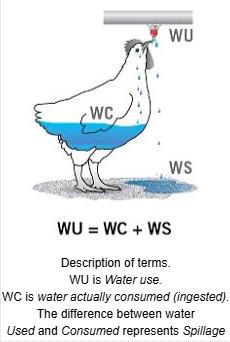
It is important to distinguish between water use as measured by the volume of water passing through a house meter and the intake represented by the actual volume of water swallowed and hence ingested. The difference between use and intake represents spillage. A drinker with an excessive discharge of water when activated by the bird will indeed satisfy thirst. It is inevitable that water that is not swallowed due to limitations of the capacity of the oral cavity will be spilled on to the litter. The ability of various substrates including wood shavings and rice hulls to absorb spillage is limited especially with the reality of leakage from imperfectly designed or operated nipples.
The rate of removal of water from litter is a function of the temperature and humidity in the house in relation to the operation of the ventilation system. At humidity levels below 50 percent and with a minimum ventilation rate of 1cfm per pound body weight, excess moisture will be removed from litter and hopefully under the drinker lines where the flock congregates. In the event of excessive spillage during drinking and any leakage from drinkers saturation of litter will occur. This is especially evident under conditions of high humidity coupled with low temperature or when suboptimal ventilation rates are applied to conserve gas.
- Management of Watering Systems
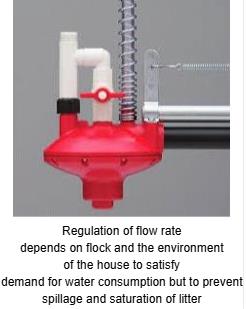 Many within the chicken industry emphasize the importance of a high static-flow rate (excessive pressure to release water) from nipples, usually expressed as milliliters per minute. Simple values relating to age of a flock are essentially meaningless in the context of satisfying thirst. A static flow rate does not correlate to the way in which a bird actually interacts with a nipple drinker. Chickens peck at trigger pins to receive a small release of water, most of which should be swallowed. Ideally the quantity of water ingested should be adequate to satisfy thirst but not so high that any appreciable quantity is spilled. Nipple drinkers should supply an adequate, but not excessive, quantity of water as the bird pecks at the trigger. This satisfies requirements for growth and prevents spillage on to litter. Many within the chicken industry emphasize the importance of a high static-flow rate (excessive pressure to release water) from nipples, usually expressed as milliliters per minute. Simple values relating to age of a flock are essentially meaningless in the context of satisfying thirst. A static flow rate does not correlate to the way in which a bird actually interacts with a nipple drinker. Chickens peck at trigger pins to receive a small release of water, most of which should be swallowed. Ideally the quantity of water ingested should be adequate to satisfy thirst but not so high that any appreciable quantity is spilled. Nipple drinkers should supply an adequate, but not excessive, quantity of water as the bird pecks at the trigger. This satisfies requirements for growth and prevents spillage on to litter.
Managing a watering system to achieve an undesirably high flow rate, causing excess spillage is analogous to working on a hot day in a garden and drinking from a hose. The flow rate from the nozzle will be too high in relation to the volume that can actually be swallowed over a few seconds. Although thirst is satisfied there is considerable spillage. This may be inconsequential standing on a lawn but in the context of broiler growing, spillage saturates litter in a poultry house with adverse effects on health and quality.
The correct function of drinking systems should not be measured by static water flow rate but by dynamic release that conforms to the pattern of drinking conditioned by volume of the oral cavity. The return over production costs for a flock is influenced by adequate water and feed intake and freedom from erosive intestinal and respiratory diseases, resulting in optimal growth and product quality.
- The Consequences of Wet Litter
High moisture levels in litter extending to areas of saturation is problematic for broiler flocks. Wet bedding is invariably associated with respiratory, intestinal and skin conditions that detract from optimal growth and that compromise quality.
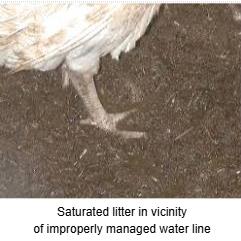
- Intestinal conditions that are adversely affected by wet or damp litter include coccidiosis and clostridial enterotoxemia (necrotic enteritis and hepatitis). Appropriate control of litter moisture is extremely important in drug-free growing systems. Elimination of chemical feed-additives including antibiotics and coccidiostats presumes greater attention to management of ventilation and watering systems to prevent excess litter moisture. Feed additives used in conventional production suppress intestinal proliferation of Clostridium and block stages in the life cycle of coccidiosis parasites.
- Ammonia is liberated from damp and wet litter. This is the result of bacterial degradation of uric acid excreted by the flock. Ammonia irritates the respiratory mucosa exacerbating the effects of respiratory pathogens including infectious bronchitis and laryngotracheitis viruses. There is ample evidence to show that flocks subjected to levels of atmospheric ammonia exceeding 25 ppm at bird’s head height for prolonged periods have lower growth rates and higher mortality than when reared at lower levels of atmospheric ammonia.
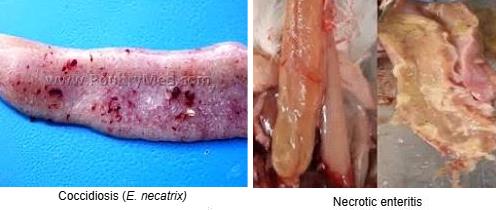
- Skin is adversely affected by wet litter and ammonia. Proliferation of Clostridium spp. in damp litter contributes to gangrenous dermatitis. Wet litter with liberation of ammonia predisposes to “hock burn” and pododermatitis restricting growth rate and reducing the value of feet for export.
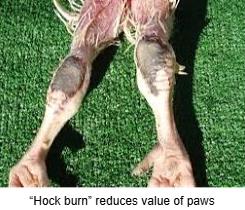
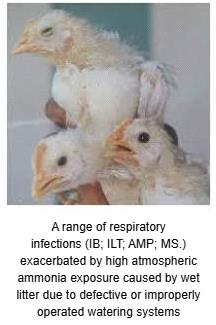
- Wet litter increases proliferation of Salmonella spp. and Campylobacter spp. These foodborne pathogens are ingested by the flock, colonizing the intestinal tract and coating feathers. This increases the level of fecal excretion, contaminating transport modules, scald tanks, defeathering and E-line equipment, contributing to potentially high levels of pathogens on products. Wet litter favors persistence and proliferation of bacterial foodborne pathogens reflecting adversely on compliance with USDA-FSIS standards.
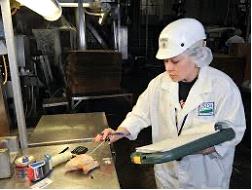
Selection and management of watering systems is integral to achieving optimum return from flocks and should be based on applying appropriate pressure settings and operation of ventilation installations.

|
Ziggity Systems Introduces Max 6™ Drinkers for Broilers
|
06/09/2025 |
|
 Over the past ten years, broiler genetics has continued to evolve in ways that emphasize efficiency, growth rate and feed conversion. Birds achieve their target weight faster than ever, with less feed required per pound or kilo of produced weight. Concurrently, bird behavior has changed as well. Field observations demonstrate that broilers drink more often compared to broilers from a decade ago. Over the past ten years, broiler genetics has continued to evolve in ways that emphasize efficiency, growth rate and feed conversion. Birds achieve their target weight faster than ever, with less feed required per pound or kilo of produced weight. Concurrently, bird behavior has changed as well. Field observations demonstrate that broilers drink more often compared to broilers from a decade ago.
 Because of these behavioral changes, Ziggity developed the Max6™ line of poultry watering drinkers. Max6™ drinkers have newly optimized internal geometry which withstands the more frequent pecking behavior of modern birds in a way that mitigates spillage. This ensures that birds receive the water they need without oversaturating the litter and results in drier, healthier housing conditions and more consistent flock performance. Because of these behavioral changes, Ziggity developed the Max6™ line of poultry watering drinkers. Max6™ drinkers have newly optimized internal geometry which withstands the more frequent pecking behavior of modern birds in a way that mitigates spillage. This ensures that birds receive the water they need without oversaturating the litter and results in drier, healthier housing conditions and more consistent flock performance.
Additionally, the design of the Max 6™ drinker eliminates the need for catch cups facilitating natural heads-up drinking. Elimination of catch cups maintains the bacterial integrity of a closed drinking system, preventing ingestion of accumulated and contaminated water that is potentially responsible for enteritis and colonization of the flock with foodborne pathogens.
Recognizing that growers incorporate a range of chemicals to decontaminate water systems and to remove biofilm, Ziggity has incorporated materials with enhanced chemical resistance to extend operational life. This will help maintain the functional integrity of the Max6™ drinker and prevent dripping. Leading to saturation of litter in the vicinity of drinker lines.
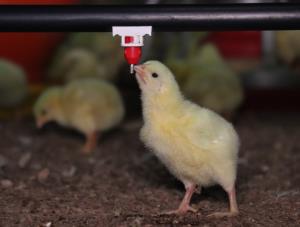
In launching the Max 6™ drinker, Rob Steiner, Vice President of Sales at Ziggity Systems stated, “We created a drinker to accommodate the bird’s evolved behavior, so flocks get the water they need without spillage.” He added, “As the industry benefits from advances in broiler genetics, Ziggity watering technology has evolved to allow maximum growth rate while maintaining the quality of litter that has a direct effect on gut health, ammonia and the quality and market value of paws”.
Field evaluation has demonstrated the enhanced return from improved growth and feed conversion, low cull and mortality rates and enhanced paw revenue.
Ziggity Max 6™ drinkers can be used with all existing Ziggity systems or be retrofitted to competitor watering lines using a special- purpose saddle adapter. This allows for the upgrade of existing installations at minimal cost.
The U.S. and international markets are served through appointed Ziggity Systems distributors who can provide technical assistance and field support. technical assistance and field support.
For almost 50 years Ziggity Systems has pioneered poultry watering solutions and is the industry innovator developing a range of drinking systems for all types of commercial poultry
For further information contact Ziggity Systems Inc. www.ziggity.com or +1 (574) 825-5849 U.S. central time.

|
To our subscribers
|
12/29/2024 |
|
Regular editions of EGG-NEWS and CHICK-NEWS will suspend publication at the beginning of 2025. This reality after twelve years of operation is a personal decision to create opportunities for new challenges.
It is hoped that the commentaries, news, editorials and statistical reviews have educated subscribers and readers and stimulated thought and discussion. If the interests of the industry and the wellbeing of their companies and operations have been advanced then the enterprise and efforts have been worthwhile.
Gratitude is extended to sponsors who have made the newsletters possible and provided encouragement over the years. They are all worthy of continued support through their equipment, products and services.
In coming months EGG-NEWS and CHICK-NEWS will circulate focus editions based on innovative products and technology in written and alternative formats to continue the tradition of independent reporting, commentary and advocacy.

 
|
Integrators Settle over Alleged Labor Rate Conspiracy
|
12/26/2024 |
|
 An additional nine broiler or turkey integrators have settled for a total of $180 million arising from claims of conspiracy to set wage rates. Defendants with their payments included the following companies with the agreed quantum in descending order in parentheses:- An additional nine broiler or turkey integrators have settled for a total of $180 million arising from claims of conspiracy to set wage rates. Defendants with their payments included the following companies with the agreed quantum in descending order in parentheses:-
Tyson Foods and Keystone Foods (combining $115.5 million); Koch Foods ($18.5 million), Foster Poultry Farms ($13.3 million), Butterball ($8.5 million), Amick Farms ($6.3 million), Fieldale Farms ($5.5 million), Allen Harim ($5.0 million), O.K. Foods ($4.8 million), Jennie-O Turkey Store ($3.5 million).
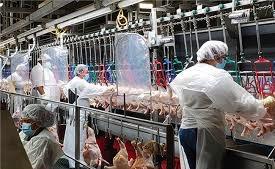
Plaintiffs claimed that both direct collusion occurred among defendants at industry meetings in addition to direct contacts that compared rates and established “no poach” agreements. A significant component of the lawsuit was the availability of wage rates received as subscribers to AgriStats® a proprietary benchmark price discovery service.
Total settlements to date have exceeded $400 million. This makes Agristats® an expensive subscription not to mention the annual meetings on the Gulf Coast.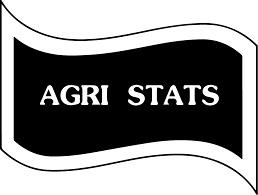
Courts have yet to try the case against Agristats® and possibly consider the liability of Elanco Animal Health, owner of the company during part of the period when the alleged collusion occurred.

|
British Researcher Criticizes Cell-Cultured Meat
|
12/24/2024 |
|
 Dr. Marco Springmann, an advocate for plant-based foods serves as a Senior Researcher at the University of Oxford Environmental Change Institute. He recently concluded a study on the environmental impact of various foods including red meat, milk, legume-based alternatives to meat. With respect to cell-cultured product he commented “For years this approach has been hailed as a dietary magic bullet which would retain all the pleasure of meat without the ethical environmental drawbacks.” Dr. Springman maintains that the entire concept of cell-cultured meat is a “costly fantasy”. He notes that technologies are unproven and that even with scale-of-production, and even if it has equivalent organoleptic qualities to conventional beef, pork and chicken, will not be competitive on price. He maintains that, “Rather than throwing more money at developing novel processed food products, it would be more beneficial to think about strategies to integrate unprocessed foods into diets”. This will require a meal perspective instead of concentrating on individual food items. Dr. Marco Springmann, an advocate for plant-based foods serves as a Senior Researcher at the University of Oxford Environmental Change Institute. He recently concluded a study on the environmental impact of various foods including red meat, milk, legume-based alternatives to meat. With respect to cell-cultured product he commented “For years this approach has been hailed as a dietary magic bullet which would retain all the pleasure of meat without the ethical environmental drawbacks.” Dr. Springman maintains that the entire concept of cell-cultured meat is a “costly fantasy”. He notes that technologies are unproven and that even with scale-of-production, and even if it has equivalent organoleptic qualities to conventional beef, pork and chicken, will not be competitive on price. He maintains that, “Rather than throwing more money at developing novel processed food products, it would be more beneficial to think about strategies to integrate unprocessed foods into diets”. This will require a meal perspective instead of concentrating on individual food items.

Dr. Springmann is evidently a vegetarian, converted to eating plant-based diets as a graduate student in the U.S. His dietary preferences were based on a fear of cardiovascular disease and developing cancer. He has advocated taxes on red meat and his studies suggest that western nations need to reduce consumption of red meat by 90 percent to have any effect on climate change.
He is less than complimentary over highly processed plant-based alternatives to conventional meat. He states, “Rather than replacing a burger with another burger, he suggests that meals should be prepared from legumes such as a bean chili or stir fry with tempeh.” He is an advocate of alternatives to milk, based on their low environmental impact. He acknowledges that substitutes such as almond milk provide only a quarter of the calories of cow’s milk but generate only 30 percent of the greenhouse gas emission of fluid milk.
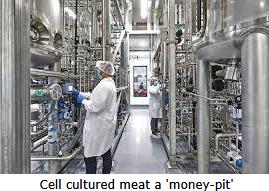
Although a proponent of consuming plant-based meals, his approach is essentially analytical, considering the quantifiable inputs and environmental effects of supplying protein from plant and animal sources.

|
Boar’s Head Response to Representative DeLauro “Inadequate”
|
12/24/2024 |
|
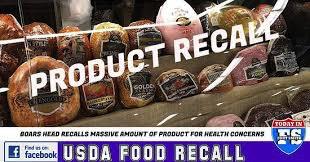 Following the recall of seven million pounds of ready-to-eat deli meat by Boar’s Head Provisions Inc. arising from an extensive outbreak of listeriosis, Representative Rosa DeLauro (D-CT) addressed a letter to the company requesting specific information on current and intended action to reduce contamination. The response through the law firm Hogan Lovells was less than satisfactory resulting in an expression of disapproval and characterized as a “corporate dodge”. Following the recall of seven million pounds of ready-to-eat deli meat by Boar’s Head Provisions Inc. arising from an extensive outbreak of listeriosis, Representative Rosa DeLauro (D-CT) addressed a letter to the company requesting specific information on current and intended action to reduce contamination. The response through the law firm Hogan Lovells was less than satisfactory resulting in an expression of disapproval and characterized as a “corporate dodge”.
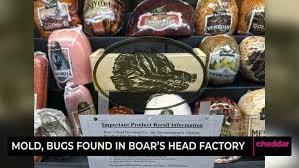 Representative DeLauro, who is experienced in food safety and epidemiology, requested specific information on how the company will comply with food safety standards in the future. The company, through its legal representative, failed to respond to questions on past food safety programs and the egregious deficiencies identified by food inspectors of the state of Virginia and USDA Food Safety Inspection Services. There was no response as to accountability among management of the Jarratt, VA. plant or the corporate staff responsible for food safety. Representative DeLauro, who is experienced in food safety and epidemiology, requested specific information on how the company will comply with food safety standards in the future. The company, through its legal representative, failed to respond to questions on past food safety programs and the egregious deficiencies identified by food inspectors of the state of Virginia and USDA Food Safety Inspection Services. There was no response as to accountability among management of the Jarratt, VA. plant or the corporate staff responsible for food safety.
USDA documented numerous instances of noncompliance following inspection of the Jarratt plant between August 2023 and 2024. USDA recorded an extensive history of violations during 2022 in the Virginia plant that has since has been closed.

In a classic example of shutting the stable door after the horse has bolted, Boars Head appointed a Food Safety Council and launched a self-serving website in an attempt to restore consumer confidence. Boar’s Head recently settled with the estate of one of the ten fatalities, with the prospect of additional lawsuits from among the 60 or more victims of listeriosis traced back to the Jarratt VA, plant.

|
Plant-Based Meat Sales Fall in November
|
12/23/2024 |
|
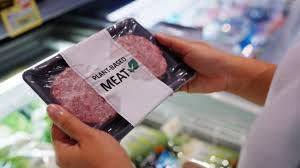
Circana, a market research company, announced that sales of plant-based alternatives to meat attained $72.3 million at retail in November. This was a decrease of 4.7 percent compared to the corresponding month in 2023. Unit sales were down 7.6 percent.

To place plant-based alternatives in perspective, the average monthly revenue for the category in 2023 was $4.5 million. The average total for broilers, turkeys and red meat was $19 billion per month. Based on the monthly figures assembled by Circana, plant-based meat sales represent approximately 0.3 percent of red meat and poultry combined and with a downward trend. To the private and corporate investors in plant based and cell-cultured alternatives to real meat the lesson from the trend in sales is clearly caveat donor.
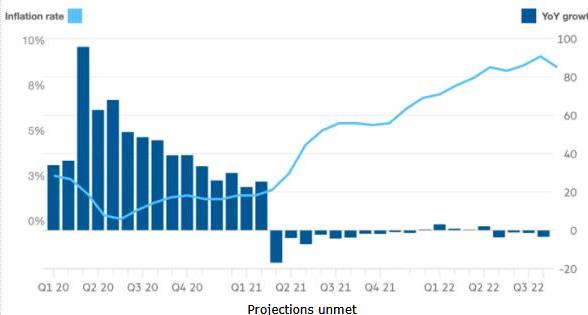
|
FSIS Clamps Down on Listeria
|
12/23/2024 |
|

Stung by criticism over recent outbreaks of listeriosis with the Boar’s Head episode as an outstanding example, the USDA Food Safety and Inspection Service (FSIS) has introduced an initiative to reduce foodborne infection due to Listeria.
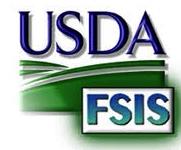
The multiphase program will include testing for the genus Listeria in addition to a previous concentration on L. monocytogenes, the principal pathogenic species. This approach is based on the fact that if any Listeria is isolated from equipment or the environment of a plant producing ready-to-eat items, deficiencies in structure or operations exist, predisposing to infection.
The FSIS will work closely with the National Advisory Committee on Microbial Criteria for Foods for guidance on procedures and regulations. In 2025 FSIS will intensify assessment of plants and facilities with an emphasis on sanitation. Plants identified as a risk will be subject to repeat visits with the participation of senior inspectors and supervisors.
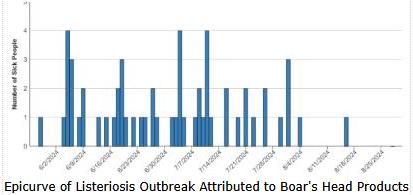
Instruction and training for food safety inspectors will be intensified. A mandatory training review course on ready-to-eat foods has been issued and will require study and examination to ensure competency by mid-February 2025.

|
Major Listeria Recall
|
12/19/2024 |
|
 Alexander and Hornung, a subsidiary of Perdue Premium Meat Company is recalling close to 1,100 tons of fully cooked ham and pepperoni products according to an FSIS release, since there is a potential for contamination with Listeria monocytogenes. Products carry the establishment number M10125. Originally the recall involved 100 tons but was expanded in all probability due to the inability of the processor to identify specific production lots. Alexander and Hornung, a subsidiary of Perdue Premium Meat Company is recalling close to 1,100 tons of fully cooked ham and pepperoni products according to an FSIS release, since there is a potential for contamination with Listeria monocytogenes. Products carry the establishment number M10125. Originally the recall involved 100 tons but was expanded in all probability due to the inability of the processor to identify specific production lots.
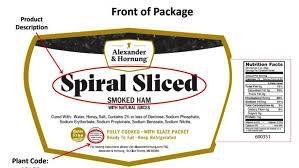 The cost of Listeria contamination across meat processing has attained unprecedented levels in 2024 with this incident, and those attributed to Boar’s Head and Yu Shang as the notable protein-related foodborne Listeria outbreaks. The cost of Listeria contamination across meat processing has attained unprecedented levels in 2024 with this incident, and those attributed to Boar’s Head and Yu Shang as the notable protein-related foodborne Listeria outbreaks.
|
USDA to Invest in Screwworm Control
|
12/18/2024 |
|
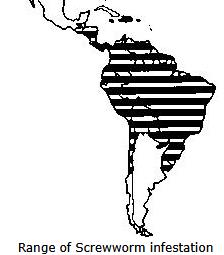 USDA has announced an initiative funded by $165 million from the Commodity Credit Corporation to suppress New World Screwworm (Cochliomyia hominivorax) in Central America and to prevent introduction into the U.S. After the infestation was identified in Mexico, USDA placed an embargo on importation of cattle across the southern border. This has led to disruption in live animal trade and has the potential to increase beef prices for consumers. USDA has announced an initiative funded by $165 million from the Commodity Credit Corporation to suppress New World Screwworm (Cochliomyia hominivorax) in Central America and to prevent introduction into the U.S. After the infestation was identified in Mexico, USDA placed an embargo on importation of cattle across the southern border. This has led to disruption in live animal trade and has the potential to increase beef prices for consumers.
It is anticipated that importation will resume in early 2025, but this will depend on ongoing cooperation between veterinary authorities in the U.S. and Mexico. It is envisioned that holding pens will be established at import points along the southern border that will allow inspectors to determine that cattle are free of lesions.
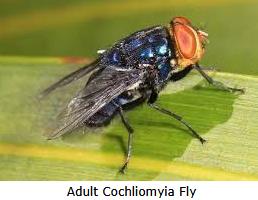
Funds will be made available from the Emergency Allocation to propagate sterile male screwworm flies that will be released in Central America. Depending on the proportion of sterile males that mate with females, egg deposition on host animals will be markedly reduced, and populations of adult flies should drop. From 1966 onwards the USDA effectively eliminated New World screwworm from north of the Panama Canal through a program of surveillance and release of sterile males.
Dr. Rosemarie Sifford, Chief Veterinary Officer of the USDA, stated, “While the United States will work very closely with Mexico and has agreed to protocols, it will take some time to implement these due to multiple steps needed to resume trade.”

|
Tyson Revamps Packaging
|
12/17/2024 |
|
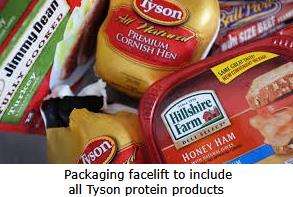 Tyson Foods has embarked on a major redesign of packaging after a span of 15 years. The initiative is based on market research with a favorable response to changes. The program will embrace Tyson Foods brands including Hillshire Farms and Jimmy Dean and will focus on a more contemporary appearance with informative messaging emphasizing product quality and nutritional content. Tyson Foods has embarked on a major redesign of packaging after a span of 15 years. The initiative is based on market research with a favorable response to changes. The program will embrace Tyson Foods brands including Hillshire Farms and Jimmy Dean and will focus on a more contemporary appearance with informative messaging emphasizing product quality and nutritional content.
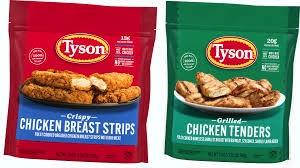
Tyson Foods will combine the rollout of packaging with an advertising campaign with the theme “Always Been Tyson”. The program will involve a phased introduction to avoid write-off of existing material and will extend over the fourth quarter of 2024 into 2025. Fully cooked frozen chicken was initially presented in the new packaging in September. Tyson Foods will follow with refrigerated and fresh products to eventually include all products within the Tyson brand.
|
Dean Sausage Company Subject to OSHA Fines
|
12/17/2024 |
|
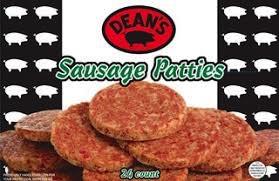 Dean Sausage Company (not related to Jimmy Dean, a brand of Tyson Foods) located in Attalla, AL. has been fined $103,000 following an OSHA inspection. Investigators for the Agency cited the company for safety violations that exposed workers to hazards including electric shock, burns and hazardous chemicals. Dean Sausage Company (not related to Jimmy Dean, a brand of Tyson Foods) located in Attalla, AL. has been fined $103,000 following an OSHA inspection. Investigators for the Agency cited the company for safety violations that exposed workers to hazards including electric shock, burns and hazardous chemicals.
Penalties were imposed after inspections in 2022 and 2023 for similar violations. During the spring of 2024 the company was fined $116,000 for seven repeat violations from the previous 2022 inspections. The most recent July evaluation determined that many ‘other-than-serious’ violations had not been corrected including failure to train employees or to document hazards relating to chemicals.
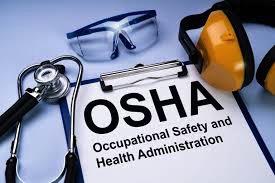
Surely the OSHA has the power to reduce danger to workers in plants adjudged to be serial violators. How bad does it have to become before serious injuries occur. Why does OSHA or a delegated state agency not have the power to close plants adjudged to be hazardous to workers? Who is minding the store?

|
Adverse Verdict Against Pilgrim’s Pride over Boneless Chicken
|
12/17/2024 |
|
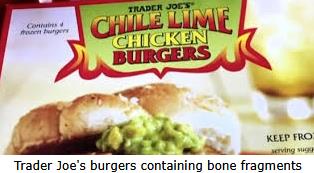
Innovative Solutions International, a processor of chicken supplied Trader Joe’s with burgers produced from allegedly boneless chicken supplied by Pilgrim’s Pride. Customer complaints of bone fragments in the burgers led to Trader Joe’s cancelling a supply agreement with Innovative Solutions resulting in a November recall and eventual cancelation of future purchases by Trader Joe’s. Innovative Solutions sued Pilgrim’s Pride resulting in a verdict against the integrator with the court awarding $10 million in damages.
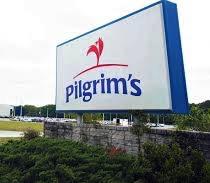
The lawsuit filed in 2020 alleged breach of contract, breach of warranty, negligent misrepresentation and violation of the Washington State Consumer Protection Act.
|
Adoption of Better Chicken Commitment Will Increase Cost
|
12/16/2024 |
|
Animal activists, opposed to all forms of intensive livestock production, consistently base their demands on welfare notwithstanding their actual indifference to poultry and animals. A principal tactic by activist organizations is to coerce retailers into demanding adherence to successively more rigorous “standards” of welfare. At the heart of the initiative in the U.K. is the Better Chicken Commitment that is claimed to provide marketing advantages to retailers based on consumer sentiment.
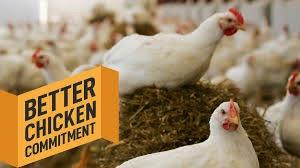 Effectively, the motivators to purchase chicken are quality, taste and price with preference ratings above 75 percent compared to welfare and sustainability that rank below 25 percent in consumer preference studies. Effectively, the motivators to purchase chicken are quality, taste and price with preference ratings above 75 percent compared to welfare and sustainability that rank below 25 percent in consumer preference studies.
Economists have reviewed the financial impact of the standards required for the Better Chicken Commitment. Reducing stocking density in the U.S. would require considerably more growing area to maintain current production if the highest level of housing including outside access is applied to the current 165 million broilers per week.
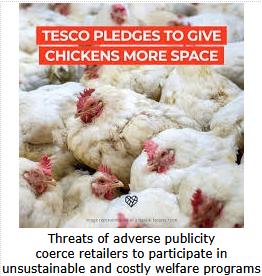
The live bird performance achieved by integrators across the entire industry denotes acceptable welfare and housing as denoted by high livability and growth rate that approach genetic potential.
The downside of adopting global animal partnership standards include: -
- Predator loss for flocks allowed outside access.
- Higher mortality from exposure to soil-related pathogens.
- Higher production cost from inferior growth rate and a deterioration in feed conversion efficiency
Sustainability will be adversely impacted by lower stocking density and adopting free-range or pastured systems. The additional broiler placements to compensate for lower output and a higher number of birds would require more feed that in turn has implications for energy and water consumption and generation of waste through the entire cycle of production.
On a restricted brand basis the higher cost can be passed on to a small market of affluent consumers. Subscribers will be aware of the failure of producers of other than conventional broilers with welfare claims requiring outside access and liberal stocking density.

|
Hormel Posts Results for Q4 and FY 2024
|
12/16/2024 |
|
 In a release dated December 4th Hormel Foods (HRL) reported on Q4 and FY 2024 ending October 27th, disappointing on the top line, reporting lower revenue and adjusting guidance only slightly for FY 2025. In a release dated December 4th Hormel Foods (HRL) reported on Q4 and FY 2024 ending October 27th, disappointing on the top line, reporting lower revenue and adjusting guidance only slightly for FY 2025.
For the quarter the company earned a reported (GAAP) $220.2 million on revenue of $3,138 million with a diluted EPS of $0.40. Comparable values for Q4 FY 2023 ending October 29th were net income of $195.9 million on revenue of $3,198 million with a diluted EPS of $0.36.
Compared to Q4 of FY 2023 sales declined by 1.9 percent, gross margin increased from 16.1 percent to 16.6 percent and operating margin was up from 5.3 percent to 5.8 percent for the most recent quarter. Profit margin was unchanged at 7.0 percent for both quarters.
For the FY 2024 the company earned a reported (GAAP) $805.5 million on revenue of $11,921 million with a diluted EPS of $1.47. Comparable values for FY 2023 ending October 29th were net income of $792.9 million on revenue of $12,110 million with a diluted EPS of $1.45.
Effective October 2022, Hormel reorganized their operating divisions into Retail, Food Service and International segments. The Jennie-O Turkey Store Division was integrated among the three operating divisions. Accordingly, releases since Fiscal 2023 do not disclose either volume or cost data for this subsidiary as in previous years. In reviewing the release, there was only indirect comment on the turkey business noting higher volume for lean ground turkey meat through Retail and Jennie-O products in Food Service. The report noted a decline in exports of turkey products, impacting the International segment. There was no reference to the risk of HPAI in either the release or the Analysts’ call. The infection has and is impacting turkey flocks in Minnesota and the Dakotas. In previous analysts’ calls CEO Jim Snee expressed ongoing concern over losses during November and December 2023 and the spring wave in 2024.
Segment performance in both sales and operating profit for the most recent quarter was compared with Q4 FY 2023:-
- Retail Segment volume -6.0%: sales -4.0%: segment profit +2.9%.
- Food Service Segment volume +2.0%: sales +1.0%: segment profit -8.0%.
- International Segment volume -10.0%: sales +1.0%: segment profit +184.0%.
For FY 2025 the company projected net sales of $11,900 to $12,200 million (up $100 million) and an unchanged adjusted full year diluted net earnings per share in the range of $1.58 to $1.72.
In commenting on Q4 results, Jim Snee CEO and Chairman stated, “Fiscal 2024 demonstrated solid execution of our strategy, the power of our portfolio and the resilience of our team “Across our business segments, we reinvested in our brands, expanded our market presence and introduced innovative solutions to drive impactful results,”
Reviewing segment performance Snee noted "In Retail, our flagship and rising brands, such as Hormel® Black Label®, Jennie-O®, SPAM®, and Applegate®, delivered strong growth and expanded households. Our Foodservice segment again achieved above-industry growth, highlighting the differentiated value and relevant offerings our dedicated team brings to the industry. Our International results reflect a solid recovery, and we remain well positioned to continue expanding our global presence.” He added “The combination of underlying business strength and the capture of $75 million in operating income benefit from our Transform and Modernize (T&M) initiative helped to offset a dynamic consumer environment, the steep decline in whole bird turkey commodity markets, and the production disruption at our Suffolk, Virginia, facility."
He concluded, "The focus on our value-added portfolio, innovation, and T&M initiative has positioned us well for sustainable growth and enhanced shareholder value.”
Hormel Foods posted total assets of $13,435 million on October 27th 2024 of which $6,656 million comprised goodwill and intangibles. Long-term debt was $3,061 million against an intraday market capitalization of $18,080 million on December 16th. HRL has traded over the past 52 weeks in a range of $28.51 (an 8-year low) to $36.86 with a 50-day moving average of $31.25. HRL trades with a forward P/E of 19.4. HRL closed at $31.82 on December 3rd pre-release. The share price closed almost unchanged at $31.99 on December 4th post release
The 12-month trailing operating margin is 8.9 percent with a profit margin of 6.5 percent. The Company has returned 5.2 percent on assets and 10.0 percent on equity.

|
Center for Consumer Freedom Opposes End-run to Promote Lab-Grown Meat
|
12/13/2024 |
|
 Will Coggin representing the Center for Consumer Freedom recently appeared before the American Legislative Exchange Council, a group representing conservative state lawmakers. At issue was an attempt to solicit an endorsement by Food Solution Action, a lobbying group representing aspirant manufacturers of cell-cultured meat and plant-based alternative to real meat and poultry. This group presented a case for alternatives to real meat based on the principle of “consumer freedom”. Will Coggin representing the Center for Consumer Freedom recently appeared before the American Legislative Exchange Council, a group representing conservative state lawmakers. At issue was an attempt to solicit an endorsement by Food Solution Action, a lobbying group representing aspirant manufacturers of cell-cultured meat and plant-based alternative to real meat and poultry. This group presented a case for alternatives to real meat based on the principle of “consumer freedom”.
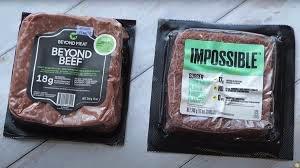 Lawmakers were not buying their presentation and voted against endorsing alternatives to real meat based on obvious safety concerns and the needs of their respective constituencies. Many conservative lawmakers with libertarian orientation represent supporters and voters engaged in beef, pork and poultry production. Politicians recognize that intensive livestock production makes Lawmakers were not buying their presentation and voted against endorsing alternatives to real meat based on obvious safety concerns and the needs of their respective constituencies. Many conservative lawmakers with libertarian orientation represent supporters and voters engaged in beef, pork and poultry production. Politicians recognize that intensive livestock production makes  available quality protein at an acceptable price, generates jobs and is integral to the agricultural economy of the U.S. available quality protein at an acceptable price, generates jobs and is integral to the agricultural economy of the U.S.
|
Plant-Based Meat Alternative Products Contaminated with Bacterial Pathogens
|
12/13/2024 |
|
 A recent survey conducted in Switzerland* disclosed bacterial contamination of plant-based meat alternatives sampled at retail by public health officials. Findings suggested the need to apply HACCP principles in the manufacture of plant-based products: A recent survey conducted in Switzerland* disclosed bacterial contamination of plant-based meat alternatives sampled at retail by public health officials. Findings suggested the need to apply HACCP principles in the manufacture of plant-based products: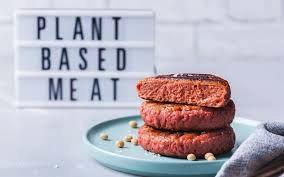
- Six percent of the samples yielded Enterobacteriaceae.
- Seven percent were contaminated with Listeria spp. other than L monocytogenes but including L. innoculua and L. seeligeri. It is noted that there is a zero tolerance for Listeria in food products marketed in the U.S.
- Two percent of the samples were contaminated with Staphylococcus aureus ST8.
- Five percent of the samples yielded Bacillus cereus with all strains identified as potentially pathogenic.
It is assumed that the FDA, with jurisdiction over plant-based alternatives to meat are evaluating production facilities and conducting assays for heavy metals, other toxins and bacteria. Or do we just wait for a problem to emerge?

*Barmettler, K., et al, Microbiological Quality of Plant-Based Meat-Alternative Products Collected at Retail Level in Switzerland, J. Food Protection doi.org/10.1016/j.jfp.2024

|
Workers Hospitalized After Exposure to Carbon Monoxide
|
12/13/2024 |
|
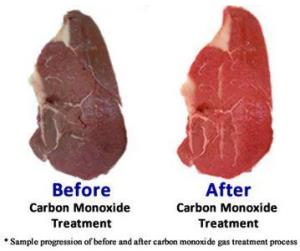
Eleven workers were hospitalized on December 7th after exposure to carbon monoxide at the Otto and Sons plant in West Jordan, UT. The Company is a subsidiary of OSI Industries, a major processor of meat products for institutional kitchens and major QSRs.
Carbon monoxide is used in packaging to deceptively enhance the red color of ground meat, possibly inhibit potential pathogens and questionably prolong shelf life, especially in case-ready products. Carbon monoxide is approved for use in the U.S. but is banned in Canada, Japan and the European Union.
Evidently a leak occurred in the plant, releasing carbon monoxide into the atmosphere of the work area. A number of employees complained of dizziness and one lost consciousness, resulting in a call to first responders. Fire crews determined that carbon monoxide readings in some parts of the plant attained 800 ppm. Generally, 35 ppm is considered to be the upper limit of short-term exposure 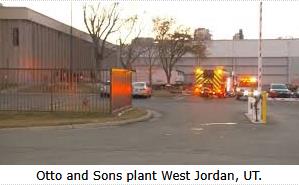 and requiring a breathing apparatus. Seventy ppm is extremely toxic, and prolonged exposure will reduce the oxygen carrying capacity of hemoglobin with potentially serious results. and requiring a breathing apparatus. Seventy ppm is extremely toxic, and prolonged exposure will reduce the oxygen carrying capacity of hemoglobin with potentially serious results.
It is evident that if carbon monoxide is used in a plant, appropriate monitors with alarm systems should be installed and tested at frequent intervals to allow for rapid evacuation of work areas should a leak occur. It is assumed that OSHA will investigate the

|
WH Group to Actively Pursue U.S. IPO
|
12/11/2024 |
|

Shareholders of the WH Group, registered in Hong Kong, have approved a proposal to offer 20 percent of Smithfield Food equity in an initial public offering by a vote of 99 percent. The magnitude for acceptance of the resolution is not unrealistic given the disproportionate control exercised by founder and CEO Wan Long.
Smithfield Foods was acquired for $4.7 billion in 2013 by Shuanghui, the predecessor of the WH Group. The holding company values Smithfield assets at $5.4 billion with the intended IPO netting the company approximately $1 billion depending on share price and uptake.
|
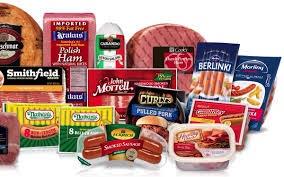 |
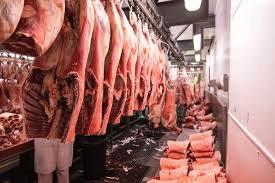 |
|
Butterball to Close Jonesboro, AR Plant
|
12/09/2024 |
|
 On December 4th, Butterball LLC advised the state of Arkansas under a Worker Adjustment and Retraining Notification that the company will close the Jonesboro facility on February 3rd, 2025. The plant produces further-processed turkey products employing 180 workers. On December 4th, Butterball LLC advised the state of Arkansas under a Worker Adjustment and Retraining Notification that the company will close the Jonesboro facility on February 3rd, 2025. The plant produces further-processed turkey products employing 180 workers.
Jay Jandrain CEO of Butterball stated, “we deliberated for a long time about this difficult decision as we know it will affect team members and their families.” He added, “We are committed to helping our team members as they determine next steps in their careers.”
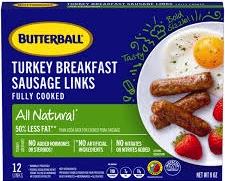
The decision by Butterball to close the facility and consolidate production in other plants follows rationalization and downsizing of facilities by Tyson Foods and other processors as a need to contain cost of production. Older plants that cannot be upgraded or expanded with installation of modern automated equipment to increase efficiency are obviously candidates for closure.
|
McDonald’s to Bring Back Snack Wraps
|
12/09/2024 |
|
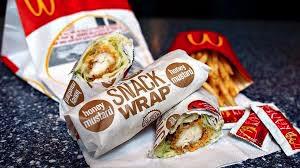 Joe Erlinger president of McDonald’s USA confirmed that his company will reintroduce the Snack Wrap following consumer demand evidenced by a petition signed by 18,000 and a social media campaign urging reintroduction. Joe Erlinger president of McDonald’s USA confirmed that his company will reintroduce the Snack Wrap following consumer demand evidenced by a petition signed by 18,000 and a social media campaign urging reintroduction.
 This menu item was introduced in 2006 with beef and chicken options although nine varieties were offered. The beef version was dropped in 2013 followed by chicken in 2016 although some franchises continued marketing the product through 2020. Snack Wraps were terminated based on low sales and the length of time required to steam the tortilla and to stuff the wraps. This menu item was introduced in 2006 with beef and chicken options although nine varieties were offered. The beef version was dropped in 2013 followed by chicken in 2016 although some franchises continued marketing the product through 2020. Snack Wraps were terminated based on low sales and the length of time required to steam the tortilla and to stuff the wraps.
McDonalds is hoping that the popularity of wraps will increase traffic.
|
USDA Chicken Purchases
|
12/06/2024 |
|
 In a November 22nd release, USDA announced three sequential purchases of chicken products for child nutrition and related domestic food distribution programs. Purchases were made on November 15th, 19th and 20th, respectively, for delivery over the period January 1st, through March 31st, 2025. In a November 22nd release, USDA announced three sequential purchases of chicken products for child nutrition and related domestic food distribution programs. Purchases were made on November 15th, 19th and 20th, respectively, for delivery over the period January 1st, through March 31st, 2025.
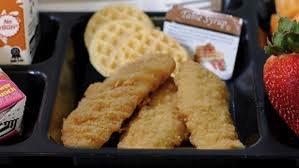 In total, the three tranches amounted to 1,930 tons plus 52,128 cases with a total value of $14,205,883. Products included: - In total, the three tranches amounted to 1,930 tons plus 52,128 cases with a total value of $14,205,883. Products included: -
- Frozen non-breaded chicken fillets at $2.71 per lb.
- Frozen chicken strips at $2.29 per lb.
- Cut-up frozen chicken at $2.03 per lb.
- Frozen bagged whole chicken at $1.01 per lb.
- Canned boned chicken at $2.38 per lb.
|
Tyson to Close Emporia, KS. and Philadelphia, PA. Plants
|
12/05/2024 |
|
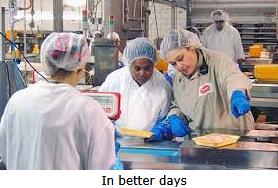 Following a program of consolidation to improve earnings, Tyson Foods will close the Emporia, KS plant, displacing 800 workers. This action follows the closure of six chicken plants and an Iowa pork plant. Following a program of consolidation to improve earnings, Tyson Foods will close the Emporia, KS plant, displacing 800 workers. This action follows the closure of six chicken plants and an Iowa pork plant.
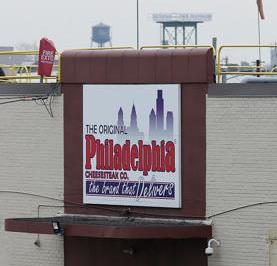
The Emporia plant produces seasoned, marinated meats and ground beef and is anticipated that production in Emporia will be transferred to the Holcombe KS plant.
Tyson will close two plants acquired in 2017 from Original Philly Holdings located in north Philadelphia. The plants that employ in the region of 250 workers produce sandwiches and appetizers under the Original Philly Cheesesteak brand.
The latest announcements follow closure of six chicken complexes over 12 months in a program of rationalization and consolidation to reduce operating costs.
|
Smithfield Foods Relinquishes Live Hog Production to Murphy Family Ventures
|
12/04/2024 |

 |
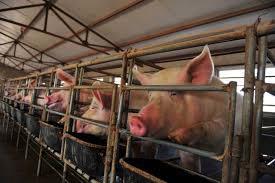
Smithfield Foods has negotiated an agreement with Murphy Family Ventures to assume ownership of 150,000 sows and their progeny to produce 3.2 million hogs of market weight annually for packaging. Under the agreement Smithfield will provide feed, transportation and services with Murphy Family Ventures serving as the contract entity.
Dell Murphy president and CEO of Murphy Family Ventures noted, “Our family has enjoyed the past 24 years as a contract growing partner with Smithfield and we look forward to restoring our heritage as an independent producer.” Shane Smith, CEO of Smithfield Foods noted that the agreement was consistent with the intention of his Company to focus on consumer products. He stated, “With this agreement we continue the transformation while ensuring a supply of hogs from a family farming operation with a long history and strong commitment to best practices.”
|
|
Registration Now Open for PEAK
|
12/04/2024 |
|
 The Midwest Poultry Federation has opened registration for the 2025 PEAK Convention The Midwest Poultry Federation has opened registration for the 2025 PEAK Convention
The 2025 PEAK event will be held at the Minneapolis Convention Center April 8th – 10th. In addition to the trade show and educational program, the Multi-State Poultry Feeding and Health Conference will take place on April 8th and the PEAK Unhatched event will be presented on the evening of April 8th.
Lisa Henning, president of the Midwest Poultry Federation noted, “PEAK 2025 is the ultimate destination for the poultry industry.” She added, “With our expanded Education Theater offering 30 presentations and the trade show floor, PEAK is where connections are made, common knowledge is shared, and solutions are found.”
Concurrent programs at PEAK include the Organic Farmers of America Symposium, the Devenish Nutrition Symposium and the North Central Avian Disease Conference.
For further information access info@midwestpoultry.com or (763) 284-6763
|

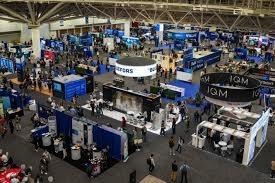 |
|
U.S. Suspends Importation of Live Animals from Mexico
|
12/04/2024 |
|
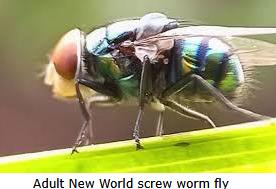 Following an outbreak of New World screwworm (Cochliomyia hominivorax) in the Mexican state of Chiapas near the border with Guatemala, the U.S. APHIS has halted importation of live cattle from Mexico awaiting a response from the Government of Mexico. Following an outbreak of New World screwworm (Cochliomyia hominivorax) in the Mexican state of Chiapas near the border with Guatemala, the U.S. APHIS has halted importation of live cattle from Mexico awaiting a response from the Government of Mexico.
New World screwworm was eradicated from North America in 2006, with a barrier represented by the Panama Canal blocking northward spread of the parasite. Elimination was achieved by releasing irradiated sterile flies and tactical administration of insecticides coupled with surveillance of livestock. Recently illegal movement of cattle and failure to regulate livestock has allowed northward movement of the infestation with transfer of infective eggs and larvae on cattle from Nicaragua to Mexico.
Based on the import ban, cattle producers in Mexico are pressing their authorities for immediate action to prevent illegal movement of livestock from Guatemala to Mexico. Action includes strengthening enforcement at border crossings, increasing penalties for illegal livestock movement and encouraging collaboration between government authorities and stakeholders.
The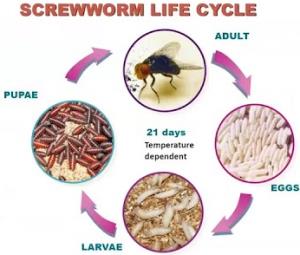 magnitude of trade between Mexico and the U.S. is evidenced by importation of 89,000 head in October with a 13 percent year-to-date increase in introduction of feeder cattle from Mexico compared to 2023. magnitude of trade between Mexico and the U.S. is evidenced by importation of 89,000 head in October with a 13 percent year-to-date increase in introduction of feeder cattle from Mexico compared to 2023.
The APHIS is recommending that livestock producers along the southern U.S. border closely monitor livestock and pets for any indication of screwworm myiasis as denoted by wounds with visible larvae or eggs.
The ban on importation imposed on November 26th resulted in a sharp increase in the price of feeder cattle to $187 per cwt. in December and $256 per cwt. for January delivery.
The APHIS is cooperating with livestock administrators in Mexico, Guatemala and other Central American nations to release sterile male screwworm flies at targeted locations.

|
Unilever Divests Vegetarian Butcher Subsidiary
|
12/04/2024 |
|
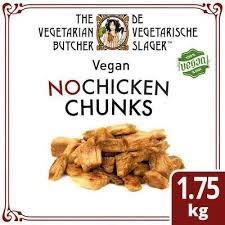
Unilever has undertaken a program of divesting non-core businesses and brands in a move to rationalize products in diverse markets. The most recent action in this regard is a decision to sell the Vegetarian Butcher producing plant-derived meat that in all probability is not generating a return on investment commensurate with company standards.

Unilever has commissioned an investment bank to assist in the disposal of the business with a number of prospective purchasers identified.
|
Quality and Taste Significant in Consumer Choice of Meat Products
|
12/04/2024 |
|
According to a recent publication*, a survey conducted by Rutgers, Columbia and Cornell University in collaboration with the International Food Policy Research Institute reported on the motivators for selection of meat products based on perceived attributes. A sample of 1,224 U.S. adults conducted in 2021 clearly demonstrated the value of quality and taste with health intermediate but revealing indifference towards environmental sustainability and animal welfare.

The study was conducted to rank motivators determining purchase to ascertain whether reducing meat consumption could benefit the environment.
The significant motivators and their relative rankings were:-
- Environmental Sustainability 29%
Among those rating environmental sustainability, 30% characterized the attribute as “not very important” and 36% “somewhat important”. Among the respondents rating animal welfare, 36% regarded the attribute as “not very important” and 32% as “somewhat important”.

Among participants in the survey, 78 percent consumed red meat one to four times per week and 79 served poultry with the proportions influenced by socioeconomic status. There was a trend towards reducing red meat with 70% declaring lower consumption as opposed to 34% reducing poultry intake. This may reflect either health considerations or cost given the availability of both categories of animal-derived proteins in U.S. supermarkets. Considerations of environmental sustainability and animal welfare were less important motivators in reducing meat intake.
Principal investigator, Dr. Shauna Downs of the Rutgers School of Public Health stated, “Our findings suggest that messaging focused solely on sustainability may not resonate with U.S. consumers regarding their meat choices.”
*Downs, S. et al Sustainability considerations are not influencing meat consumption in the U.S. Appetite. 203: December 1, 2024, doi.org/10.1016/j.appet.2024.207667

|
Koch Foods to Upgrade Morton, MS. Facility
|
12/04/2024 |
|
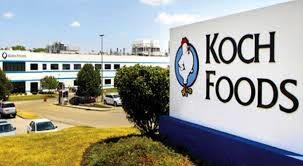 According to a company release, Koch Foods will invest $145 million to upgrade the Morton, MS. plant funding an expansion and installation of modern equipment. According to a company release, Koch Foods will invest $145 million to upgrade the Morton, MS. plant funding an expansion and installation of modern equipment.
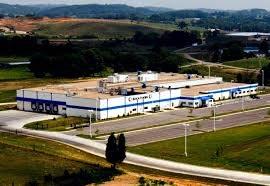 Part of the cost will be borne through the Mississippi Flexible Tax Incentive Program. Part of the cost will be borne through the Mississippi Flexible Tax Incentive Program.
Koch Foods, based in Park Ridge, IL, operates across a broad area of the Southeast with facilities in Alabama, Georgia, Mississippi in addition to Ohio and Tennessee.
|
Death Toll Rises in Yu Shang Listeria Outbreak
|
12/04/2024 |
|
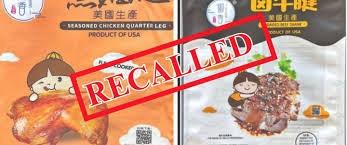 According to a posting on ProMED Mail cases of listeriosis were attributed to consuming prepared meals produced by Yu Shang Food, Inc. Of 11 diagnosed cases nine required hospitalization. One case involved a pregnant woman and her twins both of whom dyed. Cases were reported in California, Illinois, New Jersey and New York. As with many foodborne outbreaks, the actual number of those infected is higher than the confirmed cases. Traceback and identification of the source of Listeria infection is complicated by the prolonged incubation period that may extend to 70 days. According to a posting on ProMED Mail cases of listeriosis were attributed to consuming prepared meals produced by Yu Shang Food, Inc. Of 11 diagnosed cases nine required hospitalization. One case involved a pregnant woman and her twins both of whom dyed. Cases were reported in California, Illinois, New Jersey and New York. As with many foodborne outbreaks, the actual number of those infected is higher than the confirmed cases. Traceback and identification of the source of Listeria infection is complicated by the prolonged incubation period that may extend to 70 days.
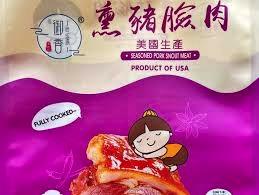 Pregnant women and their infants, the immunosuppressed and elderly are more susceptible to listeriosis than healthy individuals. In this outbreak, the age of patients ranged from less than one year of age to 86 years. All cases were of Asian ethnicity consistent with the products distributed by Yu Shang Foods. The vehicle of infection was confirmed to be ready-to-eat chicken products. Investigations showed that processed pork snouts were contaminated with Listeria suggesting the presence of the pathogen in the environment and equipment of the plant of origin. Pregnant women and their infants, the immunosuppressed and elderly are more susceptible to listeriosis than healthy individuals. In this outbreak, the age of patients ranged from less than one year of age to 86 years. All cases were of Asian ethnicity consistent with the products distributed by Yu Shang Foods. The vehicle of infection was confirmed to be ready-to-eat chicken products. Investigations showed that processed pork snouts were contaminated with Listeria suggesting the presence of the pathogen in the environment and equipment of the plant of origin.
On November 9th, Yu Shang Food recalled ready-to-eat meat and poultry products with a further expansion to a total recall in late November.

|
Consumer Digest Survey Shows Preference for Turkey as Centerpiece of Thanksgiving Meal
|
12/04/2024 |
|
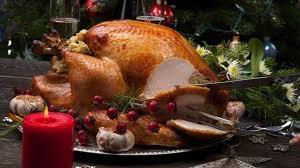 Despite news reports indicating that consumers are moving away from turkey as the main protein for Thanksgiving celebrations, a Consumer Digest survey confirmed the popularity of roast turkey. The survey involved 400 Kroger consumers over the three months prior to Thanksgiving showed that turkey was overwhelmingly favored as the centerpiece. Of those surveyed, 81 percent planned turkey as their main protein with ham at 7 percent and chicken at 3 percent. Despite news reports indicating that consumers are moving away from turkey as the main protein for Thanksgiving celebrations, a Consumer Digest survey confirmed the popularity of roast turkey. The survey involved 400 Kroger consumers over the three months prior to Thanksgiving showed that turkey was overwhelmingly favored as the centerpiece. Of those surveyed, 81 percent planned turkey as their main protein with ham at 7 percent and chicken at 3 percent.
 It was disconcerting to note that 11 percent of respondents had no plans to celebrate Thanksgiving in 2024. This was perhaps a reflection of family fragmentation, the growing wave of loneliness and possibly cost considerations. It was disconcerting to note that 11 percent of respondents had no plans to celebrate Thanksgiving in 2024. This was perhaps a reflection of family fragmentation, the growing wave of loneliness and possibly cost considerations.
Reflecting convenience, 13 percent of the respondents planned to purchase complete meals, encouraged by advertisements by supermarket chains for special Thanksgiving meal kits with both ingredients and instructions. Many retail chains offered prepared meals to serve up to ten diners.
|
Agricultural Sector Concerned Over Threat of Mass Deportation of Illegal Immigrants
|
12/02/2024 |
|
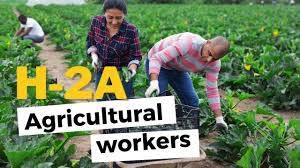 President-elect Donald J. Trump has threatened to deport all illegal immigrants both in his pre-election rhetoric and in subsequent statements and social media posts. The USDA estimates that half of the nation’s two million farm workers lack legal status. President-elect Donald J. Trump has threatened to deport all illegal immigrants both in his pre-election rhetoric and in subsequent statements and social media posts. The USDA estimates that half of the nation’s two million farm workers lack legal status.
Dave Puglia, President of Western Growers, noted that production will be seriously impacted if illegal workers were to be deported. Representative John Duarte (R-CA), currently awaiting the result of his reelection bid, commented that his constituency, which includes the Central Valley, was dependent on illegal immigrants and that serious economic consequences would follow mass deportation. Green produce, dairy and meat-packing companies would be adversely affected if workers were to be deported.
Tom Homan, appointed to secure the Southern border and to implement a program of deportation, has indicated that the priority will be illegal immigrants with criminal records or involvement with law enforcement in the U.S.

Given that a significant proportion of U.S. citizens, many receiving SNAP and other federal and state benefits, are disinclined to perform agricultural labor, it will be necessary to extend the program of H-2A visas. This will regularize the employment situation and allow workers to enter the U.S. to perform agricultural labor without displacing U.S. citizens and permanent residents.
During the first Administration of President Trump, there was only limited action against illegal workers including a few raids on poultry processing plants in Mississippi and produce-packing facilities in Nebraska.

|
Contribution of Cornell University to the Centerpiece of Festive Meals
|
12/02/2024 |
|
EGG-NEWS is indebted to Corey Earle for a review of the Cornell Poultry Science Program recently published in an alumni newsletter.

Professor James Rice, who graduated in 1890, submitting a thesis on poultry production, was appointed to the faculty of the Land Grant University. He established a teaching program in poultry production in 1892. Rice was a giant among the early promoters of poultry, organizing a judging school, establishing teaching and extension programs culminating in the establishment of the first poultry-dedicated department in the U.S. His activism and the importance of the emerging poultry industry in the Northeast led to the erection of a poultry science building in 1912, subsequently dedicated in his honor as Rice Hall.
During the early 1940s, Cornell established a turkey farm with Professor Earl Smith as the Director. He established a breeding program to develop a meat turkey. His hybrid was based on a cross between the White-Holland breed and the Broad-Breasted Bronze to create the Empire White, the first of the turkeys with a broad breast. Smith also developed artificial insemination due to the dimorphism of toms and hens. The Empire White debuted in 1953 and was used extensively by the industry. Additional refinement resulted from scientific breeding programs incorporating index selection and biomarkers for desirable traits.
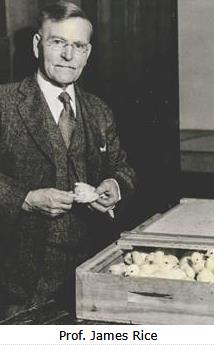
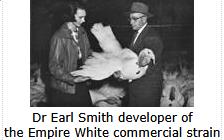 Food scientists, including Dr. Bob Baker, were instrumental in developing further processed products both for eggs and turkeys that contributed to the early success of the U.S. poultry industry. Food scientists, including Dr. Bob Baker, were instrumental in developing further processed products both for eggs and turkeys that contributed to the early success of the U.S. poultry industry.

|
USPOULTRY Market Intelligence Forum
|
11/30/2024 |
|
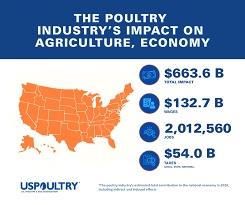 The 2025 Poultry Market Intelligence Forum will be presented at the International Production and Processing Expo. (IPPE) from 09H00 to noon on Wednesday January 29, 2025. The 2025 Poultry Market Intelligence Forum will be presented at the International Production and Processing Expo. (IPPE) from 09H00 to noon on Wednesday January 29, 2025.
The program will feature economists who will highlight problems and opportunities facing the poultry industry. Speakers will include:
- Christian Richter of The Policy Group delivering the Washington Update for 2025.
- Mark Jordan of Leap Market Analytics will discuss the current economy and future trends.
- Wendy Reinhardt Kapsak of the International Foods Information Council will discuss the supply chain, consumerism and related issues.
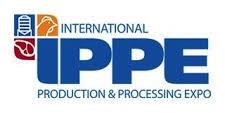
The Forum is available to all IPPE registrants at no charge.
|
Qvest Allegedly Involved in Employing Underaged Workers
|
11/30/2024 |
|
 The U.S. Department of Labor (DOL) accused Qvest LLC of hiring underaged workers for cleaning services at the Seaboard Triumph Foods plant in Sioux City, IA. The alleged contraventions occurred between September 2019 and 2023. The Department of Labor accused Qvest of violating the Fair Labor Standards Act by employing 11 minors to clean dangerous equipment during a night shift. Qvest settled with the DOL paying a penalty of $171,000 and required the Company to hire a compliance officer and conduct appropriate training. The Agreement binds Fayette Janitorial Services that acquired the contract in 2023 continuing the illegal practice of employing underage workers. The U.S. Department of Labor (DOL) accused Qvest LLC of hiring underaged workers for cleaning services at the Seaboard Triumph Foods plant in Sioux City, IA. The alleged contraventions occurred between September 2019 and 2023. The Department of Labor accused Qvest of violating the Fair Labor Standards Act by employing 11 minors to clean dangerous equipment during a night shift. Qvest settled with the DOL paying a penalty of $171,000 and required the Company to hire a compliance officer and conduct appropriate training. The Agreement binds Fayette Janitorial Services that acquired the contract in 2023 continuing the illegal practice of employing underage workers.

Seaboard Triumph was not accused of wrongdoing as it did not employ any of the underaged workers. In a statement, Seaboard Triumph that “it will not tolerate any vendor’s use of underage labor within its facilities.” Currently cleaning services are provided by members of the United Food and Commercial Workers International Union.
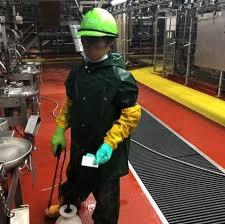
Employment of underage and in some cases illegal immigrant workers to clean plants has been a subject of investigation involving numerous packers. The DOL documented 4,000 violations in 736 facilities from 2023 to date involving $15 million in penalties
Although operators of packing plants claim innocence through the use of third-party contractors, they have a moral and managerial obligation to ensure that obviously underaged workers are not present or performing prohibited work in their plants. Difficulty in relying on contractors to adhere to state and federal regulations and evident risk to corporate image and reputation resulted in JBS USA undertaking cleaning services within the company.

|
Maple Leaf Foods and Grupo Bimbo Litigating over Defamation
|
11/30/2024 |
|
I n January 2016 the Competition Bureau of Cananda investigated alleged price-fixing in the bread industry extending from 2001 through March 2015. As a result, Canada Bread a subsidiary of Grupo Bimbo SAB de CV paid a fine of US$35 million. n January 2016 the Competition Bureau of Cananda investigated alleged price-fixing in the bread industry extending from 2001 through March 2015. As a result, Canada Bread a subsidiary of Grupo Bimbo SAB de CV paid a fine of US$35 million.
Canada Bread was acquired by Grupo Bimbo in 2014 at which time Maple Leaf owned 90 percent of the voting stock. Recently Maple Leaf Foods alleged that Canada Bread defamed Maple Leaf Foods, a shareholder and major meat packer in published statements.

It is anticipated that the Maple Leaf claim and counterclaims by Canada Bread will continue at considerable expense until settled, with the probability of degrading the corporate image of both parties.
|
President Pardons Thanksgiving Turkeys
|
11/26/2024 |
|
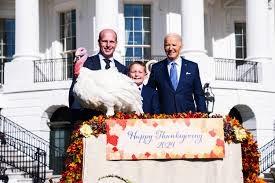 In a long-established tradition, the President pardoned two Minnesota turkeys, Peach and Blossom, on Monday, November 25th. The turkeys were reared in Northfield, MN, spent Sunday evening at the Willard Intercontinental Hotel but will return to their home state to spend the remainder of their lives at the Agricultural Interpretive Center in Waseca. In a long-established tradition, the President pardoned two Minnesota turkeys, Peach and Blossom, on Monday, November 25th. The turkeys were reared in Northfield, MN, spent Sunday evening at the Willard Intercontinental Hotel but will return to their home state to spend the remainder of their lives at the Agricultural Interpretive Center in Waseca.
The Thanksgiving turkeys were presented by John Zimmerman, Chairman of the National Turkey Federation, who grew, selected and conditioned the two presentation toms aged 17 weeks.
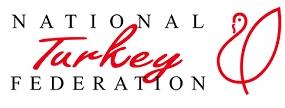
The ceremony is a tradition dating back to 1963 established by President John F. Kennedy. It is understood that previous to his administration the presentation turkeys became a centerpiece at the White House Thanksgiving Dinner.
The National Turkey Federation has organized the turkey presentation ceremony since 1947 during the Truman Administration.
|
USDA-FSIS Announces Leadership Roles
|
11/25/2024 |
|
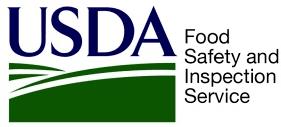 In a November 21st release, the USDA Food Safety and Inspection Service announced changes in leadership. In a November 21st release, the USDA Food Safety and Inspection Service announced changes in leadership.

Dr. Denise Eblen, a 25-year veteran of the Agency, will assume the role of Assistant Administrator for the Office of Public Health Science. She earned a Bachelor’s degree in Food Science, a Master’s degree in Public Health and a Doctorate in Food Safety Microbiology from universities in Ireland. Dr. Eblen was previously responsible for oversight of FSIS laboratories, outbreak investigation and response.
Paul Kiecker has been appointed as Assistant Administrator in the Office of Investigation, Enforcement and Audit. He is a 30-year veteran of the Agency joining as a Food Inspector in 1988, with roles of increasing responsibility in the office of Field Operations.

Dr. Emilio Esteban, Under Secretary for Food Safety, stated, “Each of these leaders brings a wealth of experience with FSIS including expertise in different aspects of the Agency’s mission and a personal commitment to protecting public health by ensuring a safe food supply.”

|
Brazil Strengthens Ties with the PRC
|
11/25/2024 |
|
 BRF a major producer of pork and chicken in Brazil has agreed to purchase a company in the Henan Province of China. In addition to the $43 million price for the facility, BRF intends investing an additional $36 million to expand production anticipated during the spring of 2025. Capacity will be expanded from 30,000 to 60,000 metric tons annually. The acquisition will provide BRF with a direct access to the market in China. BRF a major producer of pork and chicken in Brazil has agreed to purchase a company in the Henan Province of China. In addition to the $43 million price for the facility, BRF intends investing an additional $36 million to expand production anticipated during the spring of 2025. Capacity will be expanded from 30,000 to 60,000 metric tons annually. The acquisition will provide BRF with a direct access to the market in China.
The announcement was made during the state visit of President Xi Jinping to Brazil where he met with President ‘Lula’ da Silva. The respective leaders of the nations agreed to explore “synergies between the Chinese Belt Road Initiative and development programs in Brazil.” Currently Brazil and China share more than $150 billion in bilateral trade. President Xi commented on the shared geopolitical and economic interests of their nations.

Other developments arising from the state visit included the Brazilian State Bank BINDES arranging for a $700 million loan from the China Development Bank and an agreement on an orbital satellite venture in collaboration with Telebras the state telecom provider for Brazil. The Agricultural Ministry of Brazil also announced additional agricultural exports to the value of $450 million including sorghum, fruit and fish meal.
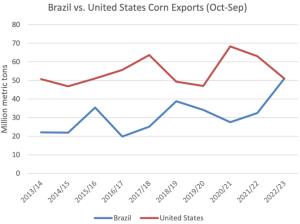 Under the Biden Administration, agricultural trade with China has contracted and it is anticipated that with a more aggressive tariff policy in 2025, exports will decline further with nations including Brazil displacing U.S. products to the detriment of the U.S. agricultural economy. Under the Biden Administration, agricultural trade with China has contracted and it is anticipated that with a more aggressive tariff policy in 2025, exports will decline further with nations including Brazil displacing U.S. products to the detriment of the U.S. agricultural economy.

|
E. coli Outbreak Implicates Wolverine Packing Company
|
11/24/2024 |
|
The Minnesota Department of Health and USDA-FSIS have confirmed a cluster of cases of E. coli O157:H7 infection among customers consuming burgers at two Minneapolis restaurants. Traceback from cases over the period November 2nd through 10th implicated Wolverine Packing Company as the supplier of the burger patties.
Accordingly, the Company has issued a recall for product with a “use by” date of November 14th amounting to 80 tons of product. The magnitude of the recall is in all probability due to the packing company being unable to identify specific batches of contaminated product resulting in an extensive recall to include all ground meat that may possibly have been contaminated.
|
 |
 |
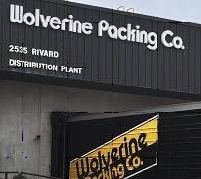 |
|
FSIS Extend Line Speed Waivers
|
11/24/2024 |
|
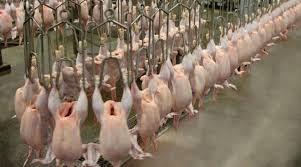 A group of 44 plants participating in the New Poultry Inspection System have had their waivers to operate at 175 birds per minute extended from mid-Nov to January 15, 2025. This decision affects facilities operated by all the major integrators and will allow completion of studies on worker safety conducted by third-party experts. A group of 44 plants participating in the New Poultry Inspection System have had their waivers to operate at 175 birds per minute extended from mid-Nov to January 15, 2025. This decision affects facilities operated by all the major integrators and will allow completion of studies on worker safety conducted by third-party experts.
Increased line speeds are opposed by a consortium of welfare activist organizations and the unions representing plant workers. The evidence presented in hearings relating to the alleged problems arising from increased line speed appeared flimsy hence the formal evaluation, despite the fact that accelerated line speeds have been a reality since July 2022.
Increased line speeds are justified based on advances in processing technology that limit manual procedures. Mechanization has contributed in large measure to the reduction in injury rates in poultry processing plants, eliminating ergonomic stress and physical injury.
|
Maple Leaf Foods Reports on Q3 FY 2024
|
11/24/2024 |
|
 In a press release dated November 13th Maple Leaf Foods Inc. (MFI-TO) announced results for Q3 FY 2024 ended September 30th 2024. Revenue beat consensus with concurrent growth in EBITDA In a press release dated November 13th Maple Leaf Foods Inc. (MFI-TO) announced results for Q3 FY 2024 ended September 30th 2024. Revenue beat consensus with concurrent growth in EBITDA
The following table summarizes the results for the period compared with the values for the corresponding quarter of the previous fiscal year (Values expressed as US$ x 1,000 except EPS (conversion: CAN$1=US$0.73)
|
3rd Quarter Ending September 30th
|
2024
|
2023
|
Difference (%)
|
|
Sales:
|
$894,656
|
$879,172
|
+1.8
|
|
Gross profit:
|
$132,211
|
$103,558
|
+27.7
|
|
Operating income:
|
$47,092
|
$28,557
|
+64.9
|
|
Pre-tax Income
Net Income/ (Loss)
|
$16,500
$12,557
|
$(174)
$(3,035)
|
+5,582
+141
|
|
Diluted earnings per share:
|
$(0.10)
|
$(0.03)
|
+433
|
|
Gross Margin (%)
|
14.8
|
11.8
|
+25.4
|
|
Operating Margin (%)
|
5.3
|
3.3
|
+60.6
|
|
Profit Margin (%)
|
1.4
|
-0.4
|
+450
|
|
Long-term Debt and lease obligations:
|
$1,254,437
|
$1,217,132
|
+3.1
|
|
12 Months Trailing:
|
|
|
|
|
Return on Assets (%)
|
3.3
|
|
|
|
Return on Equity (%)
|
2.2
|
|
|
|
Operating Margin (%)
|
5.4
|
|
|
|
Profit Margin (%)
|
-0.7
|
|
|
|
Total Assets
Intangibles and goodwill as % of assets
|
$3,162,479
25.8
|
$32,416,522
34.3
|
+30.9
|
|
Market Capitalization Sept. 30th 2024/ 2023
|
$1,938,000
|
$2,258,000
|
-14.2
|
52-Week Range in Share Price: $14.95 to $19.56 50-day Moving average $15.68
Forward P/E 32.6 Beta 0.5
Insider shareholding 40.0%. Institutional shareholding 26.2%
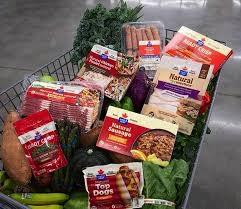 In commenting on Q4 results Curtis Frank president and CEO stated “In the third quarter of 2024, we made significant strides in executing our strategic playbook, achieving strong results in a challenging consumer landscape. Our sales increased by 1.8 percent driven by over 3 percent growth in our prepared meats business, while Adjusted EBITDA rose to Can.$141 million. In commenting on Q4 results Curtis Frank president and CEO stated “In the third quarter of 2024, we made significant strides in executing our strategic playbook, achieving strong results in a challenging consumer landscape. Our sales increased by 1.8 percent driven by over 3 percent growth in our prepared meats business, while Adjusted EBITDA rose to Can.$141 million.

Frank continued, “These results reflect our continued investment in our market-leading brands, our leadership in sustainable meats, and alignment with our customers’ strategies, as we expanded retail market share and demonstrated growth in our Food Service portfolio. These factors, together with improving pork market conditions and the benefits from our capital projects, fueled a Can.$9.0m percent year-over-year increase in Adjusted EBITDA.
Frank concluded “We continue to be very excited about the benefits of the spin-off of our pork business, and the future of Maple Leaf Foods and Canada Packers as independent, public companies. The prospect of executing the transaction as a tax-free spin-off is a positive development as we continue to advance our strategy to unlock value and unleash the potential of these two unique and distinct businesses."
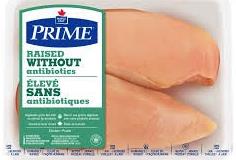 Given restructuring, it will no longer be able to evaluate the plant-protein business or to confirm that this previous segment achieved profitability as projected. It appears that Maple Leaf Foods has followed the expedient of “if you can’t fix it, bury it”! Given restructuring, it will no longer be able to evaluate the plant-protein business or to confirm that this previous segment achieved profitability as projected. It appears that Maple Leaf Foods has followed the expedient of “if you can’t fix it, bury it”!
The outlook for the remainder of FY 2024 will include a low single digit increase in revenue growth and capital expenditure of $50 million.

|
Smithfield Foods to be Listed?
|
11/19/2024 |
|
 WH Group of China has filed to list the Smithfield Foods U.S. subsidiary. In a petition to the Securities and Exchange Commission the holding company registered in Hong Kong, intends to offer 20 percent of the shareholding of Smithfield Foods to be traded on either the NYSE or NASDAQ at a time to be announced. WH Group of China has filed to list the Smithfield Foods U.S. subsidiary. In a petition to the Securities and Exchange Commission the holding company registered in Hong Kong, intends to offer 20 percent of the shareholding of Smithfield Foods to be traded on either the NYSE or NASDAQ at a time to be announced.

WH Group, the World’s largest pork producer posted earnings of $694 million on sales of $12,293 million for the two sequential quarter ending June 30th 2024. Comparable values for the corresponding two quarters of the previous fiscal year were earnings of $383 million on sales of $13,116 million.
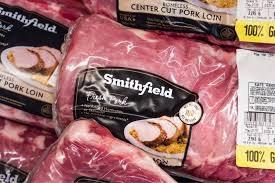
Smithfield Foods was acquired by the WH Group for $4.7 billion in 2013 and was delisted from the NYSE.
|
Smithfield Foods Settles Over Employing Minors
|
11/18/2024 |
|
 Smithfield Foods will be subject to a $2 million penalty for employing eleven minors over night- cleaning shifts at their St. James, MN. plant between April 2021 and 2023. The Minnesota Department of Labor and Industry determined that Smithfield employed eleven minors aged 14 to 17 in violation of state law over the 12-month period. The implicated workers served beyond permissible hours carrying out hazardous tasks and using mechanical equipment reserved for adults. Smithfield Foods will be subject to a $2 million penalty for employing eleven minors over night- cleaning shifts at their St. James, MN. plant between April 2021 and 2023. The Minnesota Department of Labor and Industry determined that Smithfield employed eleven minors aged 14 to 17 in violation of state law over the 12-month period. The implicated workers served beyond permissible hours carrying out hazardous tasks and using mechanical equipment reserved for adults.

Smithfield will not have to admit liability in terms of the settlement and has agreed to comply strictly with state labor laws extending to staffing agencies and contractors. In mitigation, Smithfield claimed to have screened individuals through E-Verify to ensure eligibility. As with other companies in meat processing Smithfield is subject to deficiencies of the current E-Verify system.
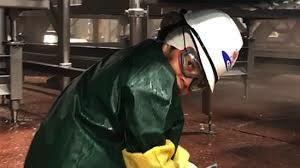
Notwithstanding this defense, management should be able to recognize that workers engaged in cleaning on a night shift are possibly underage and obtain confirmation of eligibility in the event of questionable appearance. Relying on contractors is not a justifiable defense.

|
Concern Over Eligibility of Foreign Workers
|
11/18/2024 |
|
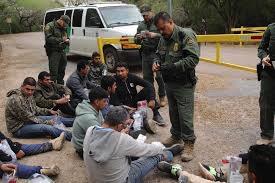
Given pre-election rhetoric, followed by the overwhelming plurality and control of Congress, it is apparent that the incoming Administration will initiate a program of deportation of non-eligible and illegal workers. The appointment of Tom Homan, a hard line official to implement a phased deportation program should encourage action by employers to ensure compliance with rules on eligibility for employment.
After the initial roundup of illegal immigrants with criminal records, raids will be conducted on packing and processing plants and agricultural production facilities.
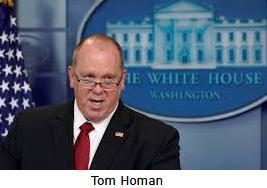 It would be prudent for employers to review the immigration status of all employees and to verify visa status, ensuring that E-Verify compliance is documented. It would be prudent for employers to review the immigration status of all employees and to verify visa status, ensuring that E-Verify compliance is documented.
In the current political climate, ICE raids resulting in detention of employees will detract from company image among consumers and customers in addition to disruption of operations.
|
Value of USDA MCap Grants
|
11/17/2024 |
|
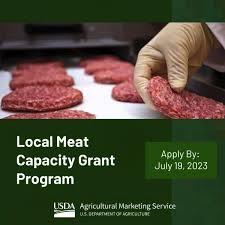 The outgoing USDA administration recently announced grants amounting to $20 million for 26 projects under the Local Meat Capacity (MCap) Program. To date, USDA has funded 97 projects valued at $56 million under this initiative. The objective of the program is to support small-scale and regional livestock production and processing to increase options for farmers. The program is justified by an internal USDA report Competition and Fair Practice in Meat Merchandizing that claims to lower food prices and to assist livestock producers and ranchers. The outgoing USDA administration recently announced grants amounting to $20 million for 26 projects under the Local Meat Capacity (MCap) Program. To date, USDA has funded 97 projects valued at $56 million under this initiative. The objective of the program is to support small-scale and regional livestock production and processing to increase options for farmers. The program is justified by an internal USDA report Competition and Fair Practice in Meat Merchandizing that claims to lower food prices and to assist livestock producers and ranchers.
Over the past four years, USDA has attempted to restructure meat and poultry production using funding from the Inflation Reduction Act and dipping into the Commodity Credit Corporation piggy bank.
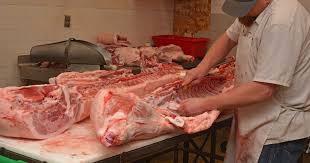
What is important is the magnitude of ultimate benefits to both producers and consumers through funding euphemistically referred to as “investment.” USDA has yet to demonstrate or to quantify a return on the use of public funds or to account for expenditures under diverse ‘giveaway’ programs.

|
Beyond Meat Settles False Claim Lawsuit
|
11/17/2024 |
|
 Beyond Meat (BYND) has agreed to settle a 2022 lawsuit claiming false and misleading promotion and deceptive business practices. The company falsely claimed superior nutritional content of its products compared to animal-derived meat. Beyond Meat claimed higher availability of amino acids from plant-based protein compared to animal-derived products. Beyond Meat (BYND) has agreed to settle a 2022 lawsuit claiming false and misleading promotion and deceptive business practices. The company falsely claimed superior nutritional content of its products compared to animal-derived meat. Beyond Meat claimed higher availability of amino acids from plant-based protein compared to animal-derived products.
Beyond Meat will not admit to wrongdoing but will pay the plaintiff class $7.5 million subject to a January 2025 settlement hearing.
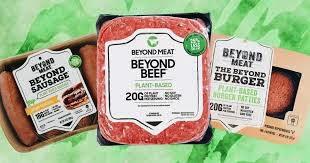
In past months, Beyond Meat has shifted its promotional message from the original focus on welfare and sustainability to health in an attempt to stimulate consumer demand. Given the financial performance of the company characterized by declining sales, it is questioned whether the current sales strategy can move the needle. Beyond Meat products lack acceptability based on price compared to equivalent real meat and quality is inferior including appearance and texture when cooked.
|
Illness and Industry Rates in Poultry Processing Decline
|
11/17/2024 |
|
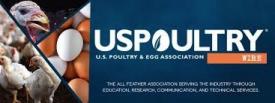 According to 2023 data assembled by the Bureau of Labor Statistics of the Department of Labor, the U.S. poultry industry recorded a rate of 2.6 events per hundred full-time workers in 2023. For comparison, the rate for all agricultural industries was 4.7 with 3.6 for the food manufacturing sector. The rate in poultry processing plants was lower than all manufacturing industries at 2.8 and general industry at 2.7. The 2.6 per hundred rate is a 90 percent decline from the corresponding value in 1994. The improvement is attributed to mechanization that has reduced musculoskeletal injury including carpal tunnel syndrome. The industry has improved safety in plants by introducing machine guards, training and ergonomic modifications with a concurrent development of a culture of safety. According to 2023 data assembled by the Bureau of Labor Statistics of the Department of Labor, the U.S. poultry industry recorded a rate of 2.6 events per hundred full-time workers in 2023. For comparison, the rate for all agricultural industries was 4.7 with 3.6 for the food manufacturing sector. The rate in poultry processing plants was lower than all manufacturing industries at 2.8 and general industry at 2.7. The 2.6 per hundred rate is a 90 percent decline from the corresponding value in 1994. The improvement is attributed to mechanization that has reduced musculoskeletal injury including carpal tunnel syndrome. The industry has improved safety in plants by introducing machine guards, training and ergonomic modifications with a concurrent development of a culture of safety.
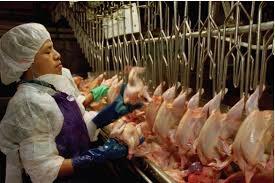
According to the Joint Poultry Industry Safety and Health Council, the poultry industry remains committed to exploring additional measures to protect workers. In a joint statement by USPOULTRY, the National Chicken Council and the National Turkey Federation, “Our employees are our most important asset, and their safety is paramount.” The statement continued, “Having a lower incidence rate than the general industry manufacturing and food manufacturing categories is a milestone we are proud to have reached. We will continue to set new benchmarks to ensure the safety and well-being of employees.”
Incidence rates for other segments of poultry production included hatcheries at 3.6, rendering 4.5, feed milling 3.0 per 100 workers per year. Within the 2.6 incident rate for poultry processing, it is noted that accidents or illnesses resulted in 0.6 total days away from work, suggesting only minor injuries.
It is not clear whether the poultry processing figure of 2.6 per hundred includes cleaning operations by a third party contractor. Employing minors and untrained personnel and failure to follow lockout procedures has resulted in documented and avoidable injuries.

|
Americold Logistics to Close Pooler, GA. Facility
|
11/13/2024 |
|
 In a move intended to reduce costs, Americold Logistics will consolidate facilities near the port of Savannah, GA. The intention to close the Pooler facility was conveyed to the State in a Worker Adjustment Retraining Notification with In a move intended to reduce costs, Americold Logistics will consolidate facilities near the port of Savannah, GA. The intention to close the Pooler facility was conveyed to the State in a Worker Adjustment Retraining Notification with 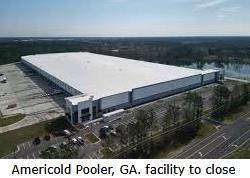 an intended closure on December 31, 2024. Americold Logistics operates facilities in Douglas, GA and Summerville, SC and it is presumed that the 58 positions to be eliminated at Pooler will be offered to current workers. an intended closure on December 31, 2024. Americold Logistics operates facilities in Douglas, GA and Summerville, SC and it is presumed that the 58 positions to be eliminated at Pooler will be offered to current workers.
|
United Natural Foods Subject of Class Action Lawsuit
|
11/12/2024 |
|
 United Natural Foods, a major wholesale distributor was the subject of a lawsuit filed by NYSM Organics of Vineyard Haven, MA. The complaint filed in the Superior Court of Rhode Island charges UNFI with breach of contract arising from unjust use of prompt-paid discounts. The plaintiff alleges “intentional and systematic but unjustified discounts despite withholding payments on supplier invoices.” United Natural Foods, a major wholesale distributor was the subject of a lawsuit filed by NYSM Organics of Vineyard Haven, MA. The complaint filed in the Superior Court of Rhode Island charges UNFI with breach of contract arising from unjust use of prompt-paid discounts. The plaintiff alleges “intentional and systematic but unjustified discounts despite withholding payments on supplier invoices.”
The complaint apparently disclosed discriminatory practices against small suppliers.
In rebutting the claim, UNFI stated, “We value all our supplier relationships and take any concerns seriously.”
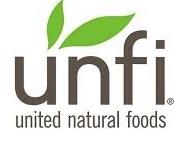
For the most recently concluded FY2024 ending August 3rd UNFI posted a loss of $112 million on sales of $30,980 million with a negative EPS of $(1.89). Comparable values for FY 2023 were earnings of $24 million on sales of $30,272 million with an EPS of $0.40.
|
Jennie-O Expanding Willmar, MN. Plant
|
11/12/2024 |
|
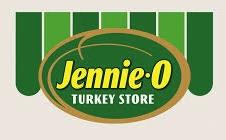  Hormel Foods Corp, the holding company for Jennie-O, Turkey Store has announced an expansion program to add 20,000 square feet of space to their Willmar, MN. plant. The project will be completed during the fourth quarter of 2025 and will include modernization of equipment to improve efficiency and to expand product range to include additional value-added items. Hormel Foods Corp, the holding company for Jennie-O, Turkey Store has announced an expansion program to add 20,000 square feet of space to their Willmar, MN. plant. The project will be completed during the fourth quarter of 2025 and will include modernization of equipment to improve efficiency and to expand product range to include additional value-added items.
|
Moderate Expansion of Broiler Production in Argentina
|
11/12/2024 |
|
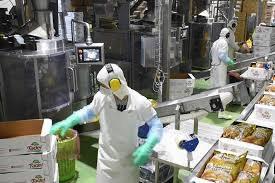 Given the economic plight of Argentina, with high inflation, currency controls and export taxes, the broiler industry in that nation is focused on the domestic market. Due to the high price of beef and pork, poultry is the principal animal protein with consumption estimated at 51 kg. (112 lbs.) per capita, assuming a population of 46 million in 2025. Given the economic plight of Argentina, with high inflation, currency controls and export taxes, the broiler industry in that nation is focused on the domestic market. Due to the high price of beef and pork, poultry is the principal animal protein with consumption estimated at 51 kg. (112 lbs.) per capita, assuming a population of 46 million in 2025.
USDA-FAS (GAIN Report AR 2024-14) projected 2025 broiler production to be 2.545 million metric tons (5,599 million lbs.). Of this total, seven percent or 180,000 metric tons will be exported mainly in the form of whole birds weighing from 2.0 to 2.5 lbs. to markets including Chile, the E.U. and as an aspiration, even China.
|
 |
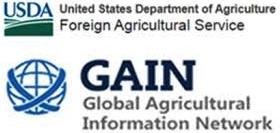 |
|
Brazil Continues as the Leading Broiler Meat Exporter
|
11/12/2024 |
|
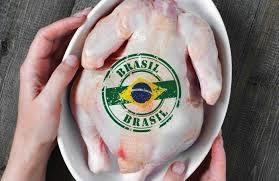 According to USDA-GAIN Report BR 2024-28 released on October 9th, Brazil will continue as the world's leading exporter of broiler meat. Volume of shipments will attain 5.0 million metric tons, an increase of 2.0 percent over 2024. Exports during 2025 will attain 33.1 percent of the projected production of 15.1 million metric tons, an advance of 0.7 percent over 2024. Assuming a domestic population of 216 million, per capita consumption will attain 46.7 kg. (103 lbs.). According to USDA-GAIN Report BR 2024-28 released on October 9th, Brazil will continue as the world's leading exporter of broiler meat. Volume of shipments will attain 5.0 million metric tons, an increase of 2.0 percent over 2024. Exports during 2025 will attain 33.1 percent of the projected production of 15.1 million metric tons, an advance of 0.7 percent over 2024. Assuming a domestic population of 216 million, per capita consumption will attain 46.7 kg. (103 lbs.).
In order to maintain export volume, Brazil has intensified surveillance over highly pathogenic avian influenza (HPAI) and is negotiating acceptance of regionalization among major export markets. Brazil is vulnerable to HPAI, having recorded 166 cases in migratory marine birds and a few backyard farms during 2023-2024. Miraculously no cases were diagnosed among commercial flocks that would have required reports to the WOAH and consequential disruption in exports.
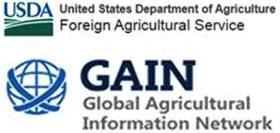
Producers in Brazil have concentrated on halal markets and in recent years have made investments in domestic production in the Emirates and Saudi Arabia, a trend that will continue.
In contrast to the U.S., Brazil has adopted a consumer-oriented approach to exports, supplying a wide range of whole birds, portions and added-value products specific to the needs of identified markets. Given this flexibility and aggressive promotion, Brazil will remain a formidable competitor to the U.S. that offers undifferentiated commodity leg quarters comprising 97 percent of broiler exports.

|
Tyson Foods Inc. Reports on Q4 and FY 2024
|
11/12/2024 |
|
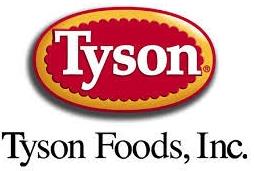 In a press release dated November 12th Tyson Foods Inc. (TSN) announced results for the 4th quarter of FY 2024 ending September 28th 2024. TSN posted higher GAAP earnings ($1.00) than consensus estimates ($0.64) and exceeded estimates on revenue by 1.8 percent, attributed to performance in the Chicken Segment In a press release dated November 12th Tyson Foods Inc. (TSN) announced results for the 4th quarter of FY 2024 ending September 28th 2024. TSN posted higher GAAP earnings ($1.00) than consensus estimates ($0.64) and exceeded estimates on revenue by 1.8 percent, attributed to performance in the Chicken Segment
The following table summarizes the results for the period compared with the values for the corresponding quarter of the previous fiscal year (Values expressed as US$ x 1,000 except EPS)
|
Fourth Quarter Ending
|
September 28th 2024
|
September 30th
2023
|
Difference (%)
|
|
Sales:
|
$13,565,000
|
$13,348,000
|
+1.6
|
|
Gross profit:
|
$1,060,000
|
$459,000
|
+130.9
|
|
Operating income (loss):
|
$525,000
|
$(463,000)
|
+213.4
|
|
Pre-tax income (loss)
Net income (loss)
|
$475,000
$364,000
|
$(565,000)
$(443,000)
|
+185.4
+182.2
|
|
Diluted GAAP earnings per share
|
$1.00
|
$(1.31)
|
+176.3
|
|
Gross Margin (%)
|
7.8
|
3.4
|
+129.4
|
|
Operating Margin (%)
|
3.9
|
-3.4
|
+214.7
|
|
Profit Margin (%)
|
2.7
|
-3.3
|
+181.8
|
|
Long-term Debt and other liabilities:
|
$11,514,000
|
$9,189,000
|
+25.3
|
|
12 Months Trailing:
|
|
|
|
|
Return on Assets (%)
|
1.8
|
|
|
|
Return on Equity (%)
|
0.1
|
|
|
|
Operating Margin (%)
|
3.3
|
|
|
|
Profit Margin (%)
|
0
|
|
|
|
Total Assets* Sept. 28th ‘24/Sep.30th 2023
|
$37,100,000
|
$36,251,000
|
+2.3
|
|
Intraday Market Capitalization Nov. 12h 2024/Dec. 31st2023
|
$20,930,000
|
$19,090,000
|
+9.6
|
* Goodwill and intangibles 42.3 percent of total assets
For FY 2024 Tyson Foods earned $800 million on revenue of $53,309 million with a diluted GAAP EPS of $1.00. Comparable values for FY 2023 were a loss of $(648) million on revenue of $52,881 million with a negative EPS of $(1.87)
52-Week Range in Share Price of TSN: $45.38 to $66.88. 50-day Moving average, $60.19
Market Close: Monday November 11th $61.24. Open Tuesday November 12th post release, $62.50.
Forward P/E 15.6 Beta 0.8
The Chicken Segment attained sales of $4,251 million ($4,155 million in Q4 FY 2023) representing 31.3 percent of Company revenue. GAAP operating income attained $356 million in Q4 representing 69.5 percent of net Company operating income. Operating income in Q4 FY 2023 was $75 million. For the Chicken Segment the report stated:- “The USDA projects chicken production will be up three percent FY 2025”. Anticipated adjusted operating income for the segment was forecast at $1,000 to $1,200 million for FY 2025. Improvement in the Chicken Segment is attributed to lower feed cost and reduced operating expenses with consolidation following closure of six plants in four states.
For comparison among Tyson Foods’ business segments the adjusted operating income (loss) in Q4 2024 were respectively:- Pork, $(19) million; Beef, $(71) million; Prepared Foods $205 million and International & Other $3 million.
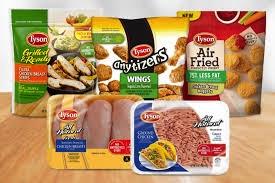
In commenting on results Donnie King, president and CEO stated. "We delivered significant improvement in profitability for the fourth quarter and full year. We also strengthened our financial position, with solid cash flow generation and a substantial reduction of our net leverage ratio." He concluded "Looking ahead, we are optimistic about our outlook and our ability to deliver long-term value to our shareholders. Our multi-protein, multi-channel portfolio, combined with our best-in-class team, iconic brands and focus on operational excellence positions us well for Fiscal 2025 and beyond."
Improved Q4 earnings raised TSN on a down market. The investors’ call stressed a ‘positive turnaround’ in Q4.
Guidance for FY 2025 included Revenue down one percent to flat from FY 2024. Adjusted operating income for the Company was projected at $1,800 million to  $2,200 million with Prepared Foods contributing $900 to $1,100 million. Capital expenditure was projected at $1.0 to $1.2 billion. $2,200 million with Prepared Foods contributing $900 to $1,100 million. Capital expenditure was projected at $1.0 to $1.2 billion.
In the Q2 2013 report Tyson Foods projected $1 billion in savings from the “Productivity Program” by the end of 2024 although this prediction was not confirmed as a quantitative value in the most recent quarterly report.

|
Hybrid Turkeys to Market TurkeyTrac™ Recording System
|
11/12/2024 |
|
 Hybrid Turkeys has announced a strategic partnership with the developers of TurkeyTrac a data collection and analysis system. In terms of the agreement, Hybrid Turkeys will the exclusive distributor. Hybrid Turkeys has announced a strategic partnership with the developers of TurkeyTrac a data collection and analysis system. In terms of the agreement, Hybrid Turkeys will the exclusive distributor.
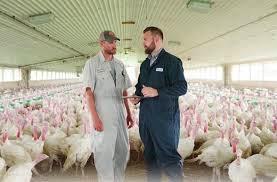 TurkeyTrac will allow growers to enter data including feed and water consumption, body weight, mortality and environmental variables. This will allow analysis of data in relation to flock performance. It is intended to supplement TurkeyTrac with ongoing support by the Hybrid technical team in order to optimize genetic potential for growers. TurkeyTrac will allow growers to enter data including feed and water consumption, body weight, mortality and environmental variables. This will allow analysis of data in relation to flock performance. It is intended to supplement TurkeyTrac with ongoing support by the Hybrid technical team in order to optimize genetic potential for growers.

Field data will be archived by Hybrid for analysis and guidance of the breeding program through data input from diverse production systems and environments.
|
Ammonia Leak at Pitman Farms Rapidly Secured
|
11/12/2024 |
|
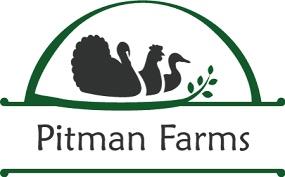 Pitman Farms processing plant in Sanger, CA experienced a release of anhydrous ammonia on November 3rd. The event was caused by a malfunction of a fan in a refrigeration unit. The Sanger Fire Department responded to the incident, with the release rapidly contained. As a precaution, a shelter-in-place advisory was issued although continuous air monitoring did not demonstrate a danger to the public. The plant was rapidly evacuated without injury. Pitman Farms processing plant in Sanger, CA experienced a release of anhydrous ammonia on November 3rd. The event was caused by a malfunction of a fan in a refrigeration unit. The Sanger Fire Department responded to the incident, with the release rapidly contained. As a precaution, a shelter-in-place advisory was issued although continuous air monitoring did not demonstrate a danger to the public. The plant was rapidly evacuated without injury.
Pitman Farms plant in Sanger has experienced previous episodes of ammonia releases suggesting the need for more effective preventive maintenance. California OSHA will undoubtedly investigate the event given the potential for death or injury and disruption in the area of operation.
|
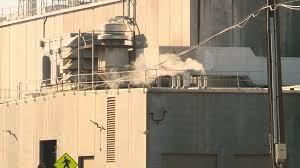

|
|
Butterball Profitable in Third Quarter
|
11/11/2024 |
|
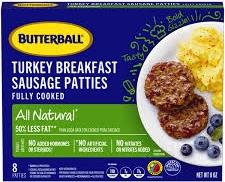 According to the Seaboard Corporation SEC 10-Q submission, their Butterball LLC subsidiary generated a net profit of $10 million on quarterly sales of $484 million over the third quarter ending September 28, 2024. Comparative values for the corresponding third quarter of FY 2023 ending September 30th were net According to the Seaboard Corporation SEC 10-Q submission, their Butterball LLC subsidiary generated a net profit of $10 million on quarterly sales of $484 million over the third quarter ending September 28, 2024. Comparative values for the corresponding third quarter of FY 2023 ending September 30th were net 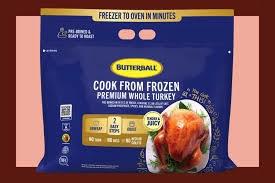 earnings of $35 million on sales of $534 million. The $50 million decrease in sales value was due to lower prices for comparable products. Lower feed cost in part offset the decline in unit revenue. Third quarter operating income for Butterball declined from $43 million in Q3 2023 to $16 million for the most recently completed quarter. earnings of $35 million on sales of $534 million. The $50 million decrease in sales value was due to lower prices for comparable products. Lower feed cost in part offset the decline in unit revenue. Third quarter operating income for Butterball declined from $43 million in Q3 2023 to $16 million for the most recently completed quarter.
Seaboard Corporation owns 52.5 percent of the equity in Butterball LLC.
|
BRF Acquires Equity in Saudi Broiler Company
|
11/11/2024 |
|
 BRF of Brazil has reported the purchase of 26 percent of the equity in the Saudi Addoha Poultry Company for $84 million. This follows investment of $500 million in broiler processing and food production enterprises in collaboration with the Saudi Public Investment Fund. BRF of Brazil has reported the purchase of 26 percent of the equity in the Saudi Addoha Poultry Company for $84 million. This follows investment of $500 million in broiler processing and food production enterprises in collaboration with the Saudi Public Investment Fund.
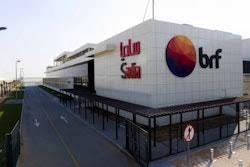 Saudi Addoha produces 45 million chickens annually with a planned expansion to 65 million in the coming year. Saudi Addoha produces 45 million chickens annually with a planned expansion to 65 million in the coming year.
Saudi Arabia imports 200,000 tons of processed poultry from Brazil each year, justifying expansion of domestic production.
|
NCC Appoints President
|
11/11/2024 |
|
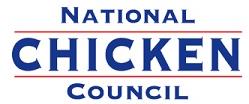
The Board of Directors of the National Chicken Council has announced the appointment of Harrison Kircher as president and CEO, effective January 1st 2025.
Kircher is a 13-year veteran of the NCC. He advanced from an intern through various managemental positions including Governmental and Legislative Affairs. He was promoted to Senior Vice President of Government Affairs in 2021 and has managed lobbying efforts on Capitol Hill on issues affecting the industry including immigration, labor, and trade.

Kircher graduated from the University of Virginia in 2009 and gained experience in marketing at Ogilvy and Mather in New York.
On accepting the appointment, Kircher said, “I am especially confident in our future success given the very strong team around me at NCC. I look forward to the challenging continuing the tradition of service and effective representation in Washington.”
Chairman of the NCC Board, Bill Griffith stated, “Harrison’s dedication, expertise and leadership have been evident throughout his time with the Council. We have complete confidence in his ability to guide us towards a successful future.”

|
Beyond Meat Reports on Q3 FY 2024
|
11/10/2024 |
|
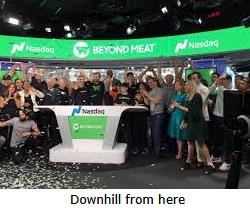 In a press release dated November 6th Beyond Meat Inc. (BYND) announced results for Q3 ending September 28th 2024. The Company reported a lower EPS loss than consensus ($0.44) but fell short of the Zack’s revenue projection by 1.5 percent. BYND fell sharply over the two trading days following the release based on concerns over refinancing convertible notes with the prospect of default in 2017. In a press release dated November 6th Beyond Meat Inc. (BYND) announced results for Q3 ending September 28th 2024. The Company reported a lower EPS loss than consensus ($0.44) but fell short of the Zack’s revenue projection by 1.5 percent. BYND fell sharply over the two trading days following the release based on concerns over refinancing convertible notes with the prospect of default in 2017.
The following table summarizes the results for the period compared with the values for the corresponding quarter of the previous fiscal year (Values expressed as US$ x 1,000 except EPS)
|
3rd Quarter Ending:
|
September 28th
2024
|
September 30th 2023
|
Difference (%)
|
|
Sales:
|
$81,006
|
$75,312
|
+7.5*
|
|
Gross profit /(loss):
|
$14,308
|
$(7,254)
|
+297.2*
|
|
Operating income/ (loss):
|
$(30,909)
|
$(69,620)
|
+55.6*
|
|
Pre-tax Income/ (loss)
Net Income/ (loss)
|
$(26,532)
$(26,576)
|
$(70,366)
$(70,492)
|
+62.3*
+62.3*
|
|
Diluted earnings per share:
|
$(0.41)
|
$(1.09)
|
+59.6*
|
|
Gross Margin (%)
|
17.6
|
(9.6)
|
+83.3*
|
|
Operating Margin (%)
|
(38.2)
|
(92.4)
|
+58.7*
|
|
Profit Margin (%)
|
(32.8)
|
(93.6)
|
+65.0*
|
|
Long-term Debt: Sept. 28th ‘24 / Dec. 31st ‘23
|
$1,218,271
|
$1,213,464
|
+0.4
|
|
12 Months Trailing:
|
|
|
|
|
Return on Assets (%)
|
(14.1)
|
|
|
|
Return on Equity (%)
|
N/A
|
|
|
|
Operating Margin (%)
|
(38.2)
|
|
|
|
Profit Margin (%)
|
(83.6)
|
|
|
|
Total Assets: Sept. 28th ‘24 / Dec. 31st 2023
|
$692,938
|
$774,450
|
-10.5
|
|
Market Capitalization Nov 11th ‘24/Dec 31st 2023
|
$350,140
|
$574,410
|
-39.0
|
* ‘+’ denotes improvement (or ‘less bad’)
NOTES:
R&D expenditure declined 33 percent from Q3 2023 to $6.1 million or 7.6 percent of revenue (was 5.9 percent in Q3 2013)
S&G expenditure declined 26 percent from Q3 2023 to $39.1 million or 48.3 percent of revenue (was 45.2 percent in Q3 2013)
For Q3 FY 2024:-
52-Week Range in Share Price: $12.12 down to $5.13 50-day Moving average $6.35
On November 6th BYND closed at $6.58 pre-release but declined over the subsequent two trading days to $5.15 at the November 11th open
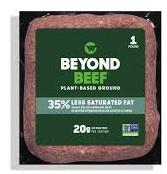
Forward P/E: Neg.
Insiders hold 4.9 percent of equity (was 9.2, Q1 2024), Institutions 43.9 percent (was 47.9 percent, Q1 2024).
Comments for Q2 2024:-
U.S. sales represented 61 percent of Q3 revenue almost unchanged from Q3 2023.
Of U.S sales 70.7 percent were through retail channels, compared to 70.9 percent in Q3 2023
Of International sales 52.4 percent were through retail channels, down from 43.9 percent in Q3 2023
Average unit revenue in Q3 2024 for all sales attained $4.85/lb. compared to $4.19/lb.
during the corresponding quarter of 2023.
Guidance for FY 2024 included:
Net revenue of between $320 and $340 million.
Gross margin in mid-‘teens’.
Operating expenses $180 to $190 million
Capital expenditure $10 to $15 million
Continued negative cash flow

Beyond Meat has apparently hired Goldman Sachs to raise $250 million in private capital to shore up liquidity. The Company issued $1 billion in convertible notes in March 2021 that mature in early 2017. Given the trajectory of the share price and continued losses default appears inevitable.
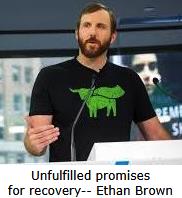
In commenting on results Ethan Brown president and CEO stated:- “We are pleased to report that in the third quarter we returned to growth, increasing net revenues on a year-over-year basis, while continuing to expand gross margin and reduce operating expenses on both a sequential and year-over-year basis. Looking ahead, we expect to increase our cash reserves by year-end and pursue further balance sheet restructuring in 2025.”
Despite this optimistic commentary the reality includes:-
- An accumulated deficit of $1,197 million.
- Trailing 12-month negative operating cash flow of $71.1 million
- Inventory of $175,158 represents 1.5 times Q3 FY 2024 sales
- Effective July 15th2 percent of float was short
- Share price of $5.15 on November 11th open, 57 percent off 12-month high of $12.12
- Convertible notes trading at 25 cents on the dollar

|
Pilgrim’s Pride Corp. Reports on Q3 FY 2024
|
11/10/2024 |
|
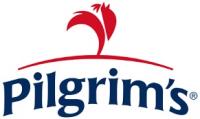 In a press release dated October 30th Pilgrim’s Pride Corp. (PPC) announced results for the 3rd Quarter FY 2024 ending September 29th. The quarterly figures showed positive earnings for all three segments with higher revenue and operating profit across all three geographic areas. Earnings were 4.2 percent above above consensus estimates but revenue fell short of an expectation of $4,600 million. In a press release dated October 30th Pilgrim’s Pride Corp. (PPC) announced results for the 3rd Quarter FY 2024 ending September 29th. The quarterly figures showed positive earnings for all three segments with higher revenue and operating profit across all three geographic areas. Earnings were 4.2 percent above above consensus estimates but revenue fell short of an expectation of $4,600 million.
The following table summarizes the results for Q3 2024 derived from the SEC 10-Q form and the Company release. Values are compared with the corresponding Q2 FY 2023 (Values expressed as US$ x 103 except EPS)
|
3rd Quarters Ending
|
September 29th 2024
|
September 24th
2023
|
Difference (%)
|
|
Sales:
|
$4,584,979
|
$4,360,196
|
+5.2
|
|
Gross profit:
|
$683,970
|
$345,882
|
+97.7
|
|
Operating income:
|
$508,354
|
$206,373
|
+146.3
|
|
Pre-tax Income
Net Income
|
$481,599
$349,990
|
$166,120
$121,567
|
+189.9
+187.8
|
|
Diluted earnings per share:
|
$1.47
|
$0.51
|
+188.2
|
|
Gross Margin (%)
|
14.9
|
7.9
|
+88.6
|
|
Operating Margin (%)
|
11.1
|
4.7
|
+136.2
|
|
Profit Margin (%)
|
7.6
|
2.8
|
+171.4
|
|
Long-term Debt and other liabilities1:
|
$3,422,258
|
$3,584,369
|
-4.5
|
|
12 Months Trailing:
|
|
|
|
|
Return on Assets (%)
|
9.1
|
|
|
|
Return on Equity (%)
|
27.0
|
|
|
|
Operating Margin (%)
|
11.5
|
|
|
|
Profit Margin (%)
|
5.5
|
|
|
|
Total Assets Sept.29th 2024/Dec. 31st 2023
|
$10,700,534
|
$9,810,361
|
+9.1
|
|
Intraday Market Capitalization
August 2nd ‘24/ Sept. 30th ‘23
|
$12,760,000
|
$5,400,000
|
+136.3
|
Notes.
1. Sept. 29th 2024/ December 31st 2023.
- Q3 2024, $22.1 million investment loss (Q3 2023, $12.1 million gain)
- Q3 2024 $7.9 million miscellaneous loss (Q3 2023, $2.2 million gain)
- Q3 2024 $0.7 million gain in foreign currency transactions (Q3 2023 $8.9 million loss)
Operating income and sales posted by the three business segments during Q3 2024 were:-
U.S. 82.5 percent of company operating income on 60.4 percent of sales
Europe 9.0 percent of company operating income on 28.5 percent of sales
Mexico 8.5 percent of company operating income on 11.1 percent of sales
52-Week Range in Share Price of PPC: $25.23 to $55.50. 50-day Moving average, $45.68
Market Close: October 29th: pre-release $48.09.
Close: November 5th : $53.28, representing a gain of 11.7 percent over 5 trading days
Current Forward P/E 13.8 Beta 0.8
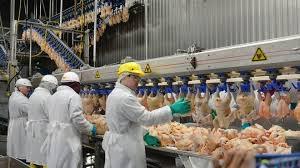
Equity held by insiders and holding Company: 82.6 percent, Institutions, 16.1 percent
In commenting on Q2 results Fabio Sandri, CEO stated, “Throughout the quarter, we continued to emphasize operational excellence, diversify our portfolio and cultivate partnerships with Key Customers to drive value for the consumer. He added “In the U.S., the relative affordability and availability of chicken drove increased demand across retail and food service. Case Ready and Small Bird drove profitable growth as demand improved from Key Customers and there was continued progress in operational excellence. In Big Bird, profitability grew from sustained improvements in production efficiencies, lower input costs, and enhanced commodity cutout values. Similarly, Prepared continued to diversify the portfolio through incremental distribution across retail and foodservice”.
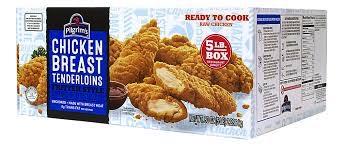 Addressing European operations Sandri stated “Europe realized its highest quarterly adjusted EBITDA to date given continued progress in operational excellence, further diversification through branded offerings and strengthening Key Customer partnerships. New product introductions continue to gain momentum as the business launched over 280 new products during the quarter. Addressing European operations Sandri stated “Europe realized its highest quarterly adjusted EBITDA to date given continued progress in operational excellence, further diversification through branded offerings and strengthening Key Customer partnerships. New product introductions continue to gain momentum as the business launched over 280 new products during the quarter.
In relation to Mexico Sandri noted, “Mexico continued to build its presence with Key Customers across retail and foodservice and further diversify its portfolio through brands. Investments in operational excellence to build capacity and drive operational efficiencies remained on track. He concluded, “Mexico continued to successfully drive all pillars of our strategies during typical seasonality for the business. As a result, we are increasingly well positioned to capture both short- and long-term growth opportunities,”

|
Boar’s Head Recall Impacts Volume and Value of Deli Meat
|
11/05/2024 |
|
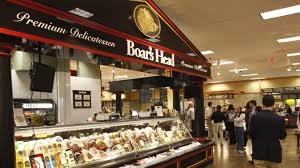 For the month of July prior to the July 26th Boar’s Head recall that grew to 7 million lbs. of product, deli meat sales attained 69.1 million lbs. with a value of $732.7 million similar to the preceding month. During August, deli meat sales were down 11 percent from July and 9.3 percent from August 2023. The greatest loss was in deli-service lunchmeat, down 17 percent. The situation continued through September with deli meat sales at a 13-week low attaining 60.8 million lb. down 12 percent from July with sales attaining $626.4 million down 15 percent. For the month of July prior to the July 26th Boar’s Head recall that grew to 7 million lbs. of product, deli meat sales attained 69.1 million lbs. with a value of $732.7 million similar to the preceding month. During August, deli meat sales were down 11 percent from July and 9.3 percent from August 2023. The greatest loss was in deli-service lunchmeat, down 17 percent. The situation continued through September with deli meat sales at a 13-week low attaining 60.8 million lb. down 12 percent from July with sales attaining $626.4 million down 15 percent.
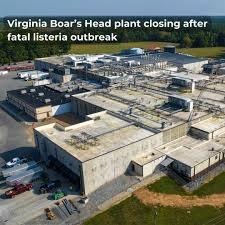 In contrast, packaged sandwich meat was generally unaffected and in September sale of pre-sliced lunchmeat was up 4.9 percent on a volume basis. In contrast, packaged sandwich meat was generally unaffected and in September sale of pre-sliced lunchmeat was up 4.9 percent on a volume basis.
Concern over the extent of the Listeria outbreak and revelations of improper production and handling has obviously diverted demand from deli-service meat to pre-sliced packaged product benefiting the turkey and chicken industries.
|
Economic Impact of U.S. Broiler Industry
|
11/05/2024 |
|
 USPOULTRY in collaboration with the National Chicken Council funded an economic impact study conducted by John Dunham and Associates. Using data from 2024, it was calculated that the broiler industry is responsible for 1.4 million jobs, $90.9 million in wages, $450 million in economic activity and $36.7 billion in government revenue. USPOULTRY in collaboration with the National Chicken Council funded an economic impact study conducted by John Dunham and Associates. Using data from 2024, it was calculated that the broiler industry is responsible for 1.4 million jobs, $90.9 million in wages, $450 million in economic activity and $36.7 billion in government revenue.

In commenting on the release of the study Gary Kushner Interim president of NCC stated, “We know that chicken is nutritious, affordable and versatile but chicken also means jobs – whether i on the farm in the processing plant, the transportation sector, manufacturing, or retail restaurants.” He added, “This data will prove extremely helpful as we welcome a new Congress to Washington next year.”
|
E.U. Parliamentarians Oppose JBS Listing on NYSE
|
11/04/2024 |
|
 Members of the European Parliament have addressed a letter to Gary Gensler, Chairman of the U.S. Securities and Exchange Commission, urging rejection of the application by JBS S.A. to be listed on the New York Stock Exchange. Members of the European Parliament have addressed a letter to Gary Gensler, Chairman of the U.S. Securities and Exchange Commission, urging rejection of the application by JBS S.A. to be listed on the New York Stock Exchange.

The action by the legislators reflected concern over environmental issues with JBS contributing to deforestation of the Amazon rainforest and noting the history of the company as led by the Batista brothers involving alleged unethical and illegal activities in Brazil.
|
USDA Approves Importation of Turkey Rhinotracheitis Vaccine
|
11/04/2024 |
|
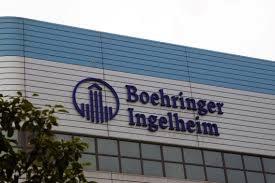
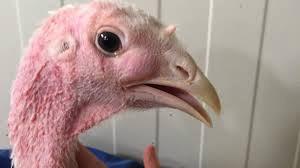
|
Turkey producers in the U.S. will now be able to administer an imported Boehringer Ingelheim vaccine against turkey rhinotracheitis.
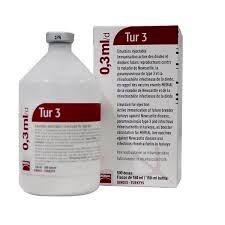 The inactivated TUR-3 product is licensed for use against avian metapneumovirus in the E.U. The inactivated TUR-3 product is licensed for use against avian metapneumovirus in the E.U.
Permission to import the vaccine was supported by the National Turkey Federation to protect flocks against an emerging and widespread erosive infection.
|
|
Meat Institute Interaction with U.S. Trade Representative
|
10/29/2024 |
|
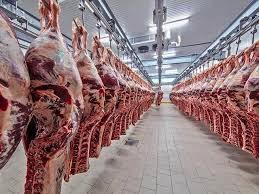 The Meat Institute is urging the U.S. Trade Representative (USTR) to be aggressive in supporting exports of red meat and poultry in 2025. The Meat Institute is urging the U.S. Trade Representative (USTR) to be aggressive in supporting exports of red meat and poultry in 2025.
Julie Anna Potts, President and CEO of the Meat Institute, stated, “The resilience of the U.S. meat and poultry industry is inextricably linked to the trade policy and promotional initiatives that foster growth in meat and poultry export.” The Meat Institute also highlighted the importance of imports of beef from Canada and Mexico since trade within the USMCA is interlinked.
The Meat Institute urged the USTR to attempt to remove tariffs imposed by China. This prospect would appear to be even less attainable in the event that tariffs are imposed by an incoming Administration.
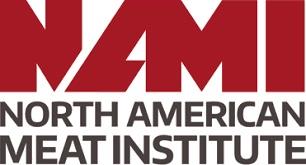
Other issues raised by the Meat Institute include removal of unjustified embargos based on disease and market diversification as a means of counteracting competition.
At the end of the day, there is little that the USTR can achieve if importing nations are self-sufficient. It is unlikely that diplomacy will support trade if the U.S. imposes punitive tariffs on imports from nations to whom we wish to export agricultural products including meat and poultry.

|
Foster Farms Responds to Allegations of Flock Mishandling During Harvest
|
10/29/2024 |
|
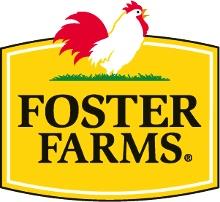 Following the release of an October video by activist organization Animal Outlook, Foster Farms responded with immediate action since the video allegedly depicted improper handling that violated company policy. Following the release of an October video by activist organization Animal Outlook, Foster Farms responded with immediate action since the video allegedly depicted improper handling that violated company policy.
Randy Boyce, General Counsel for Foster Farms, stated, “In terms of our zero-tolerance policy, we terminated employees involved and a referral has been made to the Fresno County law enforcement authorities.” Boyce continued, “Put simply, conduct was counter to everything we stand for as a company and our actions ensured those responsible are held accountable.”
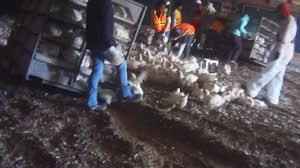
Additional responses by Foster Farms included company wide animal welfare retraining, appointment of a Chief Animal Welfare Officer and increased welfare auditing.
Irrespective of training and auditing, deviations from acceptable practice can be anticipated. An appropriate deterrent is to monitor harvesting operations on all farms using video as applied by Butterball in North Carolina. Knowing that they are under surveillance harvesters should conform to humane handling standards and procedures.

|
Butterball Introduces Cook-From-Frozen Turkey for Thanksgiving 2024
|
10/29/2024 |
|
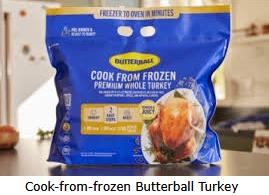 Butterball, LLC, will market a frozen whole turkey without neck or giblets. This will allow for simple preparation since frozen birds can be unwrapped and placed in an oven without need for thawing, basting, brining or seasoning. Butterball, LLC, will market a frozen whole turkey without neck or giblets. This will allow for simple preparation since frozen birds can be unwrapped and placed in an oven without need for thawing, basting, brining or seasoning.
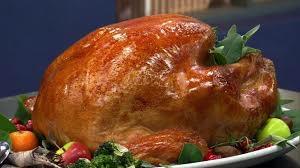
Instructions on cooking are available on the Butterball Turkey Talk-Line. The cook-from-frozen turkeys will be available from major chains including Kroger banners and Publix stores.
|
Perdue Animal Care Summit
|
10/29/2024 |
|
 The Ninth Perdue Farms Annual Care Summit, reviewed the requirements to produce under the pasture-raised claim. The USDA has requested comments, after approval in principle for a working definition. The key requirement for applying the term “pasture” is that poultry and cattle should be raised on land having rooted vegetative cover of grasses and plants. Perdue initiated the petition to promote transparency and to differentiate “pasture-raised” from “free-range”. The Ninth Perdue Farms Annual Care Summit, reviewed the requirements to produce under the pasture-raised claim. The USDA has requested comments, after approval in principle for a working definition. The key requirement for applying the term “pasture” is that poultry and cattle should be raised on land having rooted vegetative cover of grasses and plants. Perdue initiated the petition to promote transparency and to differentiate “pasture-raised” from “free-range”.
The comment period will end on November 12th and if the proposal is adopted any label claims for “pasture-raised” will have to conform to the standard.

Ryan Perdue, Senior Vice-President of Perdue Premium Meats, an emerging brand, stated, “Consumers deserve transparency and clarity when it comes to how their food is raised.” He added, “This new standard developed in partnership with nearly 1,000 small pasture poultry producers, shows that “pasture-raised” means what it says, raising chickens that spend the majority of their lives on pasture”.
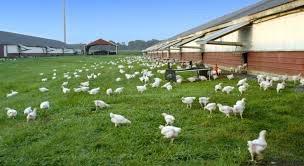
In addressing the Summit, Dr. Bruce Stewart-Brown, Chief Science Officer at Perdue Farms, stated, “At Perdue we’re dedicated to advancing the health and welfare of our chickens through research-driven practices and technology.” He added, “By prioritizing the well-being of animals, we create healthier environments that benefit livestock while also enhancing product quality.”

|
Purdue Summit Considered Consumption of Dark Meat
|
10/29/2024 |
|
 During the Ninth Annual Animal Care Summit organized by Perdue Farms, a session was organized on increasing consumption of dark meat in the U.S. Participants stressed the cost differential and nutritional quality of dark meat, preferred in many nations. Leg quarters represent 98 percent of chicken exports comprising 15 percent of annual U.S. RTC at an average price of $1,300 per metric ton. During the Ninth Annual Animal Care Summit organized by Perdue Farms, a session was organized on increasing consumption of dark meat in the U.S. Participants stressed the cost differential and nutritional quality of dark meat, preferred in many nations. Leg quarters represent 98 percent of chicken exports comprising 15 percent of annual U.S. RTC at an average price of $1,300 per metric ton.
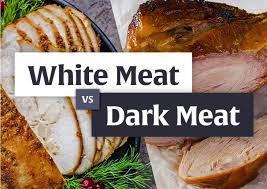 CHICK-NEWS has long advocated for domestic consumption of dark meat. This will require product innovation and the development of menu items that incorporate dark meat. U.S. integrators will encounter increased competition from exporters including Brazil and also the national production in traditional importing nations. Producers will face the prospect of tariff barriers if the U.S. pursues a program of placing high tariffs on imports. CHICK-NEWS has long advocated for domestic consumption of dark meat. This will require product innovation and the development of menu items that incorporate dark meat. U.S. integrators will encounter increased competition from exporters including Brazil and also the national production in traditional importing nations. Producers will face the prospect of tariff barriers if the U.S. pursues a program of placing high tariffs on imports.
The balancing act will involve marketing more dark meat in the U.S. without detracting from consumption of higher-priced white meat.
|
Proposed Salmonella Chicken Standards Questioned
|
10/29/2024 |
|
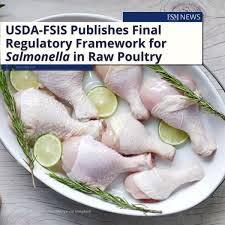 The Congressional Chicken Caucus has requested the USDA to extend the comment period for six months beyond the current November 7th deadline. There is considerable misunderstanding as to the scope of the proposed USDA Salmonella Standards including determination of serotype, means of differentiating among the designated strains and the basic question of what action can be taken in the event of determining one or more strains may be present in products. The Congressional Chicken Caucus has requested the USDA to extend the comment period for six months beyond the current November 7th deadline. There is considerable misunderstanding as to the scope of the proposed USDA Salmonella Standards including determination of serotype, means of differentiating among the designated strains and the basic question of what action can be taken in the event of determining one or more strains may be present in products.
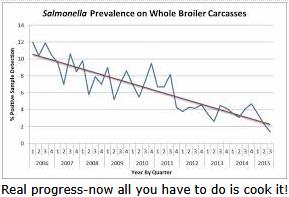
The proposed Salmonella standard released in July has the potential to seriously disrupt production, adversely impact cost and ultimately to be disadvantageous to integrators and consumers.
The advocacy groups including Stop Foodborne Illness, the Consumer Federation of America and potential responders affiliated to major universities and schools of public health are also requesting an extension. This will allow a review of the proposed standards and to provide appropriate comments based on scientific validity.
|
OSHA Guidelines Extend Agency Involvement in Processing Plants
|
10/28/2024 |
|
 According to the new Inspection Guidance for Animal Slaughtering and Processing Establishments, the Occupational Safety and Health Administration (OSHA) will expand activities in accordance with NAICS3116 (Animal Slaughtering and Processing). The action was taken based on data indicating that processing of meat and poultry has a statistically significantly higher level of injuries and illnesses compared to industry in general. Hazards recognized by OSHA include: - According to the new Inspection Guidance for Animal Slaughtering and Processing Establishments, the Occupational Safety and Health Administration (OSHA) will expand activities in accordance with NAICS3116 (Animal Slaughtering and Processing). The action was taken based on data indicating that processing of meat and poultry has a statistically significantly higher level of injuries and illnesses compared to industry in general. Hazards recognized by OSHA include: -
- Defective ergonomics leading to musculoskeletal injury.
- The misuse or failure to supply or wear personal protective equipment.
- Non-compliance with lockout-tag-out procedures.
- Slips and falls.
- Defective guarding of machinery to prevent accidental contact.
- Exposure to hazardous chemicals including ammonia, chlorine, peracetic acid, carbon dioxide and nitrogen in gas and liquid form.
- Occupational noise.
- Inaccessible exits.
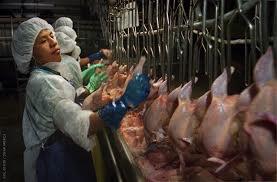
 Action by OSHA during 2025 will be strongly influenced by the future Administration as evidenced by events during the COVID period compared to intensified inspection and citations over the past three years. Action by OSHA during 2025 will be strongly influenced by the future Administration as evidenced by events during the COVID period compared to intensified inspection and citations over the past three years.

|
Tyson Foods Faces Child Labor Investigation
|
10/23/2024 |
|
 The U.S. Department of Labor has initiated an investigation into the alleged hiring of minors for night-shift cleaning. The situation arises following complaints lodged with the U.S. Department of Labor under the Fair Labor Standards Act. After an initial review in which inspectors observed young people entering the Green Forest, AR plant in mid-summer, the Wage and Hour Division obtained a court order to review wage and employment documentation at the plant. The U.S. Department of Labor has initiated an investigation into the alleged hiring of minors for night-shift cleaning. The situation arises following complaints lodged with the U.S. Department of Labor under the Fair Labor Standards Act. After an initial review in which inspectors observed young people entering the Green Forest, AR plant in mid-summer, the Wage and Hour Division obtained a court order to review wage and employment documentation at the plant.
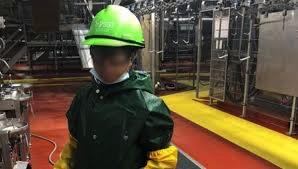 Given the revelations relating to illegal employment of minors in meat plants and the fines levied against Packer’s Sanitation Services, it would indeed be damaging to the image of Tyson Foods to have the allegations validated by the Department of Labor. Given the revelations relating to illegal employment of minors in meat plants and the fines levied against Packer’s Sanitation Services, it would indeed be damaging to the image of Tyson Foods to have the allegations validated by the Department of Labor.
|
Kemin CLOSTAT® Reduces the Impact of NE
|
10/21/2024 |
|
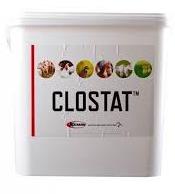
In a sponsored trial, Southern Poultry Research demonstrated the benefits of CLOSTAT® additive in reducing the impact of necrotic enteritis induced using a proven challenge model. This involved administration of a coccidiosis vaccine followed by inclusion of a known pathogenic field strain (CP4) of Clostridium perfringens in feed.
The experimental design comprised a replicate pen trial with three treatments. These were a negative non-infected control, a positive challenged control and a treatment comprising challenge with the addition of CLOSTAT to feed.
Inclusion of CLOSTAT® at 1 lb./ton improved bodyweight gain over 42 days from 2.10 kg. to 2.25 kg., significant at the 0.05 probability level. In contrast, negative controls gained 2.30 kg.
The negative control attained a feed conversion of 1.699, significantly lower than the challenged birds at 1.790. The treatment receiving CLOSTAT® and challenged applying the Southern Poultry Research Model yielded a feed conversion of 1.716, that was not significantly different from the negative control but statistically lower than the challenged birds in replicate pens.

In evaluating the financial benefit of CLOSTAT in a one million bird per week complex it was assumed that 10 percent of weekly live production would be affected by a range extending from clinically non-detectable to significant clostridial enterotoxemia with growth depression and mortality.
Based on the trial the benefit in terms of restoring production that is attributed to CLOSTAT would be 110g per bird live or 82.5g RTC assuming 75 percent WOG yield. The incremental weight sold as a result of CLOSTAT medication would be 8,250 kg over 100,000 birds or 18,150 lbs.
Production of 100,000 broilers would require 836 tons of feed assuming 4.86lb. live weight per bird and 1.72 FCR based on the data from the trial. With the $1.80 per ton cost of addition to feed, expenditure on CLOSTAT would be $1,505 for the 100,000 broilers.
The benefit to cost ratio would be dependent on RTC margin as shown below:-
| Margin c/lb RTC |
Benefit |
Benefit: Cost Ratio |
| 25 |
$4,537 |
3.0 |
| 35 |
$6,353 |
4.2 |
| 45 |
$8,168 |
5.4 |

|
Aviagen Hatchery Damaged by Fire
|
10/20/2024 |
|
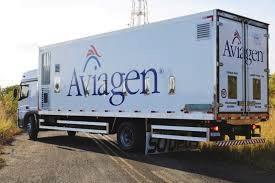 Aviagen America Latina announced severe damage to a breeder production hatchery located in Carambei, Parana State Brazil. Although there was extensive damage to the structure and installations there were no injuries reported. Aviagen America Latina announced severe damage to a breeder production hatchery located in Carambei, Parana State Brazil. Although there was extensive damage to the structure and installations there were no injuries reported.

Aviagen America Latina will make use of its extensive resources to maintain the supply of breeding stock to the industry served by the hatchery.
|
National Chicken Council Installs Officers
|
10/20/2024 |
|
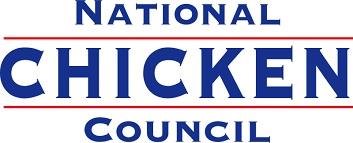 At the recent annual meeting of the National Chicken Council new officers were invested. At the recent annual meeting of the National Chicken Council new officers were invested.
- Bill Griffith, COO of Peco Foods will serve as Chairman
- David Jackson, COO of Simmons Foods will serve as the Vice-chairman.
- Kevin McDaniel, COO of Wayne-Sanderson Farms joined the board. He is the CEO designate for his company.
- Gary Kushner will continue to serve as interim president of the BCC.
 Kushner paid tribute to Randy Day, Immediate Past-Chairman for his service to the National Chicken Council and to the industry over his entire career. Kushner paid tribute to Randy Day, Immediate Past-Chairman for his service to the National Chicken Council and to the industry over his entire career.
Kushner noted challenges in the coming year including the proposed Salmonella Rule, avian influenza control including vaccination and proposed regulations relating to labor and environmental compliance.
|
Management Change at Wayne-Sanderson Farms
|
10/20/2024 |
|
Clint Rivers will retire as president and CEO from Wayne-Sanderson Farms on March 31, 2025. He will continue to serve as Executive Chairman of the Board during the 2026 fiscal year. Kevin McDaniel, currently COO and newly elected Chair of the NCC, will succeed Rivers on April 1, 2025.
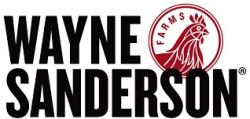
He assumed the chairmanship of Wayne-Sanderson Farms after completion of the acquisition of Sanderson Farms. He joined Wayne Farms in 2012 as Vice president and General Manager of the Fresh Business Unit. He was appointed president and CEO in 2017.

Rivers has a extensive list of accomplishments in the industry having served as president of Food Service and Supply Chain for Perdue Farms for six years, 21 years with Pilgrim’s Pride, rising to COO and president. Among many positions of responsibility in the industry, Clint served two terms as Chairman of the National Chicken Council.
|
Expansion of Saudi Investments in Broiler Production
|
10/20/2024 |
|
 The Saudi Agriculture and Livestock Investment Company (SALIC) has acquired a 13 percent stake in MHP SE of Ukraine. The holding company of MHP operates Perutnina Ptuj that process meat and poultry in Slovenia, Croatia, Serbia and Bosnia. Perutnina Ptuj also distributes through subsidiaries in 15 EU nations. The Saudi Agriculture and Livestock Investment Company (SALIC) has acquired a 13 percent stake in MHP SE of Ukraine. The holding company of MHP operates Perutnina Ptuj that process meat and poultry in Slovenia, Croatia, Serbia and Bosnia. Perutnina Ptuj also distributes through subsidiaries in 15 EU nations.
 This investment by SALIC adds to their broiler-production portfolio which includes an investment in BRF S.A. with 11 percent of the equity allowing transfer of technology and expanding domestic production in addition to importation from Brazil. The investment in MHP will generate synergy since the company will cooperate with Tanmiah Food Company in existing facilities and a proposed joint venture in Saudi Arabia. This investment by SALIC adds to their broiler-production portfolio which includes an investment in BRF S.A. with 11 percent of the equity allowing transfer of technology and expanding domestic production in addition to importation from Brazil. The investment in MHP will generate synergy since the company will cooperate with Tanmiah Food Company in existing facilities and a proposed joint venture in Saudi Arabia.
|
COVID is Not an Occupational Disease
|
10/17/2024 |
|
 The Delaware Supreme Court has ruled that a Perdue Farms employee could not claim that COVID contracted by an employee was a “compensable occupational disease”. The Delaware Supreme Court has ruled that a Perdue Farms employee could not claim that COVID contracted by an employee was a “compensable occupational disease”.
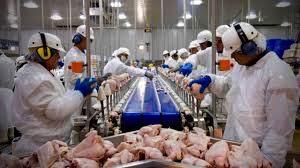
The claimant was unable to demonstrate that the viral infection was acquired within the plant while working. The claim was initially rejected by the state Industrial Accident Board and was then affirmed on appeal by the Delaware Superior Court. The most recent ruling by the Delaware Supreme Court ended the sequence of litigation to the advantage of Perdue Farms.

This ruling establishes case law applicable in the event of future claims relating to COVID or some other infectious disease acquired by contact or inhalation in a plant or community.
|
Experimental Live Attenuated Reovirus Vaccine Evaluated
|
10/16/2024 |
|
Dr. Sagar Goyal of the University of Minnesota has made progress in developing live attenuated vaccines to protect flocks from turkey reoviral arthritis (TARV) and hepatitis (THRV).

Six different vaccines were prepared using three strains of field isolates of reovirus. Candidate vaccine viruses were subjected to either serial passage or cold adaptation. The attenuated vaccines did not induce clinical changes confirming safety. There was apparently no stimulation of measurable systemic antibody. Challenge with field strains of TARV indicated that protection was inadequate based on histopathologic examination of tendons.
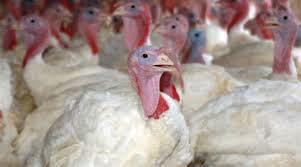
Dr. Goyal suggests that although a single vaccine administered at 10 days provided inadequate protection, multiple doses of vaccine may be required. Further studies are in progress to evaluate alternative frequencies and routes of vaccination. Ultimately protection will be possible from the sequence of primary stimulation with one or more attenuated products followed by a subsequent inactivated booster vaccine to establish maternal antibody transfer for breeder hens.

|
BrucePac Recall Resonating in Food Service Market
|
10/15/2024 |
|
  The recall of close to 6,000 tons of further-processed chicken, frozen meals, prepared foods and salads is now assuming larger proportions. BrucePac products implicated in a series of Listeria recalls were incorporated into other products. Secondary recalls are now underway at Walmart, Target, Kroger, Raley’s and Trader Joe’s. Brands affected by the recall include Boston Market, Taylor Farms among others and diet-food suppliers Atkins and Jenny Craig. The recall of close to 6,000 tons of further-processed chicken, frozen meals, prepared foods and salads is now assuming larger proportions. BrucePac products implicated in a series of Listeria recalls were incorporated into other products. Secondary recalls are now underway at Walmart, Target, Kroger, Raley’s and Trader Joe’s. Brands affected by the recall include Boston Market, Taylor Farms among others and diet-food suppliers Atkins and Jenny Craig.
Fortunately, no illnesses associated with consumption of potentially 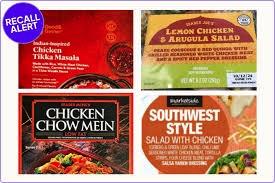 contaminated food items produced by BrucePac have been reported. It is noted that the incubation period of listeriosis may extend to 70 days so cases may emerge. Usually only the most severe clinical infections involving the immunosuppressed, pregnant women and the elderly are diagnosed following severe clinical symptoms requiring medical examination frequently with hospitalization and laboratory studies. contaminated food items produced by BrucePac have been reported. It is noted that the incubation period of listeriosis may extend to 70 days so cases may emerge. Usually only the most severe clinical infections involving the immunosuppressed, pregnant women and the elderly are diagnosed following severe clinical symptoms requiring medical examination frequently with hospitalization and laboratory studies.
|
USAPEEC Hosts Delegation from Singapore
|
10/14/2024 |
|
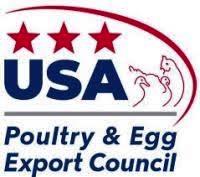 Representatives of Singapore food importers and processors in recently visited the U.S. to become acquainted with our broiler industry. The promotional event was arranged by USAPEEC. Greg Tyler president and CEO provided an overview of the U.S. industry followed by a trade reception to facilitate contact between members of the delegation and U.S. producers and exporters. Representatives of Singapore food importers and processors in recently visited the U.S. to become acquainted with our broiler industry. The promotional event was arranged by USAPEEC. Greg Tyler president and CEO provided an overview of the U.S. industry followed by a trade reception to facilitate contact between members of the delegation and U.S. producers and exporters.
During the visit, the delegation visited the Pilgrim’s Pride processing plant in Athens, GA, the USDA Southeast Poultry Research Laboratory, Maple Leaf Farms in Indiana to review duck production and the Willmar. MN. plant of Jennie-O Turkey Store.
Since the trade delegation from Singapore was the first to visit the U.S. in over two decades, the event provided an opportunity to establish commercial contacts and to acquaint potential buyers with the strength of the U.S. poultry industry and the diversity and quality of products.
Singapore with a population of 5.6 million is dependent on imported chicken but appears to be expanding the range of suppliers from Malaysia to include Brazil, Thailand the E.U. and now hopefully, the U.S.

|
McDonald’s Corp Suing Beef Suppliers
|
10/11/2024 |
|
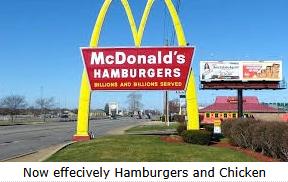 McDonald's Corporation has filed a lawsuit against nine packers that supplied beef for menu items. The plaintiff alleges that the suppliers illegally colluded to maintain high prices by manipulating levels of slaughter. The company stated in its complaint that collusion commenced in 2015. Defendants will include Cargill Inc., JBS SA, National Beef, and Tyson Foods as the main suppliers. McDonald's Corporation has filed a lawsuit against nine packers that supplied beef for menu items. The plaintiff alleges that the suppliers illegally colluded to maintain high prices by manipulating levels of slaughter. The company stated in its complaint that collusion commenced in 2015. Defendants will include Cargill Inc., JBS SA, National Beef, and Tyson Foods as the main suppliers.
McDonald’s Corporation alleges violation of Section 1 of the Sherman Antitrust Act by holding prices at a higher level through collusion through sharing production and cost data at industry events and trade shows.
In addition to substantial direct and punitive damages, McDonald’s is also requesting an injunction to enjoin the suppliers from continuing with anticompetitive activities.
In retrospect this lawsuit that may lack merit depending on evidence appears to be a case of the dog biting the hand that feeds it!
|
Expansion of Broiler Production for Canada in 2025
|
10/07/2024 |
|
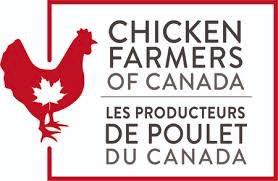 The September 25th USDA-GAIN Report on Canada, CA2024-44, projected a 2.5 percent increase in broiler production to 1.465 million metric tons (6.66 million lbs.) in 2025. Producers in Canada operate according to a controlled quota system with independent farmer-growers purchasing feed and chicks, often through cooperatives and selling live birds to processors. The September 25th USDA-GAIN Report on Canada, CA2024-44, projected a 2.5 percent increase in broiler production to 1.465 million metric tons (6.66 million lbs.) in 2025. Producers in Canada operate according to a controlled quota system with independent farmer-growers purchasing feed and chicks, often through cooperatives and selling live birds to processors.
In 2025, USDA estimates total imports at 215,000 metric tons, up 4.9 percent from 2024. Exports will amount to 125,000 metric tons resulting in net importation of 90,000 metric tons. Given a population of 39 million, per capita consumption will attain 44.7 kg. (98.4 lbs.) close to that of the U.S.

In 2023, Canada was ranked 7th among importers of U.S. broilers and products with a total quantity of 142,434 metric tons valued at $435 million. Imports in 2023 were respectively down 7 percent in volume and 11 percent in value with a unit price of $3,054 per metric ton indicating whole birds and added-value product.
For the first seven months of 2024, Canada moved to 6th place, importing 84,766 metric tons valued at $258 million with a unit price of $3,044 per metric ton. This can be compared to the average of all exports for the seven-month period of $2,631 million with an average unit price of $1,382 per metric ton confirming a different range of products.

For 2024, the U.S. held 80.4 percent of Canadian broiler and product imports followed by Brazil at 7.5 percent, Thailand at 5.1 percent and Chile rising to 3.9 percent as a result of membership in the Comprehensive and Progressive Transpacific Partnership with a relatively low tariff rate quota.
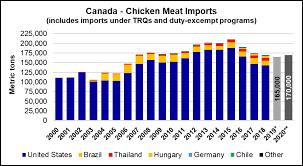 Exports to Canada peaked in 2020 at 160,791 metric tons but this included deceptively-described broiler products as “spent fowl” to avoid paying a tariff. With stricter border controls, this practice has ceased together with stricter scrutiny of the import for re-export program. Exports to Canada peaked in 2020 at 160,791 metric tons but this included deceptively-described broiler products as “spent fowl” to avoid paying a tariff. With stricter border controls, this practice has ceased together with stricter scrutiny of the import for re-export program.
The Canadian Food Inspection Agency enforces a ban on re-export of chicken from Brazil to the U.S. Chicken products from Brazil do not enter non-eligible Canadian facilities that are authorized to export to the U.S.

|
Pure Prairie Poultry Ceases Operation
|
10/07/2024 |
|
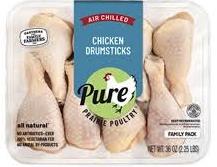 Previously, CHICK-NEWS reported on the Chapter 11 petition filed by the company in the U.S. Bankruptcy Court for the District of Minnesota. Pure Prairie Poultry claims assets of between $50 and $100 million but has liabilities between $100 and $500 million with numerous creditors. Previously, CHICK-NEWS reported on the Chapter 11 petition filed by the company in the U.S. Bankruptcy Court for the District of Minnesota. Pure Prairie Poultry claims assets of between $50 and $100 million but has liabilities between $100 and $500 million with numerous creditors.
The Court rejected the Chapter 11 bankruptcy petition since it was dependent on Sandton Capital providing debtor financing amounting to $15 million but with the lender, receiving secured status placing them above other creditors. Objections to the restructuring plan led to the rejection by the Court. Pure Prairie Poultry failed to find a buyer and has caeased operation under Chapter 8.
The U.S. Department of Agriculture is a creditor based on $37.6 million provided through a guaranteed-loan program. Due to financial restraints, Pure Prairie Poultry was unable to pay for feed for flocks held for 14 growers in Iowa. Accordingly, the Iowa Department of Agriculture and Land Stewardship exercised emergency authority to acquire 1.3 million broiler chickens that required feed. This action was taken under Iowa Code Chapter 717 and was approved by a state court on October 2nd. The Department of Agriculture is cooperating with farmers to maintain flocks to market weight at which time they will be sold, and taxpayer funds will be reimbursed with the state representing a debtors entitled to proceeds of any income from disposal of assets or sale of the enterprise with a plant in Charles City, IA. In actuality the last flocks were euthanized in late October.
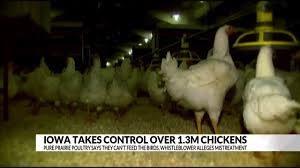
In principle, Pure Prairie Poultry should not have found itself in a position to file for bankruptcy protection. Other small-scale broiler producers supplying niche markets have survived and expanded. It is evident that the Company was undercapitalized in relation to projected volume. Their product carried claims of “all natural,” raised under acceptable welfare standards without antibiotics and fed vegetable-based diets. This should have allowed the Company to establish an acceptable share of the high-value market. Other benefits included the initial support of the USDA and other lenders and the availability of contract growers. Obviously, Management erred in execution, despite their collective ‘pedigree’ including Foster Farms, Tyson Foods, Petaluma Poultry, GNP Company and Zacky Farms. acceptable welfare standards without antibiotics and fed vegetable-based diets. This should have allowed the Company to establish an acceptable share of the high-value market. Other benefits included the initial support of the USDA and other lenders and the availability of contract growers. Obviously, Management erred in execution, despite their collective ‘pedigree’ including Foster Farms, Tyson Foods, Petaluma Poultry, GNP Company and Zacky Farms.

|
Chick-fil-A Expansion into the United Kingdom
|
10/03/2024 |
|
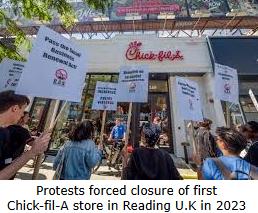 After an initial failure to establish a foothold in the U.K. in 2019, Chick-fil-A intends to expand internationally with a second initiative involving stores in London and Northern Ireland and in industrial centers including Leeds and Liverpool. After an initial failure to establish a foothold in the U.K. in 2019, Chick-fil-A intends to expand internationally with a second initiative involving stores in London and Northern Ireland and in industrial centers including Leeds and Liverpool.
Chick-fil-A is a closely held corporation and does not release financial data. Technomic a market research company specializing in the food industry estimates that annual sales are in the region of $20 billion annually. With approximately 3,000 U.S. locations, each store generates annual sales approaching $6.5 million, far in excess of competitors McDonald’s, Burger King and Wendy’s.
Joanna Symonds the designated head of U.K. operations noted, “We have always cared about the impact of our restaurants on the local communities that we serve, and we strive to positively impact areas throughout the U.K. She added, “Caring for people, while delivering great food is at the heart of our brand and we encourage our 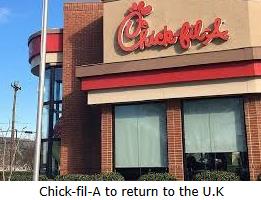 local Owner Operators to partner with organizations that support their local communities. local Owner Operators to partner with organizations that support their local communities.
Chick-fil-A intends sourcing both chicken and free-range eggs from local suppliers adhering to acceptable welfare certification. Surplus food will be distributed to shelters and foodbanks and restaurants will donate to nonprofit charities. The PR campaign should offset some of the xenophobia directed against the first store established in Reading, Berkshire in 2019.

|
JBS and UFCW in Conflict over Greeley, CO Plant
|
10/01/2024 |
|
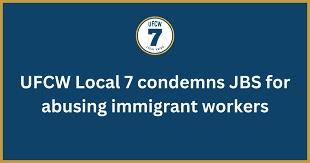 The United Food and Commercial Workers Union, Local 7, claims that JBS has contravened labor law when employing workers from Haiti and Benin. They allege illegal practices including abusive treatment, human trafficking and excessive rent charges. The United Food and Commercial Workers Union, Local 7, claims that JBS has contravened labor law when employing workers from Haiti and Benin. They allege illegal practices including abusive treatment, human trafficking and excessive rent charges.
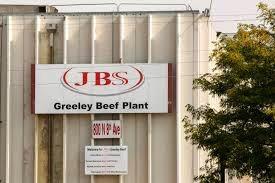
JBS counters the allegations that appear to revolve around a recruiter who is no longer used and was never an employee of the company. JBS noted that the HR function of the plant has been strengthened and training programs for recruitment have been introduced, consistent with Company hiring policy.
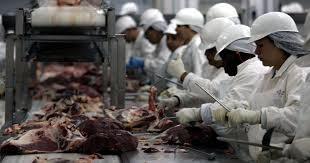 JBS does not charge employees for transportation, pre-employment services or mandate residence. The company noted, “We want all of our employees to have access to safe housing and the opportunity to create a better life for themselves and their families.” JBS does not charge employees for transportation, pre-employment services or mandate residence. The company noted, “We want all of our employees to have access to safe housing and the opportunity to create a better life for themselves and their families.”
|
Poultry Growers Sue over Cooks Venture Failure
|
10/01/2024 |
|
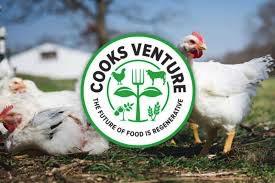
A group of poultry growers is suing the founders of Cooks Venture that filed for Chapter 7 Bankruptcy in April. Blake Evans and Matt Wadiak co-founded Cooks Venture after their involvement in Blue Apron a consistently unprofitable meal-kit company with a questionable future.
Cooks Venture, a somewhat hairbrained operation was chronically underfunded. The Company required a Regenerative Agriculture Poultry Production Agreement, the use of a slow-growing breed and an attempt to sell a non-competitively priced perishable product through the internet with direct shipment to customers. The plaintiffs maintain that the defendants misrepresented the viability of the company inducing them to invest in facilities and upgrades and initiate growing. The plaintiffs alleged gross mismanagement including attempting unrealistic expansion beyond the availability of working capital.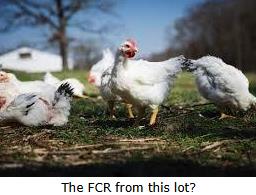
Despite successive infusions of capital from venture investors including PIUS and Golden West Food Group amounting to close to $70 million, the company failed closing facilities in both Oklahoma and Arkansas in November 2023. Why do bright, newly-minted MBAs believe their own spread sheets and assumptions inspired by fast-talking entrepreneurs to funnel investors’ cash into questionable enterprises? Are they bamboozled by aspirations of sustainability and claims of flock welfare and Heritage breeds? Whatever happened to the traditional banking criteria of character, capacity and collateral?

|
Revised USDA-FSIS Labeling Guidelines
|
10/01/2024 |
|
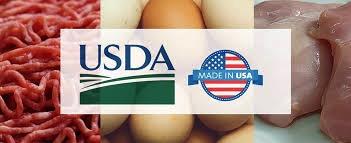 The August 2024 guidelines for labeling are intended to ensure transparency and to eliminate false claims that may mislead consumers. The August 2024 guidelines for labeling are intended to ensure transparency and to eliminate false claims that may mislead consumers.
The guidelines require substantiation of claims in relation to the following areas: -
- Animal welfare including statements relating to ethical and humane procedures.
- Environmental claims including ‘sustainability’ and ‘carbon neutral’.
- Management claims including ‘free-range’ and ‘pasture-raised’.
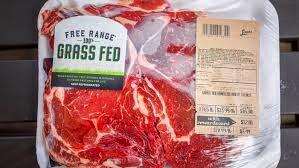
- Breed claims including for specific beef strains associated with perceived quality attributes including ‘Angus’ and ‘Wagyu’
- Antibiotic use claims such as ‘raised without antibiotics’ should be subject to verification including assay.
The FSIS has been made aware of extensive use of green washing claims including unsubstantiated statements relating to sustainability and the application of regenerative grazing.
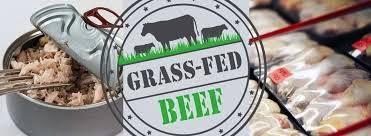
Producers making label claims must now present supporting evidence including third-party certification and appropriate documentation.
|
Amendment to Federal Meat Inspection Act Proposed
|
10/01/2024 |
|
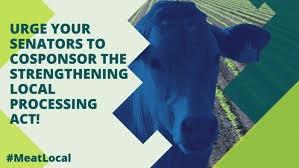 Senators Bernie Sanders (I-VT), Peter Welch (D-VT) and Cory Booker (D-NJ) have introduced the Livestock Owned by Communities to Advance Local Foods Act (LOCAL). The proposed legislation would amend the Federal Meat Inspection Act of 1906 to support independent and small-scale meat processing under the “personal-use exemption”. The Bill would allow consumers to purchase animals on the hoof for subsequent slaughtered and processing in other than a USDA-inspected abattoir. Senators Bernie Sanders (I-VT), Peter Welch (D-VT) and Cory Booker (D-NJ) have introduced the Livestock Owned by Communities to Advance Local Foods Act (LOCAL). The proposed legislation would amend the Federal Meat Inspection Act of 1906 to support independent and small-scale meat processing under the “personal-use exemption”. The Bill would allow consumers to purchase animals on the hoof for subsequent slaughtered and processing in other than a USDA-inspected abattoir.
The Federal Meat Inspection Act has stood the test of time and protects consumers. A continual process of eroding the supervision and 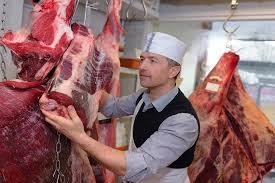 inspection of meat products by the designated federal agency will not materially provide competition for major meat packers. Unfortunately, it will expose consumers to potential foodborne disease. Promotion of “food freedom” issues by extremists at both the left and right of the political spectrum is exemplified in the raw milk movement. Expanding availability of raw milk has considerable potential to disseminate a wide range of pathogens. This is confirmed by the incident rates of salmonellosis, campylobacteriosis, listeriosis and STEC infection, attributed to non-pasteurized milk. inspection of meat products by the designated federal agency will not materially provide competition for major meat packers. Unfortunately, it will expose consumers to potential foodborne disease. Promotion of “food freedom” issues by extremists at both the left and right of the political spectrum is exemplified in the raw milk movement. Expanding availability of raw milk has considerable potential to disseminate a wide range of pathogens. This is confirmed by the incident rates of salmonellosis, campylobacteriosis, listeriosis and STEC infection, attributed to non-pasteurized milk.

|
USAPEEC Announces Promotions
|
09/30/2024 |
|
 Greg Tyler, President and CEO of USAPEEC, has announced promotion of two long-standing managers of the Council. Greg Tyler, President and CEO of USAPEEC, has announced promotion of two long-standing managers of the Council.
Leah Mulcahy has been promoted to Vice-president of Global Marketing. She joined USAPEEC in 2012 as a Deputy Director of Communications from the USDA Foreign Agricultural Service. Leah earned a Bachelor's degree in international affairs from Kennesaw State University and an MBA in international business from American Intercontinental University.
 Garrett Borkhuis was promoted to Vice-president of Trade Policy and Technical Services. He joined USAPEEC in 2017 as Marketing Manager for Asia advancing to Director of Trade and Technical Services in 2020. He has demonstrated skill in negotiating trade concerns. Garrett earned a bachelor's degree in Agribusiness from the University of Georgia. Garrett Borkhuis was promoted to Vice-president of Trade Policy and Technical Services. He joined USAPEEC in 2017 as Marketing Manager for Asia advancing to Director of Trade and Technical Services in 2020. He has demonstrated skill in negotiating trade concerns. Garrett earned a bachelor's degree in Agribusiness from the University of Georgia.
|
Chicken Displacing Beef on QSR Menu Boards
|
09/28/2024 |
|
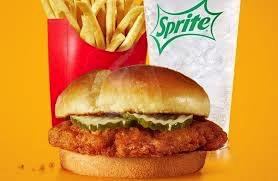 According to Bloomberg, the increase in cost of beef is driving the price of burger menus to According to Bloomberg, the increase in cost of beef is driving the price of burger menus to 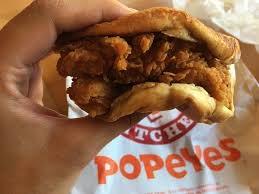 unacceptable levels. Technomic a market research organization recently tracked the escalation in cost of a Big Mac™ and other burgers. The McDonald’s offering has increased 21 percent since 2019, compared to conventional fast-food burgers up 16 percent. The high cost of beef is attributed to drought that has reduced herds in addition to escalation in inputs including high interest rates, labor and feed. unacceptable levels. Technomic a market research organization recently tracked the escalation in cost of a Big Mac™ and other burgers. The McDonald’s offering has increased 21 percent since 2019, compared to conventional fast-food burgers up 16 percent. The high cost of beef is attributed to drought that has reduced herds in addition to escalation in inputs including high interest rates, labor and feed.
As a response, chicken is now the centerpiece of sandwiches, offering taste, 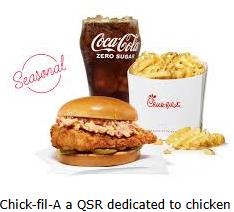 nutrition and the perception of healthfulness appreciated by consumers. Margins for QSRs are improved by offering chicken and in some chains, based on chicken servings, consistent growth through customer satisfaction as a key to profitability and expansion. nutrition and the perception of healthfulness appreciated by consumers. Margins for QSRs are improved by offering chicken and in some chains, based on chicken servings, consistent growth through customer satisfaction as a key to profitability and expansion.
With the reality of climate change, beef will become progressively more expensive and less competitive against chicken that offers versatility in presentation in addition to profitability.

|
Expansion of Saudi Investments in Regional Broiler Production
|
09/28/2024 |
|

The Saudi Agriculture and Livestock Investment Company (SALIC) has acquired a 13 percent stake in MHP SE of Ukraine. This holding company operates Perutnina Ptuj that process meat and poultry in Slovenia, Croatia, Serbia and Bosnia. Perutnina Ptuj also distributes through subsidiaries in 15 E.U. nations.
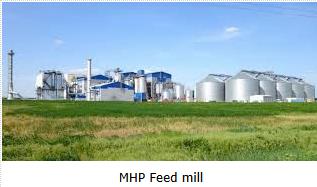
This investment by SALIC adds to their broiler production portfolio which includes an investment in BRF S.A. with an 11 percent equity share allowing transfer of technology and domestic production in addition to assurances in supply from Brazil. The  investment in MHP will generate synergy since the company will cooperate with Tanmiah Food Company in existing facilities and will include a proposed joint venture in Saudi Arabia. investment in MHP will generate synergy since the company will cooperate with Tanmiah Food Company in existing facilities and will include a proposed joint venture in Saudi Arabia.
|
Environmental Working Group Sues Tyson Foods over GHG Claims
|
09/25/2024 |
|
 The Environmental Working Group (EWG) an activist organization that advocates for climate issues and opposes intensive livestock production has filed suit against Tyson Foods Inc., alleging contravention of the District of Columbia Consumer Protection Procedures Act. The case, if it proceeds, will be heard before the D.C. Superior Court The Environmental Working Group (EWG) an activist organization that advocates for climate issues and opposes intensive livestock production has filed suit against Tyson Foods Inc., alleging contravention of the District of Columbia Consumer Protection Procedures Act. The case, if it proceeds, will be heard before the D.C. Superior Court
The EWG claims that Tyson Foods has issued misleading statements relating to their intentions to reduce greenhouse gas emissions. Tyson Foods accounts for twenty percent of beef, chicken and pork production in  the U.S. Previously the Company announced plans to reduce emissions by thirty percent by 2030 and to achieve net-zero emissions by 2050. Tyson Foods intends to achieve these goals by using renewable energy, by expanding grazing for beef cattle and eliminating deforestation in supply chains. the U.S. Previously the Company announced plans to reduce emissions by thirty percent by 2030 and to achieve net-zero emissions by 2050. Tyson Foods intends to achieve these goals by using renewable energy, by expanding grazing for beef cattle and eliminating deforestation in supply chains.
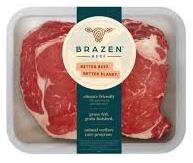
The EWG allege that Tyson Foods claims represent “greenwashing” and that the company spends less than 0.1 percent of annual revenue on reducing greenhouse gas production.

|
Global Trade Impacted by Restrictions on Transiting Suez and Panama Canals
|
09/25/2024 |
|
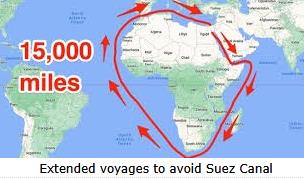 World trade has been affected by the ongoing restrictions placed on passage through the Panama Canal due to low water level. Administrators of the waterway imposed a Long-Term Slot Allocation Program effective October 1st. During 2023, LPG crude oil and automobiles were reduced by delays in passage and increased transit times. World trade has been affected by the ongoing restrictions placed on passage through the Panama Canal due to low water level. Administrators of the waterway imposed a Long-Term Slot Allocation Program effective October 1st. During 2023, LPG crude oil and automobiles were reduced by delays in passage and increased transit times.

The action by Houthi terrorists affecting passage of vessels in the Red Sea has resulted in vessels avoiding the Suez Canal and traveling around the Cape of Good Hope, adding both time and cost to shipments.
|
Better Meat Company Receives DOD Grant
|
09/25/2024 |
|
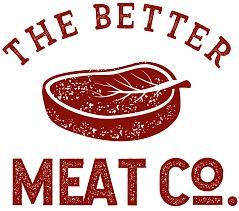 Following the recent controversy over the Department of Defense funding research and development of cell-cultured meat, grants were rescinded as a result of vigorous opposition by legislators representing beef-producing states. The Better Meat Company that manufactures an ersatz meat product using Rhiza mycoprotein received a grant of $1.4 million. The Better Meat Company protein recently received approval under the “Generally regarded as safe” category for their fungal-derived protein. Following the recent controversy over the Department of Defense funding research and development of cell-cultured meat, grants were rescinded as a result of vigorous opposition by legislators representing beef-producing states. The Better Meat Company that manufactures an ersatz meat product using Rhiza mycoprotein received a grant of $1.4 million. The Better Meat Company protein recently received approval under the “Generally regarded as safe” category for their fungal-derived protein.
Paul Shapiro is a shareholder in the Better Meat Company. He was previously affiliated with HSUS and was a supporter of Josh Tetrick who established a series of businesses to produce food products without using livestock or poultry.
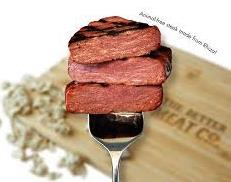 A number of research organizations and start-ups also received Department of Defense grants including the Battelle Institute in Columbus, OH., Molecular Genetics, MA., Genomatica in San Diego, CA. among others. A number of research organizations and start-ups also received Department of Defense grants including the Battelle Institute in Columbus, OH., Molecular Genetics, MA., Genomatica in San Diego, CA. among others.
This round of grants to alt meat producers and research organizations will most certainly elicit a negative response from beef-state members of Congress and some grants will in all probability be rescinded.

|
FSIS to Monitor for H5N1 in Dairy Cows
|
09/25/2024 |
|
 USDA Food Safety and Inspection Service has indicated that it will routinely sample slaughtered dairy cows for the presence of H5N1 virus as a component of the National Residue Program. USDA Food Safety and Inspection Service has indicated that it will routinely sample slaughtered dairy cows for the presence of H5N1 virus as a component of the National Residue Program.
Application of PCR will eliminate holding times. Carcasses that test positive will be diverted from the chain of meat supply.
 A preliminary survey conducted in May on ground beef derived from culled dairy cows failed to reveal the presence of virus. It is apparent the FSIS program will concentrate on culled dairy cattle. As yet there have been no reports of sampling programs on beef from feed lots representing the bulk of supply. A preliminary survey conducted in May on ground beef derived from culled dairy cows failed to reveal the presence of virus. It is apparent the FSIS program will concentrate on culled dairy cattle. As yet there have been no reports of sampling programs on beef from feed lots representing the bulk of supply.
|
Hormel Foods to Face Mismanagement Suit Over Retirement Plan
|
09/23/2024 |
|
 In February a former employee of Hormel Foods filed a lawsuit against the Board of Directors of Hormel Foods alleging mismanagement of the company retirement plan. A Federal court in the District of Minnesota has rejected a motion by Hormel for dismissal, allowing the case to proceed. In February a former employee of Hormel Foods filed a lawsuit against the Board of Directors of Hormel Foods alleging mismanagement of the company retirement plan. A Federal court in the District of Minnesota has rejected a motion by Hormel for dismissal, allowing the case to proceed.
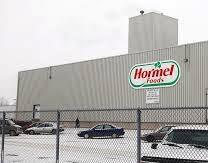 The claimant maintains that Hormel directors deviated from their “fiduciary duty of prudence” by including equities with high risk in the $1.2 billion retirement plan. While the outcome of this case will not affect the ongoing operations of Hormel Foods, disaffection of employees may result if the allegations are substantiated. The claimant maintains that Hormel directors deviated from their “fiduciary duty of prudence” by including equities with high risk in the $1.2 billion retirement plan. While the outcome of this case will not affect the ongoing operations of Hormel Foods, disaffection of employees may result if the allegations are substantiated.
|
New Jersey State Police Apprehend Theft Ring
|
09/23/2024 |
|
 “Operation Beef Bandit” came to a successful conclusion on September 13th with the apprehension of four individuals responsible for a series of thefts of meat and seafood from trailers parked at service areas on the New Jersey Turnpike. It is alleged that the four individuals were responsible for a series of thefts over the past three years with individual robberies involving up to $350,000 in food products. The midnight apprehension involved a foot and highway chase leading to the arrest of the four perpetrators. “Operation Beef Bandit” came to a successful conclusion on September 13th with the apprehension of four individuals responsible for a series of thefts of meat and seafood from trailers parked at service areas on the New Jersey Turnpike. It is alleged that the four individuals were responsible for a series of thefts over the past three years with individual robberies involving up to $350,000 in food products. The midnight apprehension involved a foot and highway chase leading to the arrest of the four perpetrators.
It is hoped that authorities will follow up on the disposal of stolen meat products and identify the fences and ultimate retailers of purloined food and take appropriate action since the “beef bandits” were only the origin of a larcenous distribution chain.
|
  |
|
Hormel Posts Results for Q3 FY 2024
|
09/23/2024 |
|
 In a release dated September 4th Hormel Foods (HRL) reported on Q3 FY 2024 ending July 28th, disappointing on the top line and lowering guidance substantially for FY 2024. For the quarter the company earned a reported (GAAP) $176.7 million on revenue of $2,898 million with a diluted EPS of $0.32. Comparable values for Q3 FY 2023 ending July 30th were net income of $162.6 million on revenue of $2,963 million with a diluted EPS of $0.30. In a release dated September 4th Hormel Foods (HRL) reported on Q3 FY 2024 ending July 28th, disappointing on the top line and lowering guidance substantially for FY 2024. For the quarter the company earned a reported (GAAP) $176.7 million on revenue of $2,898 million with a diluted EPS of $0.32. Comparable values for Q3 FY 2023 ending July 30th were net income of $162.6 million on revenue of $2,963 million with a diluted EPS of $0.30.
Compared to Q3 of FY 2023 sales declined by 2.2 percent, gross margin was unchanged at 16.8 percent; operating margin was up from 7.3 percent to 8.2 percent. Profit margin increased from 5.5 percent to 6.1 percent for the most recent quarter.
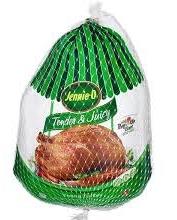
Effective October 2022, Hormel reorganized their operating divisions into Retail, Food Service and International segments. The Jennie-O Turkey Store Division was integrated among the three operating divisions. Accordingly, releases for Fiscal 2023 and thereafter do not disclose either volume or cost data for this subsidiary as in previous years. In reviewing the release, there was only indirect comment on the turkey business noting higher volume for lean ground turkey meat at retail and Jennie-O products in food service. There was no reference to the risk of HPAI that impacted turkey flocks in Minnesota but consistent with the negligible incidence over the 3rd quarter. In previous analysts’ calls CEO Jim Snee has expressed ongoing concern over losses during November and December 2023 and more recently for 2024.
Segment performance in both sales and operating profit for the most recent quarter was compared with Q3 FY 2023:-
- Retail Segment volume -9.0%: sales -7.0%: segment profit -15.0% at $127.9 million.
- Food Service Segment volume +2.0%: sales +7.0%: segment profit -3.0% at $142.5 million.
- International Segment volume -13.0%: sales -2.0%: segment profit +78.0% at 21.7 million.
For FY 2024 the company projected net sales of $11,800 to $12,100 million and a downgraded full year diluted net earnings per share in the range of of $1.45 (was $1.55) to $1.51 (was $1.65).
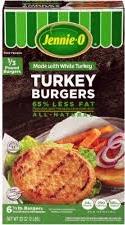
Hormel Foods posted total assets of $13,114 million on July 28th 2024 of which $6,668 million comprised goodwill and intangibles. Long-term debt was $3,069 million against an intraday market capitalization of $17,420 million on September 23rd. HRL has traded over the past 52 weeks in a range of $28.51 (an 8-year low) to $39.25 with a 50-day moving average of $32.01. HRL trades with a forward P/E of 18.7. HRL closed at $33.14 on September 3rd pre-release. The share price closed down 6.3 to $31.02 on September 4th post release
The 12-month trailing operating margin is 8.9 percent with a profit margin of 6.5 percent. The Company has returned 5.2 percent on assets and 10.0 percent on equity.
Subscribers can review the financial performance of competitor Butterball by entering “Seaboard” into the SEARCH tab.

|
Innovations in Characterization of Avian Reovirus
|
09/18/2024 |
|

 Dr. James Stanton of the University of Georgia recently completed Project #730 funded by USPOULTRY Foundation. The project entitled “Increasing the Efficiency of Avian Reovirus Characterization by Real-Time Sequencing” advanced laboratory technology and established the validity of new procedures to diagnose avian reovirus infections. Dr. James Stanton of the University of Georgia recently completed Project #730 funded by USPOULTRY Foundation. The project entitled “Increasing the Efficiency of Avian Reovirus Characterization by Real-Time Sequencing” advanced laboratory technology and established the validity of new procedures to diagnose avian reovirus infections.
The research conducted by Dr. Stanton and his team enabled characterization of avian reovirus isolates by applying random sequencing. In addition, the technology was able to identify multiple virus strains in a single assay. His techniques confirmed high sensitivity by detecting avian reovirus in samples that previously failed to disclose the presence of viruses. A range of reovirus strains are responsible for various syndromes in commercial poultry including malabsorption and runting in broilers in addition to tendonitis and arthritis in chickens and turkeys.
|
 |
 |
|
Boar’s Head Appoints Food Safety Council
|
09/17/2024 |
|
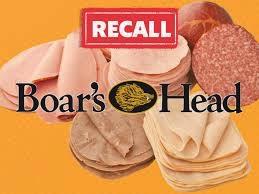
In a concerted program of damage control, Boar’s Head will appoint a new Chief Food Safety and Quality Assurance Officer reporting directly to the company president. The company will also establish the Boar’s Head Food Safety Council. Members will include Dr. David Acheson, previously an Associate Commissioner of the U.S. Food and Drug Administration responsible for Food Safety and Applied Nutrition; Dr. Mindy Brashears, formerly USDA Undersecretary for Food Safety and Dr. Martin Widman a professor of food safety at Cornell University. Frank Yiannas formerly Deputy Commissioner for Food Policy at the FDA will round out the Council.

In a statement announcing the appointments the Company stated, “We remain steadfast in our commitment to our customers and to the safety and quality of our products.” The company intends to introduce improved standards and to learn from the Listeria outbreak. The Jarratt, VA facility responsible for the outbreak will be closed indefinitely and may even be demolished.
The action taken by Boar’s Head is perhaps too little and too late to save the image of the brand and possibly ownership of the company. Boar’s Head will face extensive litigation with the possibility of both direct and punitive damages as a result of the extensive outbreak with nine fatalities.
The company stated in response to severe criticism in mainstream and social media, “It’s a dark moment in our company’s history but we intend to use this as an opportunity to enhance food safety programs not just for our company but for the entire industry.”
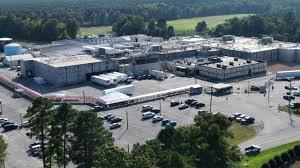
In a strange and questionable statement, the company noted that it had “identified the root cause of the contamination as the specific production process that only existed at the Jarratt facility and was used only for liverwurst.” This is fallacious. Listeria is widely distributed in plants that have been neglected and especially those with a history of deviations from accepted hygiene and production processes extending back for many years. The Jarratt plant accumulated a record of insect infestation, structural defects, mold growth, rusty equipment and meat fragments on floors, walls and work surfaces. This represents more than a liverwurst problem.
The appointment of the Boar’s Head Food Safety Council is commendable but an after-the-effect reaction. It remains to be seen whether the guidance and suggestions of the eminent scientists and practitioners selected will make any impact on management. Despite recent contrition, where were the C-suite denizens they when they abrogated their responsibilities to incompetent managers who ignored the safety of consumers. It remains to be seen whether the Food Safety Council is an exercise in window dressing or is a last ditch effort to rehabilitate the brand and continuation of the company under current ownership.
On reflection and in the light of more recent revellations including closure of the Jarratt plant it is doubtful whether any panel will achieve anything practical and there may be a downside to involvement,irrespective on how much Boar's Head pays, since it offers the prospect of erosion of reputation through association.

|
JBS CEO Comments on Environmental Restraints
|
09/17/2024 |
|

Gilberto Tomazoni recently pushed back on environmental regulations at an international business forum. He expressed concern that pressure to conform to sustainability rules will increase costs of production that are passed down to consumers.
Tomazoni noted, “ We need to increase productivity to lower the cost of food and make it more accessible.” He added, “We cannot assume that consumers will pay the bill for sustainable production practices.”
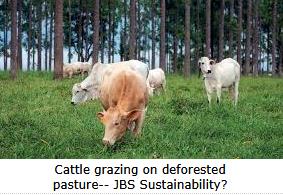
JBS is facing criminal lawsuits in Brazil alleging that the company knowingly processed cattle raised on deforested Amazon rainforest in Rondonia State. The Company is the target of multinational criticism for contributing to deforestation and environmental contamination. In response JBS has mounted a sustained campaign to convince regulators and consumers of a corporate commitment to sustainability.
|
Meat Packers Settle Wage Lawsuits
|
09/17/2024 |
|
 A lawsuit filed in 2022 resulted in the award of class-action status to Union employees of major meat packers. Workers alleged that their employers shared wage rates and manipulated compensation at 140 packing plants. A lawsuit filed in 2022 resulted in the award of class-action status to Union employees of major meat packers. Workers alleged that their employers shared wage rates and manipulated compensation at 140 packing plants.
In the latest round of settlements, Cargill will pay $30 million, National Beef Packers, $14 million and Hormel Foods, $13 million. Previously Tyson Foods  settled for $72 million and JBS, $55 million. Total settlements to date amount to $200 million. settled for $72 million and JBS, $55 million. Total settlements to date amount to $200 million.
In company statements, the defendants all denied wrongdoing and generally conceded that settlements were negotiated to avoid extended litigation costs and distractions.
|
Oklahoma Water Pollution Case in a Back-and-Forth Mode
|
09/17/2024 |
|
 Judge Gregory Frizzell for the U.S. District Court for Northern Oklahoma ruled for the State on January 23rd concerning pollution of the Illinois River watershed by poultry litter. Defendants in the case included Tyson Foods, Cargill, Culp-Vantress, Aviagen, Cal-Maine Foods, Simmons Foods and George’s among others. Mediation that concluded in November 2023 failed to produce a settlement. Accordingly, Judge Frizzell is now intending to impose penalties. Judge Gregory Frizzell for the U.S. District Court for Northern Oklahoma ruled for the State on January 23rd concerning pollution of the Illinois River watershed by poultry litter. Defendants in the case included Tyson Foods, Cargill, Culp-Vantress, Aviagen, Cal-Maine Foods, Simmons Foods and George’s among others. Mediation that concluded in November 2023 failed to produce a settlement. Accordingly, Judge Frizzell is now intending to impose penalties.
Secretary of Agriculture, Blayne Arthur, petitioned the court for leniency noting, “Respectfully, judicial adjustment of standards and requirements applicable to the poultry industry may circumvent the law making process which is best left to elected legislators and officials in the Executive Branch.” Secretary Arthur is concerned that an adverse ruling and penalties would result in “unintended consequences”.
 Based on the submission of the petition Judge Frizzell has provided an opportunity for the parties to submit any new evidence relating to the responsibility of poultry producers for damage to the ecosystem. Based on the submission of the petition Judge Frizzell has provided an opportunity for the parties to submit any new evidence relating to the responsibility of poultry producers for damage to the ecosystem.
Since the case that was filed in 2003 is of importance to both poultry producers and farmers using litter as a fertilizer and soil amendment, new standards for disposal and use of litter are required. Recent court rulings have emphasized the deleterious impact on local communities from inappropriate disposal of waste. In contrast decades of stewardship by chicken producers on the Delmarva Peninsula have improved the quality of water in the Chesapeake Bay.

|
Broiler Production in South Korea to Expand in 2025
|
09/17/2024 |
|
 According to USDA-FAS GAIN Report KS2024-19 released on September 12th, domestic broiler production in Korea will increase by one percent to 945,000 metric tons in 2025. This projection is based on the volume of breeding stock placed. Imports will rise by 2.5 percent over 2024 to 200,000 metric tons. Exports of 65,000 metric tons are nominal representing 5.6 percent of total supply. Given a population of 56 million per capita consumption will attain 19.3 kg (42.4 lbs.) in 2025. According to USDA-FAS GAIN Report KS2024-19 released on September 12th, domestic broiler production in Korea will increase by one percent to 945,000 metric tons in 2025. This projection is based on the volume of breeding stock placed. Imports will rise by 2.5 percent over 2024 to 200,000 metric tons. Exports of 65,000 metric tons are nominal representing 5.6 percent of total supply. Given a population of 56 million per capita consumption will attain 19.3 kg (42.4 lbs.) in 2025.
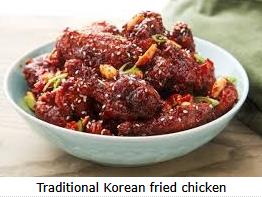
Highly pathogenic avian influenza is currently under control after 3.6 million chickens were depopulated on 32 farms during the 2023-2024 outbreak. Of this quantity, 201,000 broiler parent flocks were lost on two farms. Depletion in the broiler segment of the poultry industry was limited to 80,000 commercial growing birds. Egg- producing flocks on fifteen farms represented 88 percent of birds depopulated.
Consumption of broiler meat in South Korea is moving towards small packs of portions, meal kits and convenience items given the preponderance of single and two working-member households.
Imports by country of origin in 2023 confirmed the dominance of Brazil at 72 percent of volume, with Thailand the second largest supplier. The U.S. held one percent of the market in 2023 mainly due to cost and product considerations but was limited by unresolved trade policy.

|
Hybrid Turkeys Announces Executive Appointments
|
09/16/2024 |
|
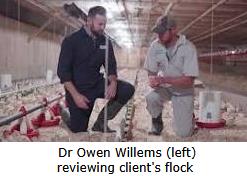 Dr. Owen Willems has been appointed as Global Director, Research and Development for Hendrix Genetics. In his new role, he will be responsible for all species within the Hendrix Genetrics portfolio. Willems is a 12-year veteran with Hendrix joining after completing his doctoral studies at the University of Guelph, Ontario. Dr. Owen Willems has been appointed as Global Director, Research and Development for Hendrix Genetics. In his new role, he will be responsible for all species within the Hendrix Genetrics portfolio. Willems is a 12-year veteran with Hendrix joining after completing his doctoral studies at the University of Guelph, Ontario.
Dr. Willems has gained considerable experience both in North America and Europe applying creative and innovative solutions for the benefit of the industry. In his new position, Dr. Willems will be located at Hendrix-Genetics Global Headquarters in the Netherlands.
 Blair McCorriston has been promoted to Director, Sales and Commercial Excellence, replacing Dr. Owen Willems. In her new position, Ms. McCorriston will report to Trevor Aitchison, General Manager, Americas. Blair will become a member of the National Turkey Federation Executive Committee replacing Dr. Willems. She has served in various positions at Hybrid Turkeys over 12 years and has gained experience with Internal Operations, R&D, Sales, Technical and Marketing teams. Blair McCorriston has been promoted to Director, Sales and Commercial Excellence, replacing Dr. Owen Willems. In her new position, Ms. McCorriston will report to Trevor Aitchison, General Manager, Americas. Blair will become a member of the National Turkey Federation Executive Committee replacing Dr. Willems. She has served in various positions at Hybrid Turkeys over 12 years and has gained experience with Internal Operations, R&D, Sales, Technical and Marketing teams.
Her appointment supports a strengthened connection among sales, product management, technical service and marketing. In commenting on the promotion, Trevor Aitchison, General Manager, noted that Blair has “demonstrated her commitment to excellence in the turkey industry and her leadership will support the Company dedication to delivering high-quality products and services”.

|
Pure Prairie Poultry Files for Chapter 11
|
09/15/2024 |
|

Heralded as a “new start” and an opportunity for growers, Pure Prairie Poultry that acquired and refurbished a plant in Charles City, IA. filed for Chapter 11 bankruptcy on September 20th.
The plant has a checkered history. Originally established as a hen-processing facility it operated as Cedar River but the enterprise failed. The plant was resuscitated as Simply Essentials in 2016 backed by venture capital funding although this iteration failed and the plant fell into disuse. Pure Prairie purchased the facility in December 2021 but failed to achieve profitability having accumulated close to $40,000 in operating losses since production commenced in November 2022.
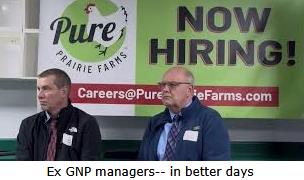
The company qualified for and received a $39 million federal loan in April 2022 that in retrospect was essentially pouring public money into the effluent stream. But then USDA is intent on restructuring the protein supply system in the U.S. In their filing, Pure Prairie listed $100 million in assets and up to a nominal $500 million in liabilities.
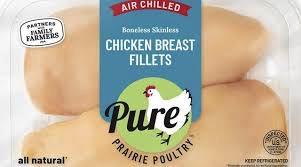
It will be some time before court documents are available to indicate the causes of the demise of the company. From promotional press reports at the initiation of production, the Company should have been able to establish a market niche and prosper for the benefit of stakeholders, ultimately repaying the federal loan and other investors.

|
2024 Live Production, Welfare and Biosecurity Seminar
|
09/15/2024 |
|
 USPOULTRY in conjunction with the National Chicken Council, the Turkey Federation and United Egg Producers will present the 2024 Live Production, Welfare and Biosecurity seminar October 3-4 at the Embassy Suites by Hilton, Downtown in Nashville, TN. USPOULTRY in conjunction with the National Chicken Council, the Turkey Federation and United Egg Producers will present the 2024 Live Production, Welfare and Biosecurity seminar October 3-4 at the Embassy Suites by Hilton, Downtown in Nashville, TN.
This event is usually well attended based on the topicality of the program and the quality of speakers representing academia and industry.
The Professional Animal Auditors Certification Organization will assign CE credit hours for  attendance. attendance.
For additional information and registration contact USPOULTRY at <info@uspoultry.org>
|
Congressional Chicken Caucus Requests a Six Months Extension for Proposed Salmonella Rule
|
09/14/2024 |
|
 Representatives Steve Womack (R-AR) and Jim Costa (D-CA) have requested a 180-day extension to the contentious rule proposed by USDA entitled Salmonella Framework for Raw Poultry Products. Representatives Steve Womack (R-AR) and Jim Costa (D-CA) have requested a 180-day extension to the contentious rule proposed by USDA entitled Salmonella Framework for Raw Poultry Products.
The request is based on “the complexity and length of the proposed rule and the fact that nearly all chicken marketed in the United States will be impacted”. The letter noted that the rule raises questions of clarity requiring explanations to present a comprehensive response.
 Gary Kushner, interim president of the NCC stated, “The industry attempt to engage with FSIS for the past two years during the formulation of this proposed rule and unfortunately our input was largely disregarded”. He added, “NCC and our member companies have invested hundreds of millions of dollars and have worked for decades to develop and refine best practices to reduce Salmonella and protect public health.” Gary Kushner, interim president of the NCC stated, “The industry attempt to engage with FSIS for the past two years during the formulation of this proposed rule and unfortunately our input was largely disregarded”. He added, “NCC and our member companies have invested hundreds of millions of dollars and have worked for decades to develop and refine best practices to reduce Salmonella and protect public health.”
Despite two webinars presented by USDA the industry was not provided with clarity concerning technical and practical issues relating to implementation.
The letter noted that if the Rule if implemented it would result in condemnation of a considerable proportion of chicken output with prepared product sent to landfills at a time when over 40 million Americans are food insecure.
The NCC position is that the proposed rule is unnecessary, will raise cost to producers and consumers alike and will lead to food waste without necessarily reducing the incidence of chicken-borne salmonellosis.

|
Legal Conflict Over Heme Proteins Resolved
|
09/14/2024 |
|
 Long-running litigation between Impossible Foods and Motif FoodWorks over inclusion of heme protein in plant-based meat substitutes has been resolved. Impossible Foods includes soy leghemoglobin produced by a genetically engineered strain of yeast to simulate the color of their product. Motif uses a yeast-derived version of myoglobin in their product apparently representing an infringement of patents held by Impossible Foods. Long-running litigation between Impossible Foods and Motif FoodWorks over inclusion of heme protein in plant-based meat substitutes has been resolved. Impossible Foods includes soy leghemoglobin produced by a genetically engineered strain of yeast to simulate the color of their product. Motif uses a yeast-derived version of myoglobin in their product apparently representing an infringement of patents held by Impossible Foods.
Under the agreement, Impossible Foods will assume the heme-related activities conducted by Motif FoodWorks and the case will be dismissed with each party responsible for their respective legal fees and expenses.
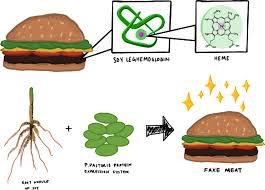
The settlement agreement recognizes that the parties will continue advancing plant-based meat alternatives through innovation, collaboration and fair competition.
The U.S. Patent Appeal Board recently invalidated one patent awarded to Impossible Foods but sustained six other patents that were pivotal to litigation.
|
NC State College of Veterinary Medicine Poultry Health Day
|
09/14/2024 |
|
 The annual Poultry Health Day will take place on November 15, 2024, as an in-person event at the Rollins Laboratory of the Department of Agriculture and Consumer Affairs. The annual Poultry Health Day will take place on November 15, 2024, as an in-person event at the Rollins Laboratory of the Department of Agriculture and Consumer Affairs.
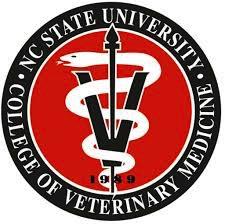
Registration is free and the event is sponsored by Zoetis. The program will include a review of HPAI in domestic animals, avian metapneumovirus, Enterococcus infection in broilers and Marek’s vaccination. For additional details contact Rocio Crespo at rcrespo@ncsu.edu
|
U.S. FDA Approves Inneo® to Suppress Listeria
|
09/14/2024 |
|
 The U.S. Food and Drug Administration has granted Generally Recognized as Safe (GRAS) status to Innodal Inc. to market Inneo® in the U.S. The product has been available in Canada for five years and has proven successful in suppressing Listeria contamination. The product incorporates bacterial peptides as the active ingredients. The U.S. Food and Drug Administration has granted Generally Recognized as Safe (GRAS) status to Innodal Inc. to market Inneo® in the U.S. The product has been available in Canada for five years and has proven successful in suppressing Listeria contamination. The product incorporates bacterial peptides as the active ingredients.
Since the product is GRAS certified, no specific label changes are required for existing products manufactured with Inneo®.
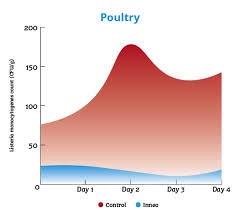
Given the significant of listeriosis and the recent upsurge in incident cases from a variety of products including processed meat, cantaloupes and dairy products resulting in numerous and extensive recalls. Food manufacturers may benefit from using Inneo® as an adjunct to existing programs to decontaminate plant and equipment.
|
UAE Dependent on Imports
|
09/13/2024 |
|
 According to USDA FAS GAIN Report TC2024-07 released on September 4th, production in the United Arab Emirates will increase by 16.7 percent from 2024 to attain 70,000 metric tons. The Nation is dependent on imports with 400,000 tons representing 85.1 percent of consumption. Domestic consumption will increase by 5.6 percent in 2025 attaining 50 kg per capita (110 lbs.) assuming a population of 9.4 million comprising Emiratis and expatriates and including foreign manual workers in construction. Domestic broiler production is supported by government feed subsidies and other concessions. According to USDA FAS GAIN Report TC2024-07 released on September 4th, production in the United Arab Emirates will increase by 16.7 percent from 2024 to attain 70,000 metric tons. The Nation is dependent on imports with 400,000 tons representing 85.1 percent of consumption. Domestic consumption will increase by 5.6 percent in 2025 attaining 50 kg per capita (110 lbs.) assuming a population of 9.4 million comprising Emiratis and expatriates and including foreign manual workers in construction. Domestic broiler production is supported by government feed subsidies and other concessions.
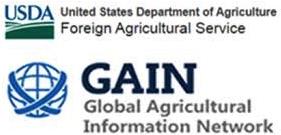
The UAE market is dominated by Brazil exporting set-weight whole frozen chicken from 900 g to 1,200 g in addition to portions and further-processed items. Brazil operates plants capable of satisfying UAE Halal and labeling requirements for a wide range of products in demand.
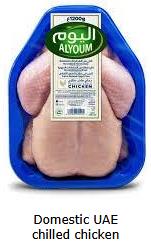
During the first half of 2024 UAE was ranked 9th in volume among importers from the U.S. with 51,973 metric tons valued at $56.7 million. Compared to the first half of 2023, volume and value were higher by 59 percent and 83 percent respectively. Over the first half of 2024, UAE represented 3.2 percent of export volume and 2.5 percent of value. Over the six-month period average unit value was $1,091 per metric ton,  below the average for the period that attained $1,366 per metric ton. U.S. leg quarters exported to the UAE are mainly consumed by foreign contract laborers. below the average for the period that attained $1,366 per metric ton. U.S. leg quarters exported to the UAE are mainly consumed by foreign contract laborers.

|
Status of Broiler Production in Mexico
|
09/13/2024 |
|
 According to USDA-FAS GAIN Report MX2024-40 released on September 4th, Mexico will post a 2.5 percent increase in domestic production to 4.09 million metric tons in 2025. This volume will be supplemented by 970,000 metric tons of imported RTC chicken, a one percent increase over the previous year. Total exports are inconsequential amounting to 5,000 metric tons. Domestic consumption, assuming a population of 128 million will attain 39.5 kg per capita (86.8 lbs.). According to USDA-FAS GAIN Report MX2024-40 released on September 4th, Mexico will post a 2.5 percent increase in domestic production to 4.09 million metric tons in 2025. This volume will be supplemented by 970,000 metric tons of imported RTC chicken, a one percent increase over the previous year. Total exports are inconsequential amounting to 5,000 metric tons. Domestic consumption, assuming a population of 128 million will attain 39.5 kg per capita (86.8 lbs.).
The current disease situation in Mexico contributes to acceptable livability and growth rate. In recent years regional outbreaks of HPAI have occurred but these were suppressed by application of vaccination. Biosecurity is constantly improved with a trend towards separation of breeders and grow-out operations. Approximately 85 percent of poultry, predominately chickens are processed in federally inspected establishments with 121 in operation. Expansion in 2025 is driven by lower feed prices, improvements in the economy resulting in increased demand and a higher level of integration.
For the first half of 2024, Mexico received 358,912 metric tons of chicken products from the U.S. valued a $455 million representing stability in volume but with a 14 percent increase in total value attributable to a unit price of $1,265 per metric ton compared to $1,110 for the corresponding first half of 2023. During the first six months of 2024, Mexico represented 21.8 percent of U.S. export volume and 20.3 percent of export value for chicken.

|
Angola Continues as An Importer from the U.S.
|
09/13/2024 |
|
 According to a USDA-FAS-GAIN Report dated September 6th, broiler production in Angola will remain fairly static at 52,000 metric tons in 2025, up four percent from the preceding year. Most of the domestic production is derived from small rural units, and a limited number of commercial operations. The major restraint to domestic production is the cost of ingredients with an unjustified restriction that all imports should be from non-GM cultivars. According to a USDA-FAS-GAIN Report dated September 6th, broiler production in Angola will remain fairly static at 52,000 metric tons in 2025, up four percent from the preceding year. Most of the domestic production is derived from small rural units, and a limited number of commercial operations. The major restraint to domestic production is the cost of ingredients with an unjustified restriction that all imports should be from non-GM cultivars.
Imports of chicken will be unchanged for 2025 at 190,000 metric tons representing 78.5 percent of domestic consumption. Assuming a population of 36 million, per capita consumption will be 6.7 kg (14.8 lbs.) in 2025. It is recognized that due to the wide disparity in income between high and low earnings demographic, consumption in urban areas will be higher than the national average.

For the first half of 2024, Angola was ranked 10th among importers from the U.S. with 50,395 metric tons representing approximately half of the volume imported by Angola with the remainder supplied by Brazil. For the first half of 2024 Angola represented 3.1 percent of volume and 2.4 percent of U.S. export value at an average unit price of $1,078 per metric ton.

|
|
|
|

|
| |
Copyright © 2025 Simon M. Shane
|
|
|